1. Overview
Greece, officially the Hellenic Republic, is a country located in Southeast Europe, at the southern tip of the Balkan peninsula. It is considered the cradle of Western civilisation, being the birthplace of democracy, Western philosophy, Western literature, historiography, political science, major scientific and mathematical principles, theatre, and the Olympic Games. Its rich historical legacy, spanning from ancient civilisations through the Byzantine and Ottoman eras to the modern nation-state, has profoundly shaped its culture and identity.
This article explores the multifaceted aspects of Greece, from its historical evolution and geographical features to its political system, economic structure, societal dynamics, and cultural contributions. It examines the nation's journey through periods of flourishing democratic development, challenges to human rights under authoritarian rule, and ongoing efforts towards social equity and progress. The narrative emphasizes the impact of historical events on the Greek people, the evolution of its democratic institutions, the protection of civil liberties, and the pursuit of social welfare, reflecting a perspective centered on democratic values and human dignity. The article details Greece's geography, its system of government, foreign relations, military, economic sectors including its significant maritime and tourism industries, the societal fabric encompassing demographics, religion, education, and human rights, as well as its contributions to science, technology, and the arts.
2. Name
The native name of the country in Modern Greek is ΕλλάδαElláda (pronounced eh-LAH-thah)Greek, Modern. The corresponding form in Ancient Greek and conservative formal Modern Greek (Katharevousa) is ἙλλάςHellás (Classical: hel-LAS, Modern: eh-LAS)Greek, Modern. This is the source of the English alternative name Hellas, which is mostly found in archaic or poetic contexts today. The Greek adjectival form ελληνικόςellinikos (eh-lee-nee-KOS)Greek, Modern is sometimes also translated as Hellenic and is often rendered in this way in the formal names of Greek institutions, as in the official name of the Greek state, the Hellenic Republic (Ελληνική ΔημοκρατίαEllinikí Dimokratía (eh-lee-nee-KEE dhee-mo-krah-TEE-ah)Greek, Modern).
The English names Greece and Greek are derived, via the Latin GraeciaGREY-shuhLatin and GraecusGREY-kuhsLatin, from the name of the Graeci (ΓραικοίGrai-KOYGreek, Ancient), one of the first ancient Greek tribes to settle Magna Graecia in southern Italy. In Indonesian, the term "Yunani" originates from Arabic اليُونَانal-YūnānArabic, which itself was absorbed from Persian Yunân, referring to Ionia, a region on the western coast of Anatolia historically part of Greece. Similarly, Middle Eastern languages such as Turkish (Yunanistan) and Hebrew (Yaván) also derive their names for Greece from Ionia. The Japanese term for Greece, ギリシャGHEE-ree-shahJapanese, comes from the Portuguese "Grécia". The Chinese name, 希臘XīlàChinese, is a phonetic transcription of the ancient Greek "Ἑλλάς" (Hellas).
3. History
The history of Greece spans millennia, from early prehistoric settlements and the rise of significant Aegean civilisations to the classical era that laid foundational aspects of Western culture, followed by periods under Roman, Byzantine, and Ottoman rule. The modern Greek state emerged in the 19th century after a war of independence, navigating through periods of expansion, devastating world wars, civil war, authoritarian dictatorships, and eventually, the establishment of a democratic republic. This historical trajectory has profoundly influenced Greek society, its political development, and the ongoing struggles for human rights and democratic progress.
3.1. Prehistory and Aegean Civilisations
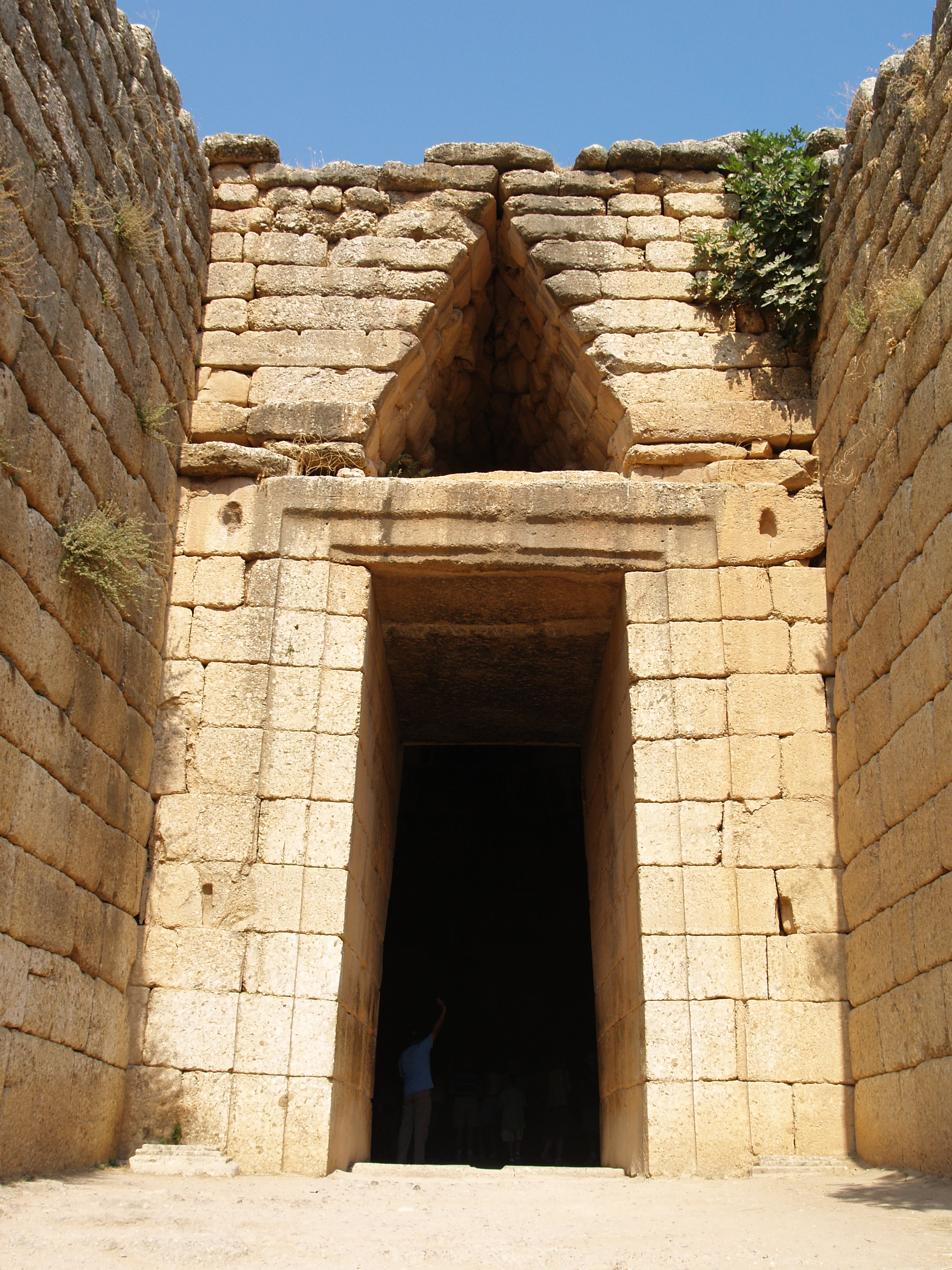
The Apidima Cave in Mani, southern Greece, contains what some suggest are the oldest remains of early modern humans outside of Africa, dated to 200,000 years ago, though other interpretations suggest these are archaic humans. All three stages of the Stone Age are represented in Greece, exemplified by sites like the Franchthi Cave. Neolithic settlements in Greece, dating from the 7th millennium BC, are the oldest in Europe, as Greece was a key route for the spread of farming from the Near East.
Greece is home to the first advanced civilisations in Europe. The earliest was the Cycladic culture, which flourished on the Aegean islands from around 3200 BC, producing distinctive marble figurines. From around 3100 BC to 1100 BC, Crete was the center of the Minoan civilization, known for its vibrant art, religious figurines, and monumental palaces like Knossos. The Minoans used undeciphered scripts known as Linear A and Cretan hieroglyphs. On the mainland, the Mycenaean civilisation developed around 1750 BC, lasting until around 1100 BC. The Mycenaeans were militarily advanced, built large fortifications with Cyclopean masonry, worshipped numerous deities, and used Linear B to write the earliest attested form of the Greek language, known as Mycenaean Greek. These early civilisations laid crucial groundwork for subsequent developments in the region, establishing complex societal structures, artistic traditions, and early forms of administration and writing that influenced the later Greek world.
3.2. Ancient Greece
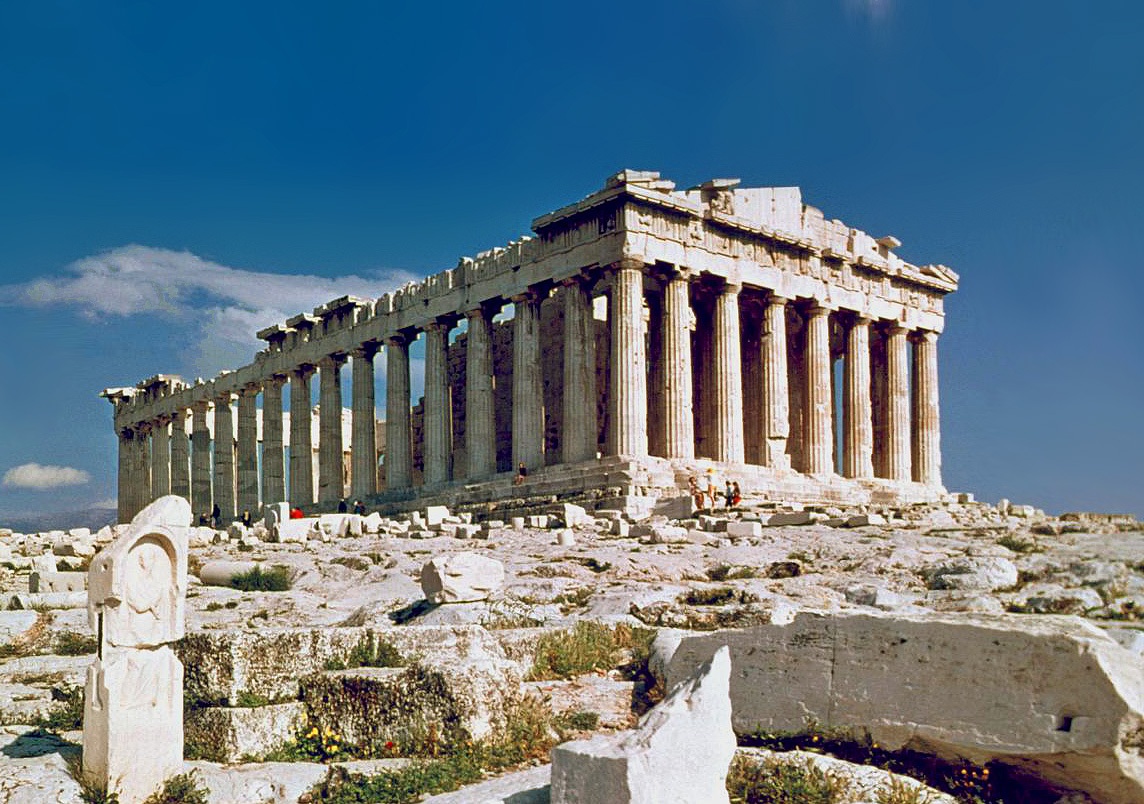
The collapse of the Mycenaean civilisation ushered in the Greek Dark Ages, a period lacking written records, traditionally ending in 776 BC with the first Olympic Games. The epic poems, the Iliad and the Odyssey, attributed to Homer and composed in the 7th or 8th centuries BC, became foundational texts of Western literature, shaping beliefs about the Olympian gods. Ancient Greek religion, however, lacked a rigid priestly class or dogma, encompassing diverse practices like the cult of Dionysus and mystery cults.
During this era, independent city-states, known as poleis (singular polis), emerged across the Greek peninsula and spread through colonization to the Black Sea, Magna Graecia (southern Italy), and Anatolia. These poleis achieved great prosperity, leading to the cultural boom of classical Greece, characterized by advancements in architecture, drama, science, mathematics, and philosophy. A pivotal development was the establishment of the world's first democratic system of government in Athens by Cleisthenes in 508 BC, which, despite its limitations (excluding women, slaves, and foreigners), laid crucial groundwork for later democratic thought.
By 500 BC, the Persian Empire controlled Greek city-states in Asia Minor and Macedonia. The Ionian Revolt against Persian rule failed, leading to Persian invasions of mainland Greece. The first invasion was repelled at the Battle of Marathon (490 BC). In response, Greek city-states formed the Hellenic League in 481 BC, led by Sparta. The second Persian invasion of Greece (480-479 BC) was decisively defeated at Salamis and Plataea, leading to Persian withdrawal from Europe. The Greek victories marked a crucial moment, ushering in the Golden Age of Athens, a period of peace and cultural flourishing that laid many foundations of Western civilisation, including significant advancements in democratic practices and philosophical inquiry.
However, the lack of political unity led to frequent conflicts between Greek states. The devastating Peloponnesian War (431-404 BC) between Athens and Sparta resulted in the demise of the Athenian Empire and the rise of Spartan, then Theban, hegemony. Weakened by internal strife, the Greek poleis were subjugated by the rising power of the kingdom of Macedon under Philip II, who formed the League of Corinth. After Philip's assassination in 336 BC, his son Alexander the Great led a Panhellenic campaign against the Persian Empire, conquering vast territories from the eastern Mediterranean to northwestern India before his death in 323 BC.

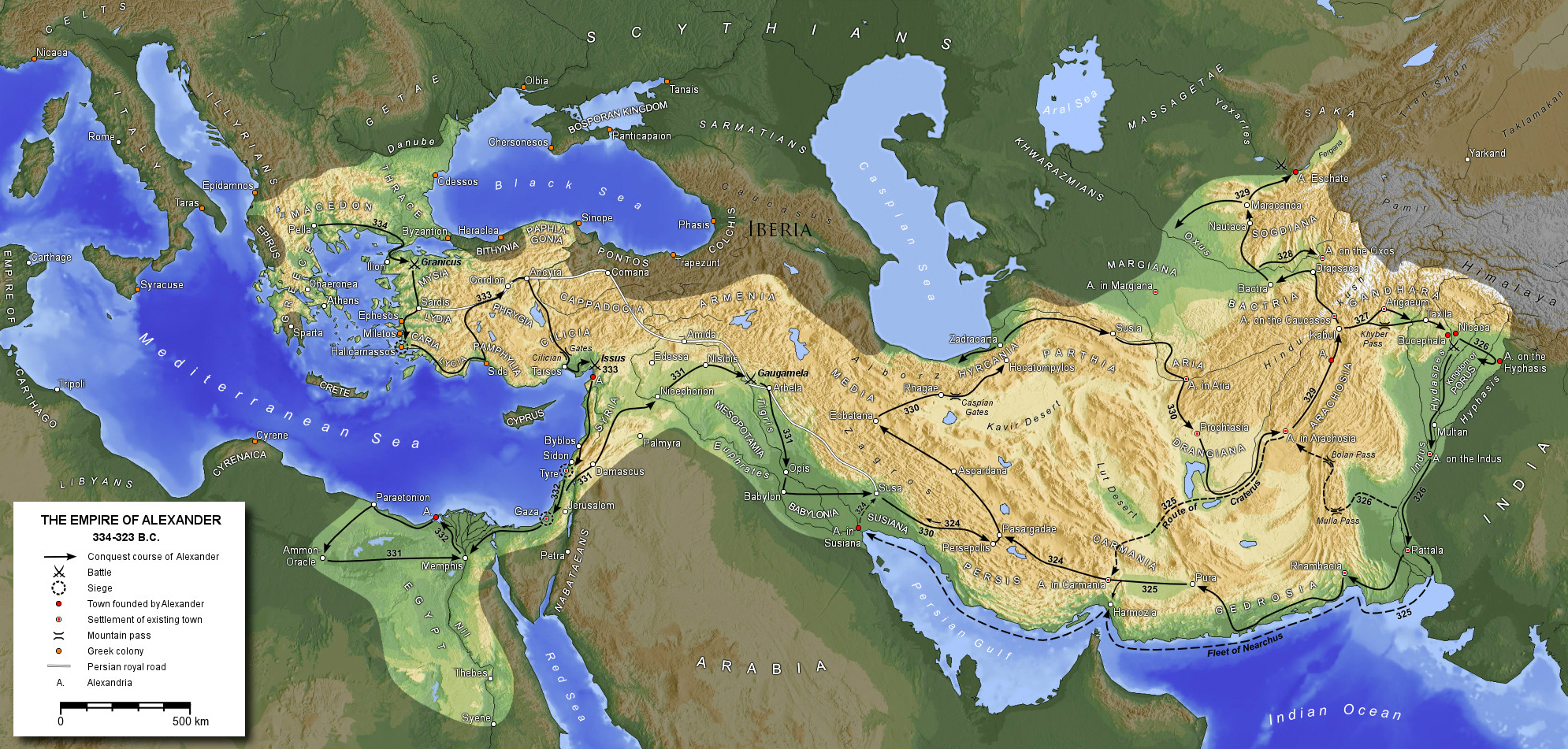
Alexander's empire fragmented upon his death, initiating the Hellenistic period. His generals, the Diadochi, established large kingdoms like the Ptolemaic dynasty in Egypt and the Seleucid dynasty in Syria, Mesopotamia, and Iran. Greek settlers in new poleis like Alexandria and Antioch spread Koine Greek and Greek culture (Hellenization), while also adopting Eastern deities. This era saw Greek science, technology, and mathematics reach their peak. Many Greek poleis formed federations (koina or sympoliteiai) to maintain autonomy from the Antigonid kings of Macedon. The Hellenistic period represented a significant diffusion of Greek culture and political systems, though often imposed through conquest, setting the stage for interactions with the rising Roman power.
3.3. Roman and Byzantine Eras
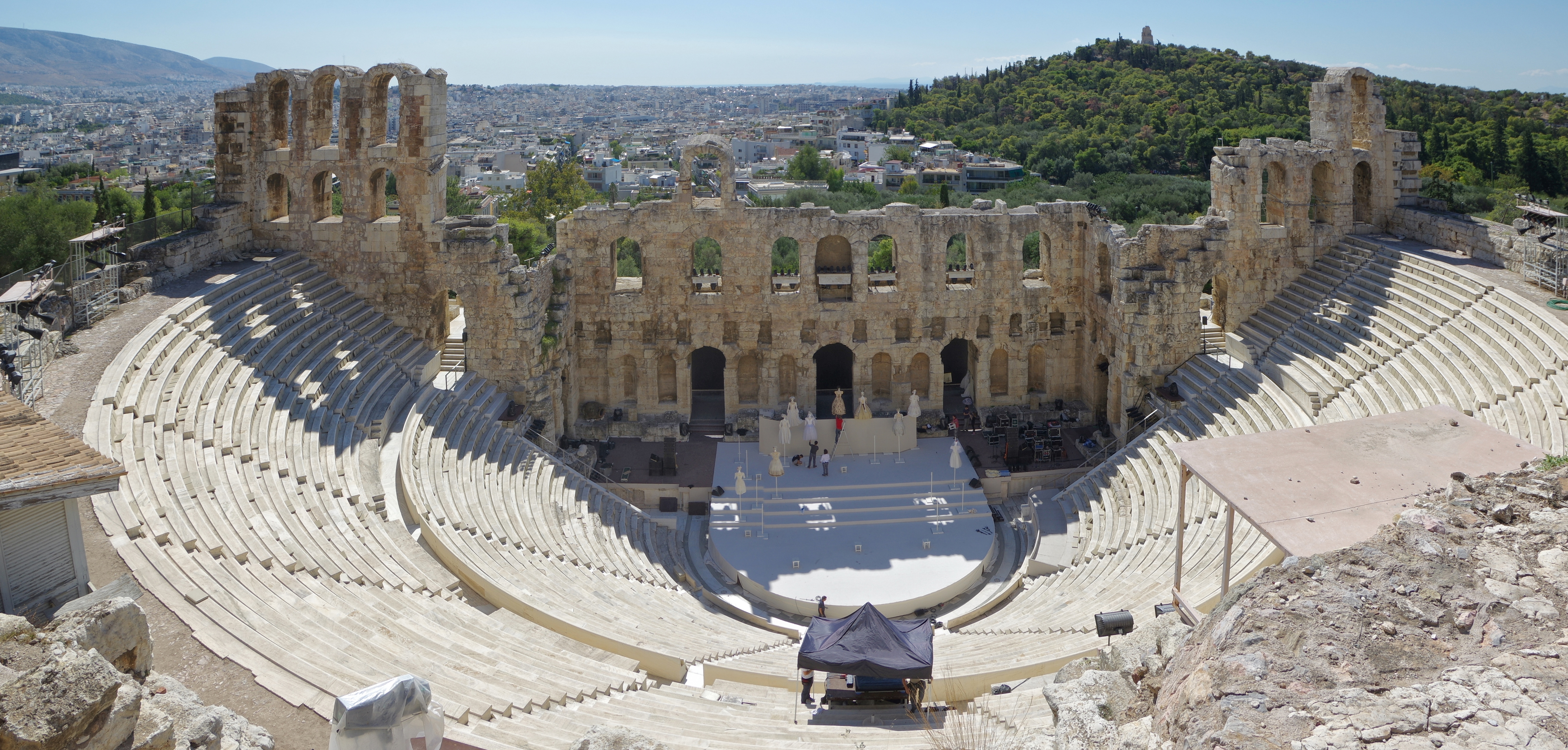
From around 200 BC, the Roman Republic became increasingly involved in Greek affairs, engaging in a series of Macedonian Wars. Macedon's defeat at the Battle of Pydna in 168 BC marked the end of Antigonid power. In 146 BC, Macedonia was annexed as a Roman province, and the rest of Greece became a Roman protectorate. The process culminated in 27 BC when Emperor Augustus annexed the remaining Greek territories, constituting them as the senatorial province of Achaea. Despite their military superiority, the Romans deeply admired and were heavily influenced by Greek culture, leading to a Greco-Roman cultural synthesis. This period saw changes in governance as Greek city-states lost their political independence, though many retained a degree of local autonomy and cultural vibrancy.
Greek-speaking communities in the Hellenized East were instrumental in the spread of Christianity in the 2nd and 3rd centuries. The New Testament was written in Greek, and early Christian leaders were often Greek-speaking. However, paganism persisted in Greece, with ancient religious practices continuing until outlawed by Emperor Theodosius I in 391-392 AD. The last recorded Olympic Games were held in 393 AD. The closure of the Neoplatonic Academy of Athens by Emperor Justinian in 529 AD is often considered the end of antiquity, impacting philosophical freedom, though some academic activity may have continued.

The Roman Empire in the east, following the fall of the Western Roman Empire in the 5th century, is known as the Byzantine Empire. With its capital in Constantinople, its language and culture were predominantly Greek, and its religion was primarily Eastern Orthodox Christianity. The Empire's Balkan territories, including Greece, suffered from barbarian invasions by Goths, Huns, and later Slavs in the 7th century, leading to a decline in imperial authority in the Greek peninsula. However, the view of widespread decline is contested, as many cities showed institutional continuity and prosperity between the 4th and 6th centuries.
Until the 8th century, much of modern Greece was under the jurisdiction of the See of Rome. Byzantine Emperor Leo III shifted this to the Patriarchate of Constantinople. The Byzantine recovery of lost provinces began in the 8th century, and most of the Greek peninsula came under imperial control again, facilitated by an influx of Greeks from Sicily and Asia Minor. During the 11th and 12th centuries, stability led to economic growth in the Greek peninsula. The Greek Orthodox Church played a vital role in shaping Greek identity and spreading Greek ideas throughout the Orthodox world. This era solidified the Greek cultural and religious framework that would endure for centuries.
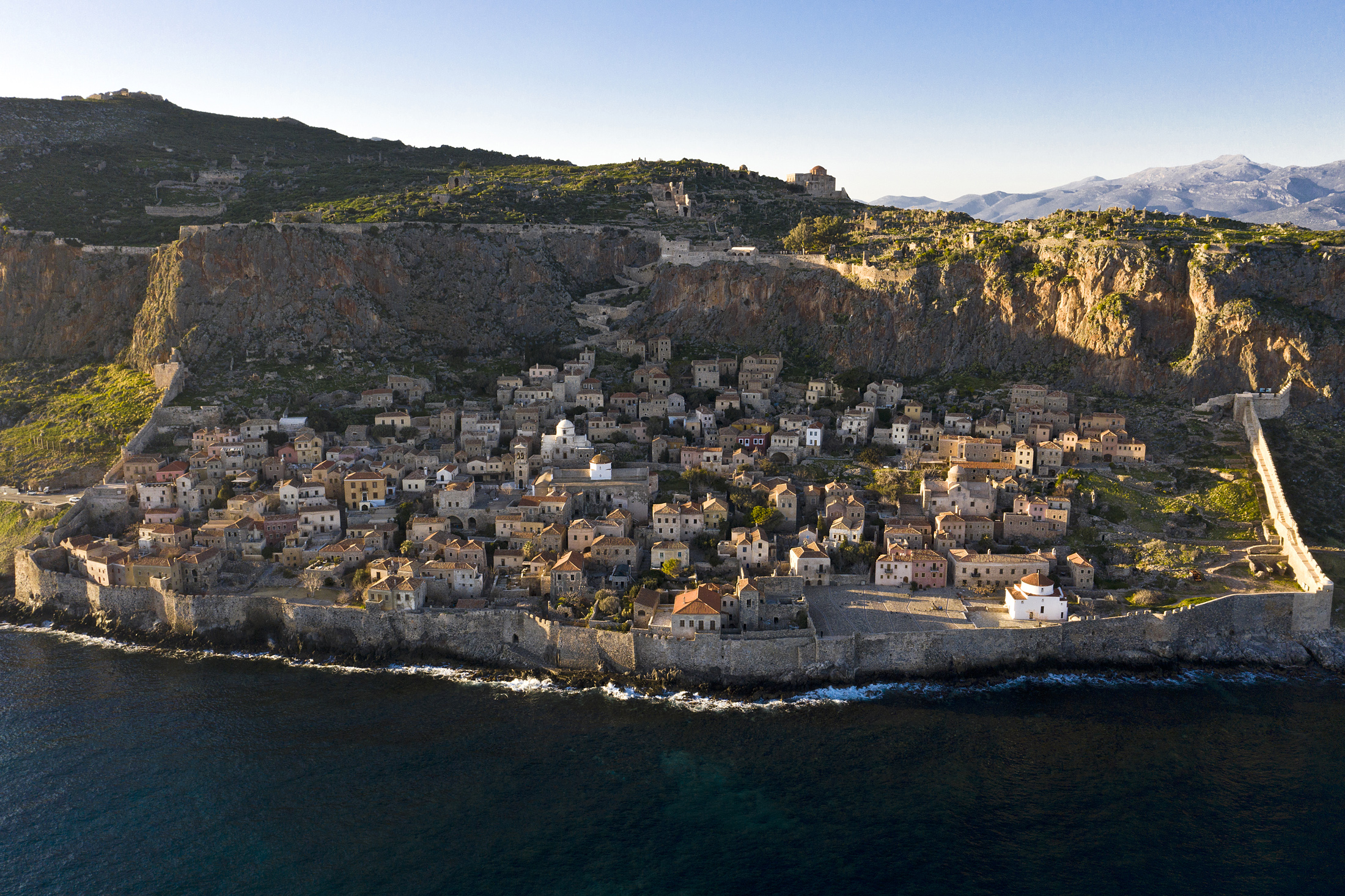
Following the Fourth Crusade and the fall of Constantinople to the Latins in 1204, mainland Greece was fragmented between the Greek Despotate of Epirus and French rule (the Frankokratia). The re-establishment of the imperial capital in Constantinople in 1261 saw the empire recover much of the Greek peninsula, though islands often remained under Genoese and Venetian control. The Palaiologos dynasty (1261-1453) witnessed a resurgence of Greek patriotism and a renewed interest in ancient Greece. However, in the 14th century, much of the Greek peninsula was lost to Serbs and then to the Ottoman Empire. The fall of Constantinople to the Ottomans in 1453, and the subsequent conquest of mainland Greece by 1460, marked the end of Byzantine rule and the beginning of a new period of foreign domination, significantly altering the political and social landscape for the Greek-speaking populations.
3.4. Ottoman and Venetian Rule

By the end of the 15th century, most of mainland Greece and the Aegean islands were under Ottoman control. However, Cyprus and Crete remained Venetian possessions until 1571 and 1669, respectively. The Venetian Republic also maintained control of the Ionian Islands until 1797. While some Greeks, particularly Phanariots in Constantinople, achieved positions of power within the Ottoman administration, much of the Greek population suffered economic hardship due to heavy taxation and policies that effectively turned rural Greeks into serfs. This period largely cut Greece off from major European historical developments like the Renaissance, impacting its societal trajectory.
The Greek Orthodox Church, under the Ecumenical Patriarchate of Constantinople, was considered by the Ottomans as the ruling authority for the Orthodox Christian population of the Empire. While non-Muslims were not forced to convert to Islam, Christians faced discrimination, which, combined with harsh local Ottoman authorities, led to some conversions, often superficial. The nature of Ottoman administration varied but was often arbitrary and harsh. Some cities had governors appointed by the Sultan, while others, like Athens, were self-governed municipalities. Mountainous regions and many islands remained effectively autonomous.
The 16th and 17th centuries are often regarded as a "dark age" in Greek history. Despite this, Greeks participated in several uprisings against Ottoman rule, including the Battle of Lepanto (1571), the Morean War (1684-1699), and the Russian-instigated Orlov Revolt (1770). These revolts were brutally suppressed by the Ottomans. Many Greeks were conscripted into the Ottoman military, particularly the navy, while the Ecumenical Patriarchate generally remained loyal to the Empire. The long period of Ottoman rule profoundly shaped Greek society, fostering a strong sense of religious and cultural identity that would later fuel the fight for independence, even as it imposed significant burdens on the population.
3.5. Modern Greece
The era of modern Greece begins with the struggle for independence in the early 19th century, leading to the formation of a new nation-state. This period is characterized by territorial expansion, involvement in major European conflicts, internal political strife including civil war and dictatorship, and eventual democratization. The development of the modern Greek state has been a complex process, marked by both progress in democratic institutions and human rights, and significant challenges to the welfare and liberties of its citizens.
3.5.1. Greek War of Independence and the Kingdom
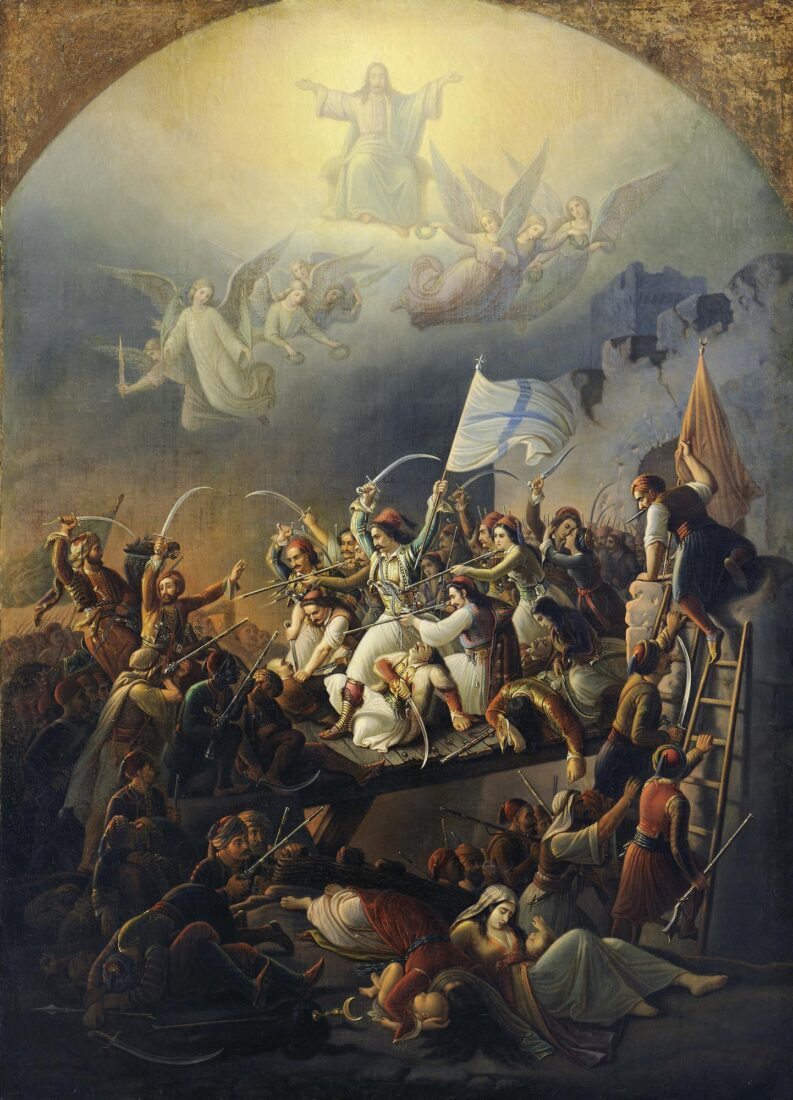
In the 18th century, Greek merchants gained prominence in Ottoman trade, establishing communities across the Mediterranean and Europe. Their wealth funded educational activities, exposing younger generations to Western ideas and fostering the Modern Greek Enlightenment, which cultivated a notion of a Greek nation among Westernized elites. The secret society Filiki Eteria, formed in 1814, played a crucial role in mobilizing various strata of Greek Orthodox society for the cause of liberal nationalism.
The first revolt began on March 6, 1821, in the Danubian Principalities but was suppressed. This spurred the Greeks of the Peloponnese, and on March 17, the Maniots declared war on the Ottomans. By October 1821, Greeks had captured Tripolitsa. Revolts also occurred in Crete, Macedonia, and Central Greece but were put down. Massacres committed by Turkish and Egyptian forces in 1822 and 1824 galvanized Western European public opinion in favor of the Greeks, highlighting the human rights abuses of the conflict. The Ottoman Sultan Mahmud II secured aid from Mehmet Ali of Egypt, whose son Ibrahim Pasha led an army that controlled most of the Peloponnese by late 1825.
The intervention of three Great Powers-France, Russia, and the United Kingdom-was decisive. Their allied fleet destroyed the Ottoman-Egyptian fleet at the Battle of Navarino (1827). By 1828, the Greeks had captured Central Greece. The nascent First Hellenic Republic was recognized under the London Protocol in 1830.
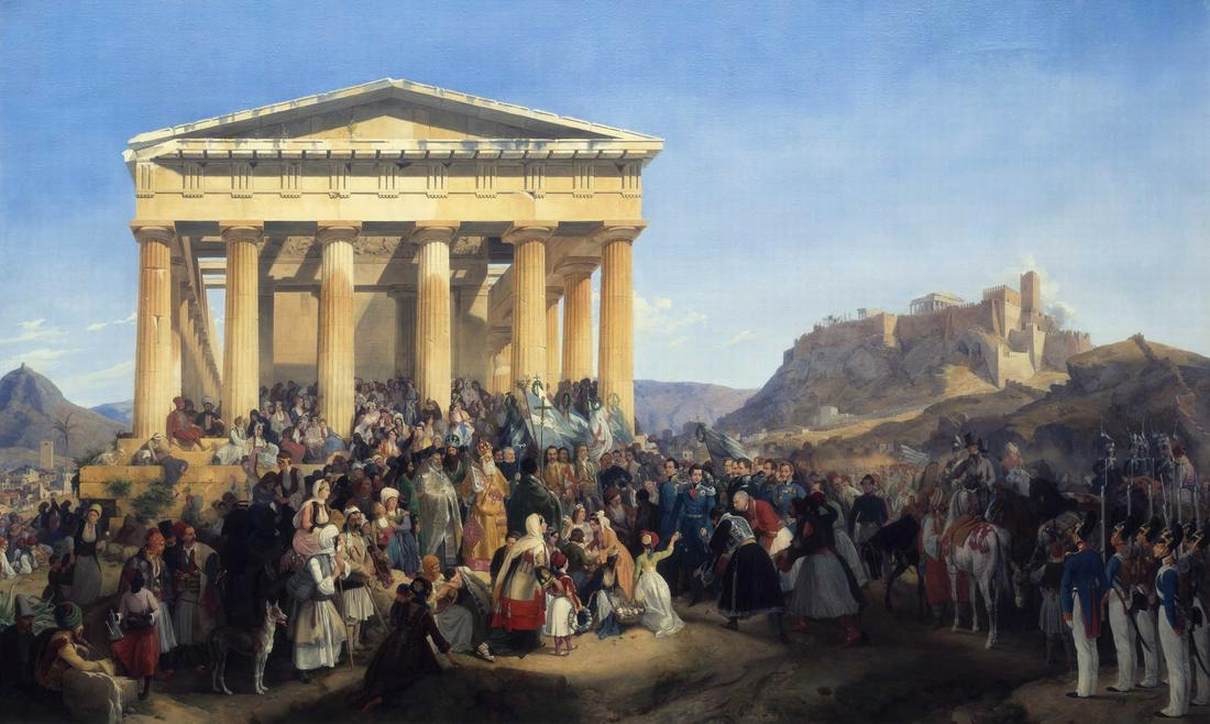
In 1827, Ioannis Kapodistrias became the first governor of the First Hellenic Republic, establishing state institutions. His assassination in 1831 led the Great Powers to install Bavarian Prince Otto von Wittelsbach as monarch in 1832. Otto's reign was despotic, with Greece initially ruled by a Bavarian oligarchy. An uprising in 1843 forced Otto to grant a constitution and a representative assembly, a step towards democratic governance. Despite its absolutism, Otto's reign was instrumental in developing core Greek administrative and educational institutions. Reforms included education, maritime communications, civil administration, and the legal code. The capital moved from Nafplio to Athens. The Church of Greece was established as the national church, reinforcing the link between Greek identity and Orthodoxy, though this also involved a de-Byzantinification and de-Ottomanisation of historical narratives.
Otto was deposed in 1862 due to his authoritarian rule, heavy taxation, and a failed attempt to annex Crete. He was replaced by Prince Wilhelm of Denmark, who became George I. Britain gifted the Ionian Islands to Greece upon his coronation. A new Constitution in 1864 transitioned Greece from a constitutional monarchy to a more democratic crowned republic. In 1875, the principle of requiring a parliamentary majority for government formation was introduced, curbing monarchical power. However, corruption and high spending (e.g., Corinth Canal) led to public insolvency in 1893. The desire to liberate Hellenic lands under Ottoman rule remained strong, fueled by events like the Cretan Revolt (1866-1869). In 1897, Greece declared war on the Ottomans but was defeated. Through Great Power intervention, Greece lost little territory, and Crete became an autonomous state. Fiscal policy came under International Financial Control. The government sponsored the Macedonian Struggle, a guerrilla campaign in Ottoman-ruled Macedonia, aiming to counter Bulgarian influence, which ended with the Young Turk Revolution in 1908. This period was marked by a slow, often externally influenced, development of state institutions and democratic norms, alongside significant social and economic challenges.
3.5.2. Expansion, World Wars, and National Schism

Amidst dissatisfaction with the perceived inertia of national aspirations, military officers organized the Goudi coup in 1909 and called upon Cretan politician Eleftherios Venizelos. After winning two elections and becoming prime minister in 1910, Venizelos initiated significant fiscal, social, and constitutional reforms, reorganized the military, and led Greece through the Balkan Wars as a member of the Balkan League. By 1913, Greece's territory and population had nearly doubled, annexing Crete, Epirus, and Macedonia.
The struggle between King Constantine I (pro-German) and Venizelos (pro-Entente) over foreign policy on the eve of World War I led to the National Schism, deeply dividing the country and its political landscape. For parts of the war, Greece had two governments: a royalist one in Athens and a Venizelist one in Thessaloniki. They united in 1917 when Greece officially entered the war on the side of the Entente.
After WWI, Greece attempted expansion into Asia Minor, a region with a large native Greek population. This campaign, the Greco-Turkish War (1919-1922), ended in a catastrophic defeat for Greece, contributing to the flight of Ottoman Greeks from Asia Minor. These events occurred during the Greek genocide (1914-1922), where Ottoman and Turkish actions led to the deaths of hundreds of thousands of Asia Minor Greeks, alongside Assyrians and Armenians. The subsequent population exchange between Greece and Turkey, mandated by the Treaty of Lausanne, made the Greek exodus permanent and expanded. Over 1.5 million propertyless Greek refugees from Turkey, many unable to speak Greek, had to be integrated into Greek society, dramatically increasing the population by more than a quarter and posing immense social and economic challenges, deeply affecting human rights and living conditions for the displaced.
Following these disastrous events, the monarchy was abolished via a referendum in 1924, and the Second Hellenic Republic was declared. However, in 1935, royalist general-turned-politician Georgios Kondylis seized power in a coup, abolished the republic, and held a rigged referendum restoring King George II to the throne. This period was marked by profound political instability and social upheaval, with lasting consequences for democratic development.
3.5.3. Civil War, Dictatorship, and Democratization
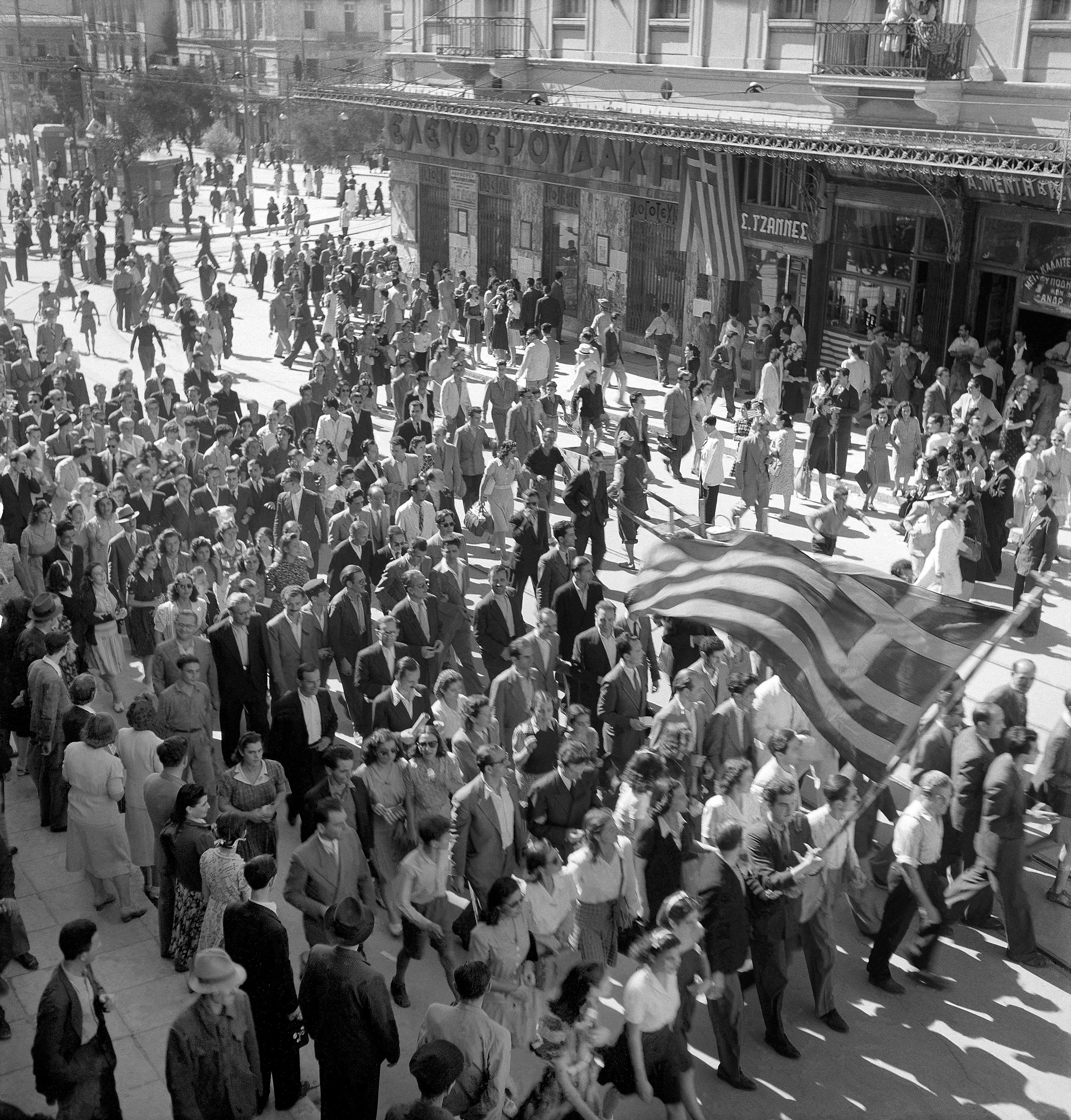
An agreement between Prime Minister Ioannis Metaxas and King George II in 1936 installed Metaxas as head of a dictatorship known as the 4th of August Regime, initiating a period of authoritarian rule that, with interruptions, would last until 1974. Greece remained on good terms with Britain.
In October 1940, Fascist Italy demanded Greece's surrender, but Metaxas refused (Ohi Day). In the ensuing Greco-Italian War, Greece repelled Italian forces into Albania. This initial success was praised, but Greece fell to German forces during the Battle of Greece. The Axis occupation saw Nazis administering Athens and Thessaloniki, while other regions were given to Italy and Bulgaria. The occupation was devastating: over 100,000 civilians died of starvation in the winter of 1941-42, tens of thousands more died in reprisals by Nazis and collaborators, the economy was ruined, and most Greek Jews were deported and murdered. The Greek Resistance was one of Europe's most effective. German occupiers committed widespread atrocities, mass executions, and destruction of towns and villages, leaving almost 1 million Greeks homeless. Around 21,000 Greeks were executed by Germans, 40,000 by Bulgarians, and 9,000 by Italians.
Following liberation, Greece annexed the Dodecanese Islands from Italy and regained Western Thrace from Bulgaria. However, the country descended into a bitter Greek Civil War (1946-1949) between communist forces and the anti-communist Greek government, which ended with the latter's victory. The conflict, an early struggle of the Cold War, caused further economic devastation, population displacement, and severe political polarization that suppressed democratic voices and curtailed civil liberties for decades.
Although the post-war era was marked by social strife and the marginalization of the left, Greece experienced rapid economic growth (the Greek economic miracle), partly fueled by the U.S. Marshall Plan. In 1952, Greece joined NATO.
King Constantine II's dismissal of George Papandreou's centrist government in 1965 (Apostasia of 1965) prompted political turbulence, culminating in a coup on April 21, 1967, by the Greek junta, led by Georgios Papadopoulos. This military dictatorship suspended civil rights, intensified political repression, and human rights abuses, including torture, were rampant. Economic growth continued but plateaued by 1972. The brutal suppression of the Athens Polytechnic uprising in November 1973 triggered a counter-coup that established Brigadier Dimitrios Ioannidis as the new strongman. On July 20, 1974, Turkey invaded Cyprus in response to a Greek-backed Cypriot coup. This crisis led to the collapse of the junta and the restoration of democracy through Metapolitefsi, a critical turning point for the re-establishment of democratic institutions and civil rights in Greece.
3.5.4. Third Hellenic Republic

Former prime minister Konstantinos Karamanlis was invited back from self-exile, and the first multiparty elections since 1964 were held on the anniversary of the Polytechnic uprising. A democratic and republican constitution was promulgated in 1975 following a referendum that abolished the monarchy, marking a definitive shift towards a more stable democratic framework.
Andreas Papandreou, son of George Papandreou, founded the Panhellenic Socialist Movement (PASOK), which, along with Karamanlis's conservative New Democracy party, dominated Greek politics for the next four decades. Greece rejoined NATO's integrated military structure in 1980. In 1981, Greece became the tenth member of the European Communities (now the European Union), ushering in a period of sustained growth and societal modernization. Investments in industry and infrastructure, EU funds, and revenues from tourism, shipping, and the service sector raised living standards. Andreas Papandreou's election in 1981 led to significant social reforms in the 1980s, including the recognition of civil marriage, abolition of the dowry system, and changes in education and foreign policy. However, his tenure was also associated with issues of corruption, high inflation, and budget deficits that contributed to later economic problems.
Greece adopted the euro in 2001 and successfully hosted the 2004 Summer Olympics in Athens. However, in 2010, the country was severely hit by the Great Recession and the related European sovereign debt crisis. As a eurozone member, Greece could not devalue its currency to regain competitiveness. The subsequent austerity measures imposed as part of bailout packages led to widespread social unrest, a significant drop in living standards, and a rise in unemployment, particularly impacting vulnerable groups and straining social cohesion.
The 2012 elections saw a major political shift, with new parties emerging from the collapse of PASOK and New Democracy. In 2015, Alexis Tsipras of the left-wing SYRIZA party was elected prime minister, the first outside the two traditional main parties. The debt crisis officially ended around 2018 with the conclusion of bailout mechanisms and a return to growth. Simultaneously, Tsipras and North Macedonian leader Zoran Zaev signed the Prespa Agreement, resolving the long-standing Macedonia naming dispute, which eased North Macedonia's path to EU and NATO membership and was seen as a step towards regional stability.
In 2019, Kyriakos Mitsotakis of New Democracy became prime minister. In 2020, Katerina Sakellaropoulou was elected as Greece's first female President. A significant social advancement occurred in February 2024 when Greece became the first Orthodox Christian country to legalize same-sex marriage and adoption by same-sex couples, reflecting progress in LGBTQ+ rights and social liberalization. The Third Hellenic Republic continues to navigate contemporary challenges, including economic recovery, social integration, and strengthening its democratic institutions while upholding human rights.
4. Geography
Greece is located in Southern and Southeast Europe, consisting of a mountainous, peninsular mainland jutting out into the sea at the southern end of the Balkans, ending at the Peloponnese peninsula. It is strategically located at the crossroads of Europe, Asia, and Africa. Greece shares land borders with Albania to the northwest, North Macedonia and Bulgaria to the north, and Turkey to the east. The Aegean Sea lies to the east of the mainland, the Ionian Sea to the west, and the Sea of Crete and the Mediterranean Sea to the south. The country has the 11th longest national coastline in the world, 8.5 K mile (13.68 K km), featuring thousands of islands. Greece comprises nine traditional geographic regions. Approximately 80% of Greece consists of mountains or hills, making it one of the most mountainous countries in Europe. Environmental concerns, including deforestation, soil erosion, and water pollution, are significant, alongside the impacts of climate change such as increased risk of wildfires and desertification.
4.1. Topography and Hydrography
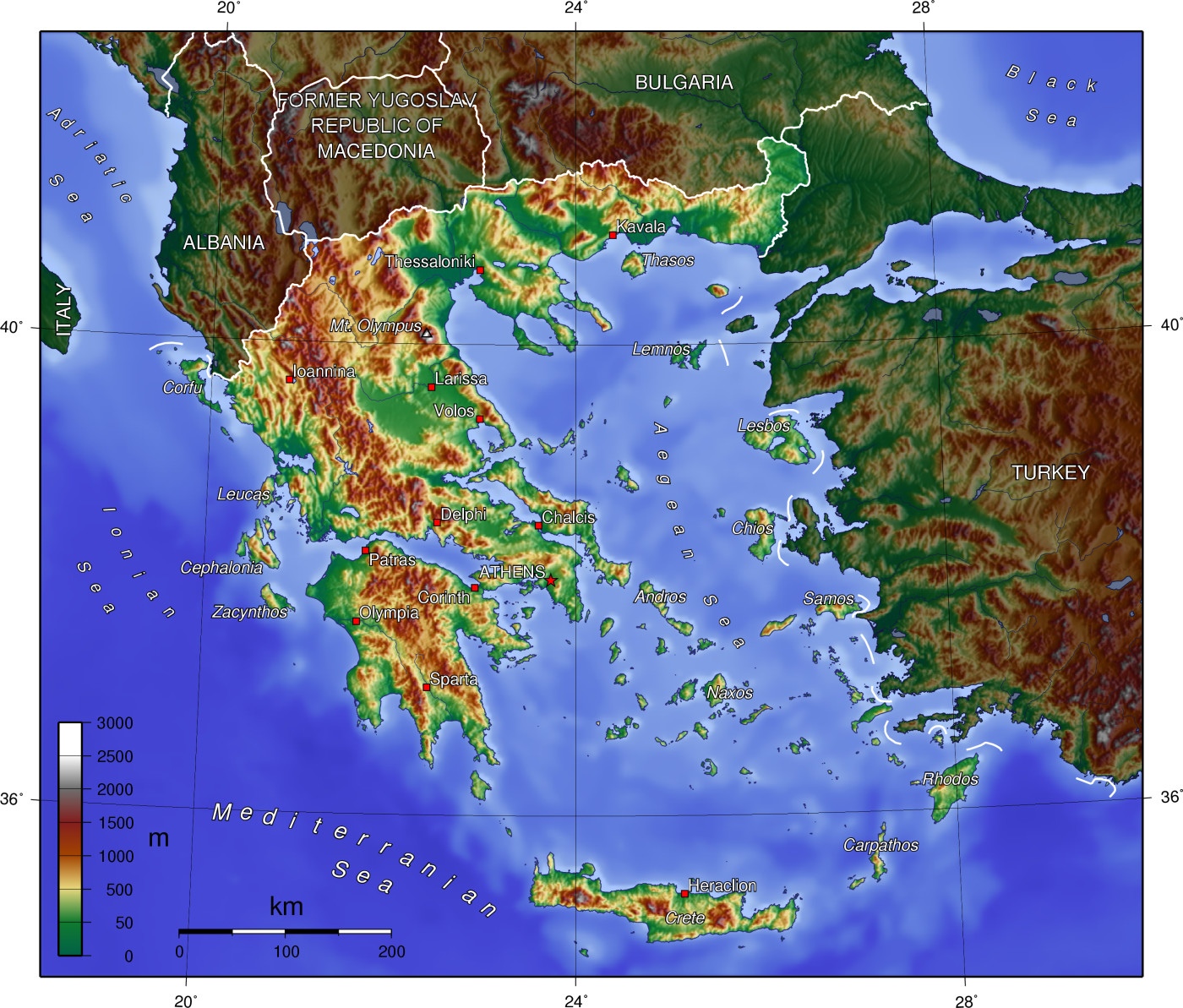
The Greek landscape is predominantly mountainous. Mount Olympus, the mythical abode of the Greek Gods, is the highest peak at 9.6 K ft (2.92 K m). Western Greece is characterized by a number of lakes and wetlands and is dominated by the Pindus mountain range, a continuation of the Dinaric Alps, reaching 8.7 K ft (2.64 K m) at Mount Smolikas. The Pindus range historically formed a significant barrier to east-west travel and its extensions cross through the Peloponnese, ending in Crete. The Vikos Gorge, part of the Vikos-Aoos National Park, is listed as one of the deepest gorges in the world. Another notable formation is the Meteora rock pillars, upon which medieval Greek Orthodox monasteries are built, demonstrating human adaptation to the challenging topography.
Northeastern Greece features the Rhodope range, an area covered with vast, ancient forests, including the Dadia Forest. Extensive plains are primarily located in Thessaly, Central Macedonia, and Thrace, constituting key economic regions due to their arable land. The network of rivers in Greece includes the Aliakmon, Pinios, Evros, Nestos, and Strymonas rivers in the north, and the Achelous in the west. Lakes such as Trichonida, Volvi, and Vegoritida are important freshwater bodies. The topography has heavily influenced settlement patterns, communication routes, and agricultural development throughout Greek history.
4.2. Climate

The climate of Greece is primarily Mediterranean (Köppen: Csa), featuring mild to cool, wet winters and hot, dry summers. This climate occurs at most coastal locations, including Athens, the Cyclades, the Dodecanese, Crete, the Peloponnese, the Ionian Islands, and parts of mainland Greece. The Pindus mountain range significantly affects the climate, with areas to its west being considerably wetter on average than areas to its east due to a rain shadow effect. This can lead to some coastal areas in the south falling into the hot semi-arid climate (Köppen: BSh) category, such as parts of the Athens Riviera and some Cyclades islands. Some northern areas like Thessaloniki and Larissa can feature a cold semi-arid climate (Köppen: BSk).
The mountainous areas of northwestern Greece and higher elevations feature an Alpine climate (Köppen: D, E) with heavy winter snowfalls. Inland parts of northern Greece (Central Macedonia, lower Western Macedonia), Eastern Macedonia and Thrace often have a humid subtropical climate (Köppen: Cfa) with cold, damp winters and hot, moderately dry summers with occasional thunderstorms. Snowfall occurs annually in the mountains and northern areas, and brief snowy periods are possible even in low-lying southern areas. Climate change is an increasing concern, with projections indicating hotter summers, more frequent heatwaves, and altered precipitation patterns, which could exacerbate issues like water scarcity and wildfires, impacting agriculture, tourism, and overall societal well-being.
4.3. Islands
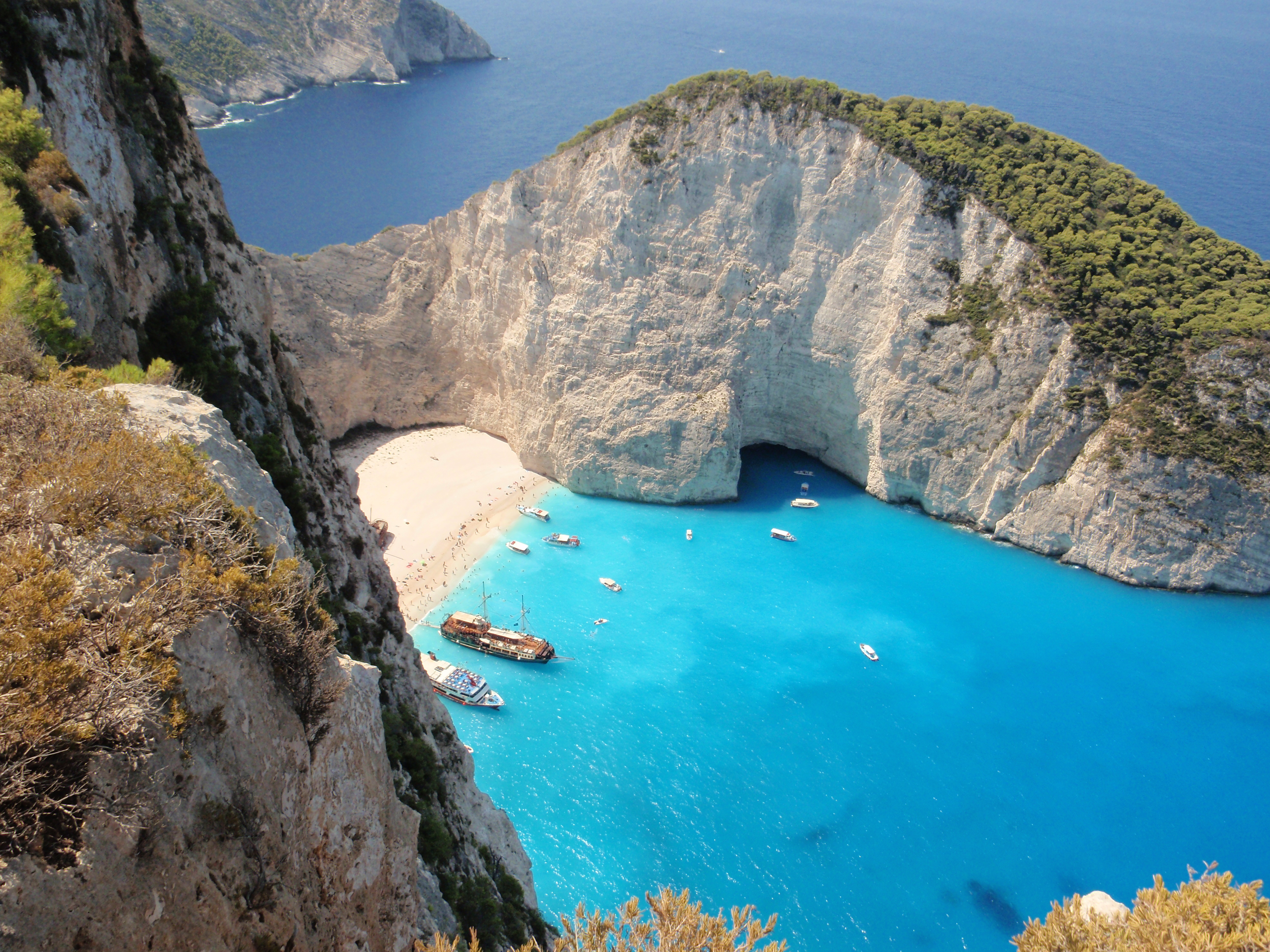
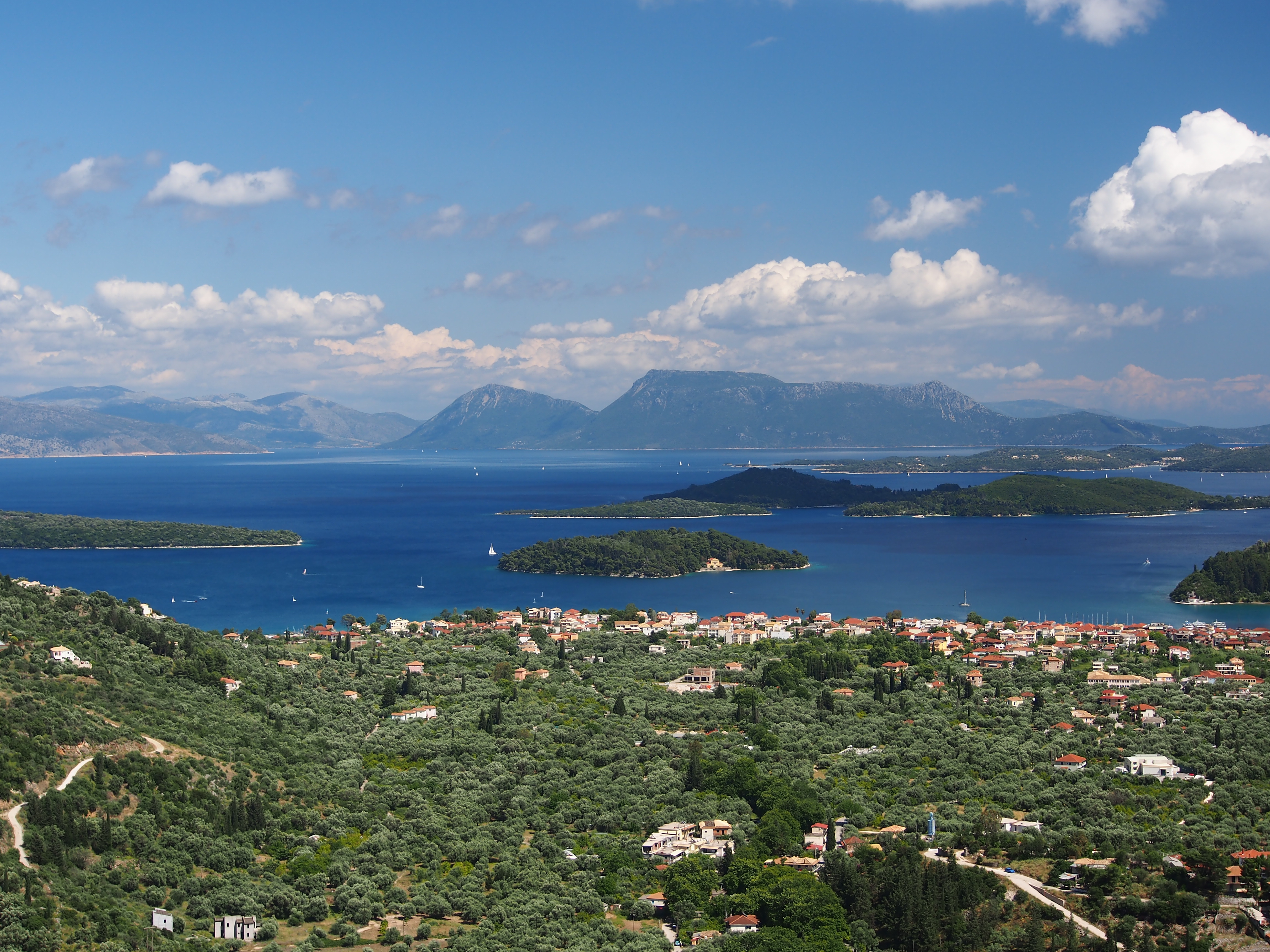
Greece features a vast number of islands, estimated between 1,200 and 6,000 depending on the definition, with 227 of them inhabited. These islands are integral to Greece's geography, culture, and economy. Crete is the largest and most populous island, possessing a distinct history and culture. Euboea, separated from the mainland by the narrow Euripus Strait, is the second largest. Other major islands include Lesbos and Rhodes.
The Greek islands are traditionally grouped into several clusters:
- The Argo-Saronic Islands are located in the Saronic Gulf near Athens (e.g., Aegina, Hydra, Poros, Spetses).
- The Cyclades form a large, dense group in the central Aegean Sea (e.g., Mykonos, Santorini, Naxos, Paros). They are renowned for their distinctive white-washed architecture and vibrant tourism.
- The North Aegean islands are a looser grouping off the west coast of Turkey (e.g., Lesbos, Chios, Samos, Lemnos, Thasos).
- The Dodecanese are another loose collection in the southeastern Aegean, between Crete and Turkey (e.g., Rhodes, Kos, Patmos, Karpathos). They have a rich history reflecting diverse cultural influences.
- The Sporades are a small, tight group off the coast of northeast Euboea (e.g., Skiathos, Skopelos, Alonissos).
- The Ionian Islands are located to the west of the mainland in the Ionian Sea (e.g., Corfu, Kefalonia, Zakynthos, Lefkada, Ithaca). They have a distinct cultural heritage influenced by Venetian rule.
These islands contribute significantly to Greece's tourism industry, maritime activities, and agricultural production (e.g., olives, wine). They also face challenges such as water scarcity, infrastructure development, and environmental protection, particularly in the context of climate change and tourism pressures. Their unique cultural and economic aspects reflect centuries of adaptation to island environments and maritime connections.
4.4. Biodiversity
Phytogeographically, Greece belongs to the Boreal Kingdom and is shared between the East Mediterranean province of the Mediterranean Region and the Illyrian province of the Circumboreal Region. According to the World Wide Fund for Nature and the European Environment Agency, Greece's territory can be subdivided into six ecoregions: the Illyrian deciduous forests, Pindus Mountains mixed forests, Balkan mixed forests, Rhodope montane mixed forests, Aegean and Western Turkey sclerophyllous and mixed forests, and Crete Mediterranean forests. In 2018, Greece had a Forest Landscape Integrity Index mean score of 6.6/10, ranking it 70th globally out of 172 countries.
Greece boasts rich biodiversity due to its varied climate and topography. Its flora includes thousands of plant species, many of which are endemic. The country is known for its olive groves, vineyards, and diverse wildflowers. Forests, though impacted by human activity and wildfires, cover significant areas, particularly in the northern and mountainous regions. Notable national parks include Olympus National Park, Pindus National Park, Prespa National Park, and Samariá Gorge National Park on Crete, all established to protect unique ecosystems and species.
The fauna of Greece includes rare marine species such as the Mediterranean monk seal (one of the most endangered mammals in Europe) and the loggerhead sea turtle (Caretta caretta), which nests on Greek beaches. Its dense forests are home to endangered mammals like the brown bear, the Eurasian lynx, the roe deer, and the wild goat or kri-kri (endemic to Crete). Birdlife is also diverse, with Greece being an important stopover for migratory birds.
Ecological conservation efforts are ongoing, with numerous areas designated as Natura 2000 sites under EU law. However, biodiversity faces threats from habitat loss due to urbanization and tourism development, pollution, unsustainable agricultural practices, and the impacts of climate change, such as prolonged droughts and increased fire risk. In a positive step for marine conservation, Greece became the first country in the European Union in 2024 to ban bottom trawling in all its marine protected areas, aiming to safeguard its marine biodiversity. Addressing these environmental issues is crucial for the long-term ecological health and sustainable development of the country.
5. Politics
Greece is a parliamentary republic with a political system defined by its Constitution, which was enacted in 1975 after the fall of the military dictatorship and has been amended four times since. The constitution establishes a separation of powers into executive, legislative, and judicial branches and guarantees extensive civil liberties and social rights, which were further reinforced in 2001. The system promotes democratic processes, including multi-party elections, and aims to uphold the rule of law, though challenges related to political corruption and bureaucratic inefficiency persist. Public participation, while moderate compared to some OECD countries, is a feature of its democratic life, with citizens actively engaging in political discourse and elections.
5.1. System of Government and Constitution
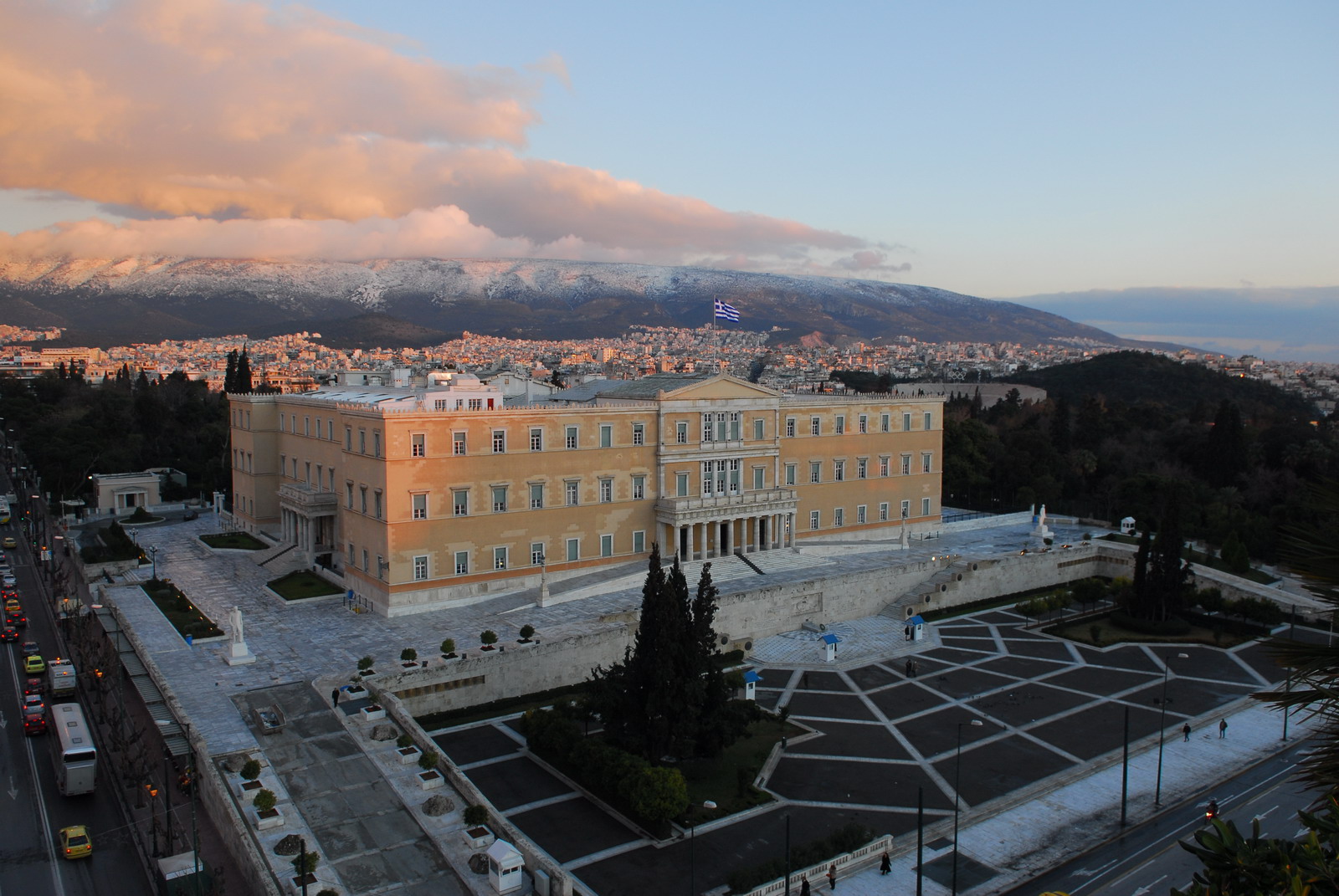
Greece's form of government is a parliamentary republic. The Constitution, first adopted in 1975 and subsequently revised, is the supreme law of the land. It outlines the fundamental principles of the state, including popular sovereignty, the rule of law, social justice, and the protection of human rights. The Constitution has evolved to reflect societal changes and strengthen democratic institutions, for instance, with amendments enhancing civil liberties and social rights (2001) and modifying the powers of the presidency (1986). Key human rights guarantees enshrined in the Constitution include freedom of speech, assembly, religion, and the press, as well as protections against discrimination and arbitrary detention. The system ensures a multi-party democracy where power is derived from the people through elections.
5.2. President

The President of Greece is the head of state. The President is elected by the Hellenic Parliament for a five-year term and can be re-elected once. While the office is largely ceremonial, particularly after the 1986 constitutional amendment which transferred significant executive powers to the Prime Minister, the President retains certain formal powers. These include promulgating laws passed by Parliament, representing the state in international relations, appointing the Prime Minister, and formally appointing and dismissing other members of the Cabinet upon the Prime Minister's recommendation. The President also has the power to declare a state of emergency under specific constitutional provisions and acts as the commander-in-chief of the armed forces, though this role is mostly symbolic. The President is expected to be a unifying figure, standing above partisan politics and safeguarding the democratic framework of the country.
5.3. Executive

The executive power in Greece is exercised by the Government, which consists of the Cabinet headed by the Prime Minister. The Prime Minister is typically the leader of the political party that can obtain a vote of confidence from the Parliament. The Prime Minister is the most powerful political figure in the country, responsible for the general policy of the state and for coordinating the work of the government ministers.
The Cabinet is composed of ministers who are appointed by the President upon the recommendation of the Prime Minister. Ministers are usually Members of Parliament and are responsible for specific government departments (ministries). The Cabinet as a collective body makes key policy decisions, drafts legislation to be submitted to Parliament, and implements laws passed by the legislature. The government is accountable to the Parliament; it must maintain the confidence of the Parliament to remain in power. If a motion of no confidence passes, the government must resign. Key policy-making processes involve consultation within the Cabinet, engagement with parliamentary committees, and, increasingly, alignment with European Union directives and regulations.
5.4. Legislature
The Hellenic Parliament (Βουλή των ΕλλήνωνVoo-LEE ton eh-LEE-nonGreek, Modern) is the unicameral legislature of Greece. It consists of 300 members, known as Members of Parliament (MPs), who are elected for a four-year term through direct elections. The electoral system is a form of "reinforced" proportional representation, which often includes a majority bonus system favoring the party that wins a plurality of the popular vote, aiming to facilitate the formation of stable single-party or coalition governments. Parliamentary elections are held every four years, but the President can proclaim early elections on the cabinet's proposal or if a motion of no confidence passes. The current voting age is 17.
The Parliament's main functions include legislating (passing laws), overseeing the government's actions (parliamentary scrutiny), approving the state budget, and electing the President of the Republic. It plays a crucial role in representing the populace, as MPs are elected from various constituencies across the country. Legislative processes involve the introduction of bills by the government or MPs, debate in parliamentary committees and the plenary session, and voting. The Parliament is central to Greece's democratic framework, ensuring accountability and debate on national issues.
5.5. Judiciary
The Greek judicial system is independent of the executive and legislative branches, a principle enshrined in the Constitution to uphold the rule of law and protect human rights. The system is composed of civil courts, which handle civil and penal cases, and administrative courts, which resolve disputes between citizens and state authorities.
There are three Supreme Courts:
- The Court of Cassation (Άρειος ΠάγοςAH-ree-os PAH-ghosGreek, Modern) is the highest court for civil and criminal matters.
- The Council of State (Συμβούλιο της Επικρατείαςseem-VOO-lee-o tees eh-pee-krah-TEE-asGreek, Modern) is the supreme administrative court, hearing cases against administrative acts and having a role in ensuring the constitutionality of laws.
- The Court of Audit (Ελεγκτικό Συνέδριοeh-leg-tee-KO see-NEH-three-oGreek, Modern) is responsible for auditing public expenditures and overseeing public finances.
Judges are appointed for life after a probationary period and are subject to specific constitutional guarantees to ensure their independence. The judiciary plays a critical role in interpreting laws, administering justice, and ensuring that governmental actions comply with the Constitution and legal statutes, thereby safeguarding the rights of individuals and the principles of a democratic society.
5.6. Political Parties
After the restoration of democracy in 1974-1975, the Greek party system was largely dominated by two major parties: the liberal-conservative New Democracy (ND) and the social-democratic Panhellenic Socialist Movement (PASOK). These two parties alternated in power for several decades, shaping the political landscape of post-junta Greece.
The Greek government-debt crisis that began in 2009 led to a significant decline in popularity for both ND and PASOK, as they were often blamed for the economic mismanagement that contributed to the crisis and for implementing harsh austerity measures. This resulted in a fragmentation of the party system and the rise of new political forces. The parliamentary elections of May 2012 marked a turning point, with the left-wing SYRIZA (Coalition of the Radical Left) emerging as the second-largest party, overtaking PASOK as the main party of the centre-left.
SYRIZA, led by Alexis Tsipras, came to power in January 2015, initially opposing austerity but later agreeing to a third bailout package. After a period of SYRIZA governance, New Democracy, under Kyriakos Mitsotakis, returned to power following the 2019 election and secured a parliamentary majority in the June 2023 election.
Other parties currently or recently represented in the Hellenic Parliament include the Communist Party of Greece (KKE), a historically significant party with a consistent voter base; Greek Solution, a nationalist right-wing party; New Left, a splinter group from SYRIZA; Spartans, a far-right party; Niki (Victory), a socially conservative, religious Orthodox party; and Course of Freedom, a left-wing populist party. The rise and fall of parties like the neo-Nazi Golden Dawn (which was declared a criminal organization) also marked this period of political volatility, highlighting challenges to democratic norms and human rights. The party system continues to evolve, reflecting ongoing social and economic pressures.
6. Administrative Divisions

Since the Kallikratis Programme reform entered into effect on January 1, 2011, Greece has consisted of 13 regions (περιφέρειεςpe-ree-FEH-ree-esGreek, Modern), which are the main administrative units. These regions are further subdivided into a total of 332 (as of 2019, following the Kleisthenis I Programme) municipalities (δήμοιDHEE-meeGreek, Modern). The 54 old prefectures and prefecture-level administrations have been largely retained as regional units (περιφερειακές ενότητεςpe-ree-fe-ree-ah-KES eh-NO-tee-tesGreek, Modern) within the regions, primarily for administrative and electoral purposes.
Additionally, seven decentralised administrations group one to three regions for administrative purposes on a regional basis, overseeing certain state functions at a more localized level.
A special administrative status is held by Mount Athos (Άγιο ΌροςAH-yee-o O-rosGreek, Modern, "Holy Mountain"), an autonomous monastic state under Greek sovereignty. It is located on a peninsula bordering the region of Central Macedonia and is governed by its own unique spiritual and administrative system, primarily inhabited by Orthodox monks.
The regions are:
| No. | Region | Capital | Area | Population (2021) | GDP (billion EUR) |
|---|---|---|---|---|---|
| 1 | Attica | Athens | 1.5 K mile2 (3.81 K km2) | 3,814,064 | 84.00 B EUR |
| 2 | Central Greece | Lamia | 6.0 K mile2 (15.55 K km2) | 508,254 | 8.00 B EUR |
| 3 | Central Macedonia | Thessaloniki | 7.3 K mile2 (18.81 K km2) | 1,795,669 | 24.00 B EUR |
| 4 | Crete | Heraklion | 3.2 K mile2 (8.26 K km2) | 624,408 | 9.00 B EUR |
| 5 | East Macedonia and Thrace | Komotini | 5.5 K mile2 (14.16 K km2) | 562,201 | 7.00 B EUR |
| 6 | Epirus | Ioannina | 3.6 K mile2 (9.20 K km2) | 319,991 | 4.00 B EUR |
| 7 | Ionian Islands | Corfu | 0.9 K mile2 (2.31 K km2) | 204,532 | 3.00 B EUR |
| 8 | North Aegean | Mytilene | 1.5 K mile2 (3.84 K km2) | 194,943 | 2.00 B EUR |
| 9 | Peloponnese | Tripoli | 6.0 K mile2 (15.49 K km2) | 539,535 | 8.00 B EUR |
| 10 | South Aegean | Ermoupoli | 2.0 K mile2 (5.29 K km2) | 327,820 | 6.00 B EUR |
| 11 | Thessaly | Larissa | 5.4 K mile2 (14.03 K km2) | 688,255 | 9.00 B EUR |
| 12 | West Greece | Patras | 4.4 K mile2 (11.35 K km2) | 648,220 | 8.00 B EUR |
| 13 | West Macedonia | Kozani | 3.6 K mile2 (9.45 K km2) | 254,595 | 4.00 B EUR |
| (14) | Mount Athos (Autonomous Monastic State) | Karyes | 151 mile2 (390 km2) | 1,746 | - |
7. Foreign Relations

Greece's foreign policy is conducted through the Ministry of Foreign Affairs and its head, the Minister for Foreign Affairs. The ministry aims to represent Greece before other states and international organizations, safeguard state and citizen interests abroad, promote Greek culture, foster relations with the Greek diaspora, and encourage international cooperation. Due to its geostrategic location at the crossroads of Europe, Asia, and Africa, Greece has historically played a significant role in regional affairs, leveraging this to develop policies promoting peace and stability in the Balkans, the Mediterranean, and the Middle East. This has accorded the country a middle power status. Greece's foreign policy emphasizes adherence to international law, democratic principles, and human rights.
7.1. Key Bilateral Relations
Greece maintains complex and historically significant relationships with its neighbors and key global partners.
- Turkey: Relations are marked by long-standing disputes, primarily the Aegean dispute concerning maritime boundaries, continental shelf rights, airspace, and the status of certain islands, as well as the Cyprus problem stemming from the 1974 Turkish invasion and subsequent occupation of Northern Cyprus. Despite tensions, there are ongoing dialogues and areas of cooperation, such as trade and tourism. Greece generally supports Turkey's EU accession process, contingent on Ankara meeting membership criteria, including respect for international law and good neighborly relations.
- North Macedonia: Relations significantly improved following the signing of the Prespa Agreement in 2018, which resolved the Macedonia naming dispute. This agreement unblocked North Macedonia's path to NATO and EU membership and is considered a major diplomatic achievement for regional stability and cooperation, though it faced domestic opposition in both countries.
- Cyprus: Greece maintains a "special relationship" with the Republic of Cyprus, based on shared language, culture, and history. Greece has consistently supported Cyprus in efforts to find a just and viable solution to the Cyprus problem, advocating for a bizonal, bicommunal federation in line with UN resolutions, and condemning the continued Turkish military presence.
- United States: Greece and the U.S. have a strong strategic partnership, particularly within the NATO framework. Relations cover defense cooperation, counter-terrorism, and economic ties. The U.S. has military facilities in Greece, such as at Souda Bay, Crete.
- EU Member States: As an EU member, Greece has close political and economic ties with other member states, particularly France, Germany, and Italy. These relationships are crucial for economic policy, regional development, and foreign policy coordination within the EU.
- Albania: Relations with Albania are generally good but have faced challenges concerning the rights of the Greek minority in Albania and maritime border delimitation.
- Israel: Relations have strengthened significantly in recent years, particularly in energy cooperation, defense, and tourism.
- Armenia: Greece has historically close ties with Armenia, partly due to shared historical experiences and a significant Armenian diaspora in Greece.
- Australia and Canada: Strong ties due to large Greek diaspora communities in these countries.
Greece's foreign policy strives to balance its national interests with its commitments to international law and multilateral cooperation, often navigating complex regional dynamics with a focus on diplomatic solutions and stability.
7.2. International Organisation Membership
Greece is an active member of numerous international organizations, reflecting its commitment to multilateralism and international cooperation. Key memberships include:
- United Nations (UN)**: Greece is a founding member of the UN (1945) and participates actively in its various agencies and programs, contributing to peacekeeping operations, human rights initiatives, and sustainable development goals.
- European Union (EU)**: Greece joined the European Communities (now EU) in 1981. EU membership has profoundly shaped Greece's economy, political system, and societal standards. It benefits from EU structural funds and participates in the single market and common policies. Greece adopted the euro in 2001.
- NATO**: Greece joined NATO in 1952. Membership is a cornerstone of its defense and security policy. Greece participates in NATO missions and exercises, contributing to collective defense and regional stability, particularly in Southeastern Europe and the Mediterranean.
- Council of Europe (CoE)**: A member since 1949, Greece is committed to the CoE's principles of democracy, human rights, and the rule of law. It is a signatory to the European Convention on Human Rights.
- Organisation for Economic Co-operation and Development (OECD)**: Greece is a founding member (1961), participating in economic analysis and policy coordination among developed countries.
- Organization for Security and Co-operation in Europe (OSCE)**: Greece is actively involved in the OSCE's efforts to promote security, democracy, and human rights across its vast region.
- World Trade Organization (WTO)**: As a member, Greece adheres to global trade rules and participates in multilateral trade negotiations.
Through these memberships, Greece seeks to advance its national interests, contribute to global governance, and promote its values on the international stage, often playing a role in bridging different regions and perspectives.
8. Military


The Hellenic Armed Forces are overseen by the Hellenic National Defence General Staff (Γενικό Επιτελείο Εθνικής ΆμυναςYe-nee-KO eh-pee-te-LEE-o eth-nee-KEES AHMP-neesGreek, Modern - ΓΕΕΘΑ), with civilian authority vested in the Ministry of National Defence. The President of Greece is the nominal commander-in-chief, but effective command lies with the government, particularly the Prime Minister and the Minister of National Defence, ensuring democratic oversight. The armed forces consist of three branches: the Hellenic Army (Ελληνικός ΣτρατόςEh-lee-nee-KOS strah-TOSGreek, Modern, ES), the Hellenic Navy (Ελληνικό Πολεμικό ΝαυτικόEh-lee-nee-KO po-le-mee-KO naf-tee-KOGreek, Modern, EPN), and the Hellenic Air Force (Ελληνική Πολεμική ΑεροπορίαEh-lee-nee-KEE po-le-mee-KEE ah-e-ro-po-REE-ahGreek, Modern, EPA).
Greece maintains the Hellenic Coast Guard for law enforcement at sea, search and rescue operations, and port security. Though it can support the navy during wartime, it primarily operates under the authority of the Ministry of Shipping and Island Policy.
As of recent estimates, Greek active military personnel total around 142,700, with approximately 221,350 in reserve. Mandatory military service is in effect for males aged 19 to 45, generally for a period of one year. Additionally, Greek males between 18 and 60 living in strategically sensitive areas may be required to serve part-time in the National Guard.
As a member of NATO since 1952, the Greek military participates in alliance exercises and deployments, contributing to collective security. Greece's defense policy is heavily influenced by its geopolitical position and regional dynamics, particularly its relations with Turkey. The country maintains a relatively high level of defense spending, consistently meeting or exceeding NATO's target of 2% of GDP. Major equipment includes modern fighter jets (like the F-16 and Rafale), main battle tanks (like the Leopard 2), and a capable naval fleet including frigates and submarines. The military's role extends to disaster relief and national security operations within Greece.
9. Economy

The Greek economy is a developed, high-income economy. As of 2023, it was the 54th largest globally by purchasing power parity (PPP) at approximately 417.00 B USD and the 15th largest within the 27-member European Union. Per capita income stands at around 40.00 K USD. The economy is primarily service-based (around 85%), with industry contributing about 12% and agriculture 3%. Key sectors include tourism, which attracted 33 million international tourists in 2023 (making Greece the 9th most visited country globally), and merchant shipping, where Greece commands the world's largest fleet (around 18% of global capacity).
Historically, Greece experienced a period of rapid growth known as the Greek economic miracle from the 1950s through the 1970s. It joined the European Communities (now EU) in 1981 and adopted the euro in 2001. However, the economy was severely impacted by the Greek government-debt crisis starting in the late 2000s, triggered by the global Great Recession and revelations of understated budget deficits. This led to years of austerity, economic contraction (GDP fell by about 25% between 2009 and 2015), high unemployment (13% in 2021, with youth unemployment at 33%), and significant social hardship. Bailout programs from the EU and IMF ended around 2018, and the economy has since shown signs of recovery and growth, projected at nearly 3% in 2024.
Greece is a founding member of the OECD and the BSEC. Challenges remain, including high public debt, structural reforms, and ensuring sustainable and equitable development. Labor rights and social equity are ongoing concerns, particularly in the aftermath of the crisis.
9.1. Macroeconomic Trends
Greece's macroeconomic trends have been characterized by periods of strong growth followed by significant crisis and subsequent recovery efforts. After the post-WWII "economic miracle," growth continued with EU accession in 1981, fueled by EU funds, tourism, and shipping. However, underlying structural issues, including persistent budget deficits and a large public sector, became apparent.
The adoption of the euro in 2001 initially brought low interest rates and credit-fueled growth but also removed the option of currency devaluation to manage competitiveness. The global financial crisis of 2008 exposed these vulnerabilities, leading to the severe Greek government-debt crisis from 2009. Key macroeconomic indicators during this period showed a sharp decline in GDP (contracting by about 25% cumulatively), a surge in unemployment (peaking around 28%, with youth unemployment exceeding 50%), high inflation initially followed by deflationary pressures, and a dramatic increase in public debt-to-GDP ratio (exceeding 180%).
Austerity measures implemented under bailout agreements led to significant cuts in public spending, wage and pension reductions, and tax increases, which had profound social implications, increasing poverty and inequality. Since the end of the bailout programs around 2018, Greece has seen a return to positive GDP growth, a gradual reduction in unemployment, and efforts to improve its fiscal balance. Inflation rates have fluctuated, influenced by domestic and international factors. Per capita income, which had fallen sharply, has begun to recover. The focus of current economic policy is on sustainable growth, attracting investment, reducing public debt, and addressing social disparities exacerbated by the crisis.
9.2. Major Sectors
The Greek economy is predominantly service-oriented, with key contributions from tourism and shipping, alongside a smaller industrial and agricultural base.
- Service sector: This is the largest component of the Greek economy, accounting for approximately 85% of GDP.
- Tourism: A vital pillar, contributing significantly to GDP (around 21% in 2018 when direct and indirect impacts are considered) and employment. Greece is a major global tourist destination, renowned for its historical sites, beaches, and islands.
- Shipping (Maritime Industry): Greece has the largest merchant fleet in the world, representing about 18% of global capacity. This sector is a major source of foreign exchange and employment. Labor conditions in shipping are regulated by international and national laws, though enforcement can be a challenge. Environmental concerns related to shipping emissions are also increasingly addressed.
- Other services include retail, finance, telecommunications, and public administration.
- Industry: Accounts for about 12% of GDP.
- Manufacturing: Includes food and beverage processing, textiles, chemicals, metal products, and cement. The sector has faced challenges from international competition and the economic crisis.
- Construction: Was a significant driver of growth, especially before the 2008 crisis and during preparations for the 2004 Olympics. It has since contracted but remains important for infrastructure development.
- Mining and Quarrying: Greece has resources like lignite, bauxite, marble, and industrial minerals. Environmental regulations and impacts are key considerations.
- Agriculture, Forestry, and Fishing: Contributes about 3% of GDP but remains socially important, particularly in rural areas. This sector faces challenges related to land fragmentation, an aging workforce, and environmental sustainability.
Labor rights across sectors have been under pressure, particularly during the austerity years, with concerns about wage levels, job security, and collective bargaining. Environmental aspects are increasingly important, with efforts towards sustainable practices in tourism, shipping, and industry, driven by EU regulations and national policies.
9.3. Agriculture
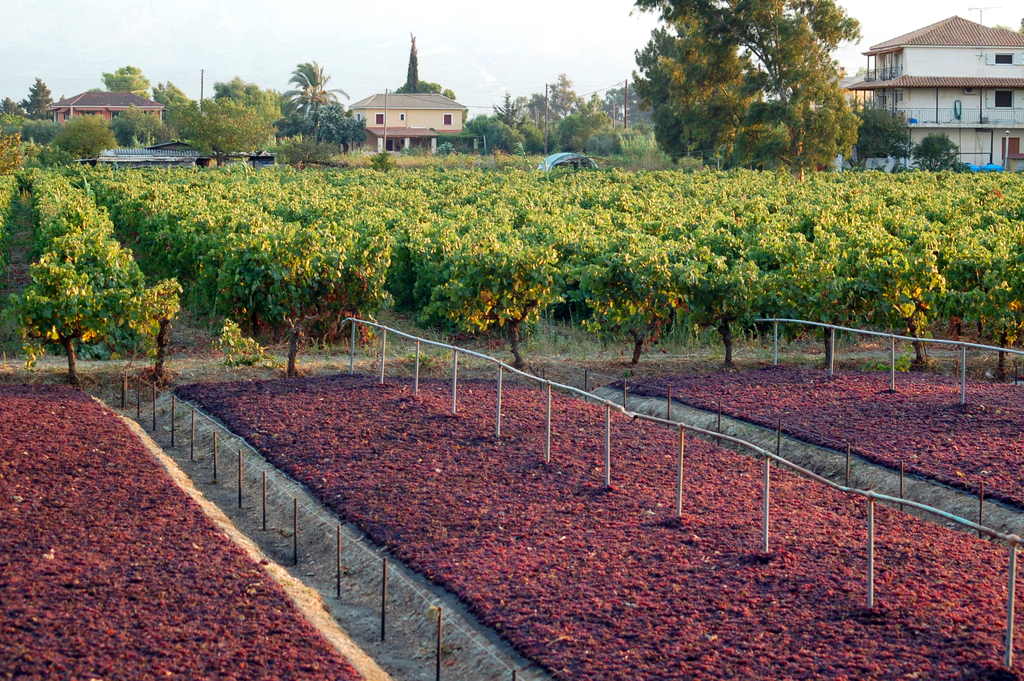
Agriculture in Greece, including forestry and fishing, contributes approximately 3.8% of the national GDP and employs about 12% of the labor force, making it a significant sector, especially for rural economies and employment. The country's diverse climate and topography allow for a variety of agricultural products.
Key agricultural products include:
- Olives and Olive Oil**: Greece is one of the world's largest producers and exporters of olive oil, a cornerstone of its agricultural identity and cuisine.
- Fruits and Vegetables**: A wide range is cultivated, including tomatoes, cucumbers, oranges, lemons, peaches, and watermelons. Figs are also a notable product.
- Cotton**: Greece is the largest cotton producer in the European Union.
- Tobacco**: Historically an important cash crop, though production has declined.
- Grains**: Wheat and maize are grown, but Greece is a net importer of grains.
- Pistachios and Almonds**: Greece is a significant EU producer of pistachios and almonds.
- Wine**: Viticulture is widespread, with many indigenous grape varieties producing distinctive wines.
- Dairy products**: Feta cheese is a famous Greek dairy product with Protected Designation of Origin (PDO) status.
- Fisheries and Aquaculture**: With its long coastline and many islands, fishing is important, and aquaculture (fish farming) has grown significantly.
The structure of Greek farming is characterized by small, often family-owned farms, which can lead to challenges in terms of efficiency and modernization. The EU's Common Agricultural Policy (CAP) has been a major influence, providing subsidies and support but also driving structural changes. Issues related to rural development include an aging farming population, the need for investment in modern techniques, water management (especially in the face of climate change), and promoting sustainable farming practices to protect biodiversity and soil health. Organic farming is a growing niche.
9.4. Maritime Industry
The maritime industry has been a cornerstone of the Greek economy and culture since antiquity. Today, Greece controls the largest merchant fleet in the world, accounting for approximately 18% of global deadweight tonnage and about 50% of the EU's fleet. The Greek-owned fleet ranks first globally in tankers and dry bulk carriers, and is also significant in container ships. This industry is a vital source of foreign exchange, contributing around 5% to the GDP and employing about 160,000 people.
The modern Greek maritime industry was largely re-established after World War II, with Greek shipowners acquiring surplus ships sold by the U.S. government through the Ship Sales Act. Influential shipping magnates like Aristotle Onassis and Stavros Niarchos played a key role in its expansion during the mid-20th century. Piraeus, the port of Athens, is one of the largest passenger ports in Europe and a major container hub, significantly expanded through foreign investment in recent years.
The industry encompasses not only ship ownership and operation but also related services such as shipbuilding, ship repair (with several major shipyards around Piraeus), marine insurance, and financial services. Greece has also become a leader in the construction and maintenance of luxury yachts.
Labor conditions in the maritime sector are governed by international conventions (e.g., Maritime Labour Convention) and national laws. Challenges include ensuring fair wages, safety standards, and addressing the demanding nature of seafaring work. Environmental regulations are increasingly stringent, with a focus on reducing emissions (sulfur cap, decarbonization efforts), preventing pollution from ships (e.g., ballast water management), and promoting greener shipping technologies, in line with International Maritime Organization (IMO) and EU targets. The industry's global nature means it is highly susceptible to international trade fluctuations and geopolitical events.
9.5. Tourism
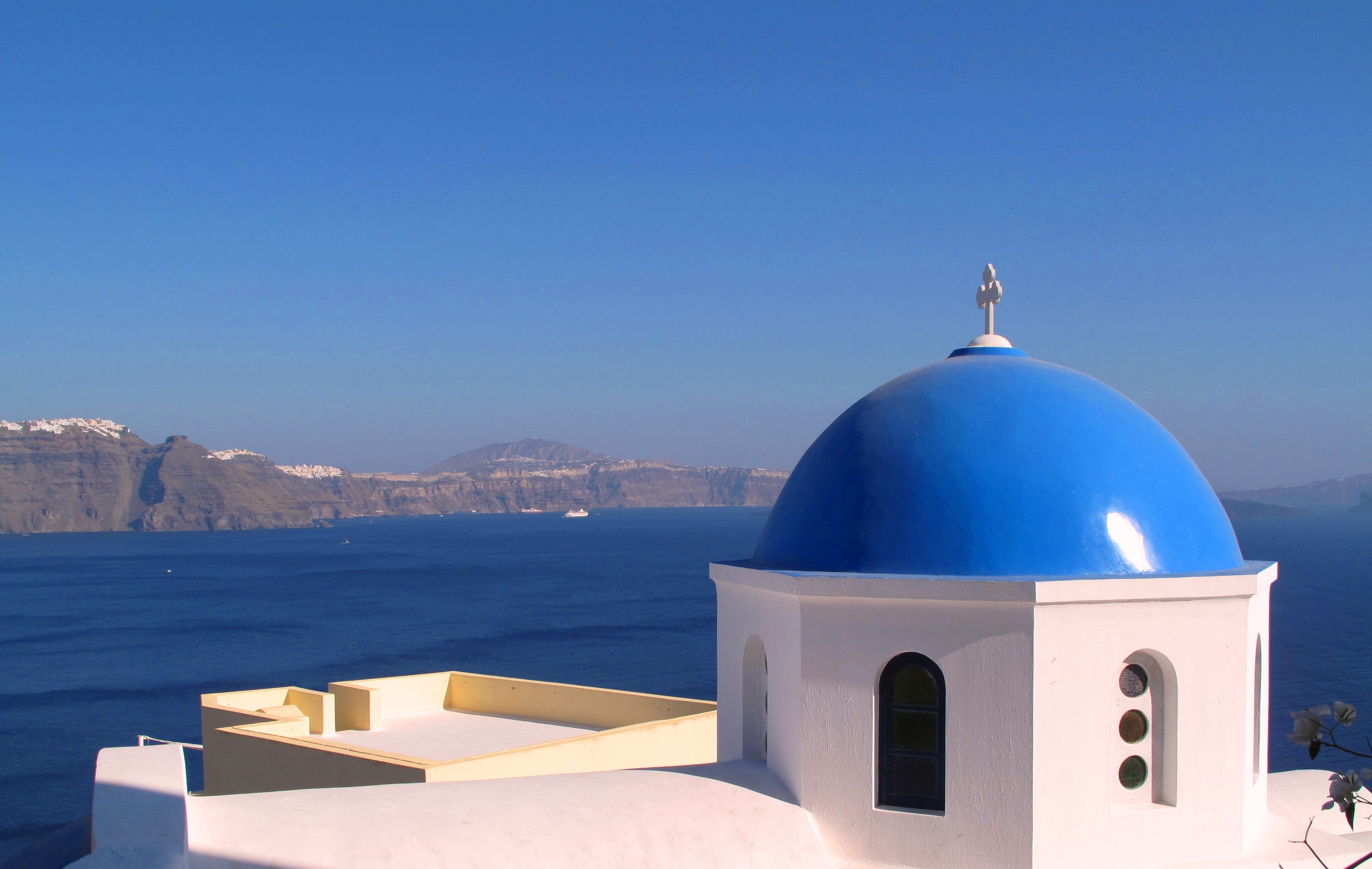
Tourism in Greece is a vital sector of the national economy and one of its most important industries, contributing significantly to the Gross Domestic Product (GDP) - estimated at around 21% in 2018 when direct and indirect effects are considered - and providing substantial employment. In 2023, Greece attracted approximately 33 million international tourists, making it the 9th most visited country in the world.
The country's appeal lies in its rich cultural heritage, numerous archaeological sites, diverse landscapes, extensive coastline, and hundreds of islands with beautiful beaches. Major destinations include:
- Historical Sites**: Athens (with the Acropolis and Parthenon), Olympia (birthplace of the Olympic Games), Delphi, Mycenae, Epidaurus, Knossos (Crete), and medieval towns like Rhodes and Mystras.
- Islands**: The Cyclades (e.g., Santorini, Mykonos, Paros, Naxos), Crete, the Dodecanese (e.g., Rhodes, Kos), the Ionian Islands (e.g., Corfu, Zakynthos, Kefalonia), and others, each offering unique experiences.
- Mainland Destinations**: Regions like the Peloponnese, Halkidiki, and Epirus offer diverse attractions from beaches to mountains and traditional villages.
The majority of visitors come from other European countries, with the United Kingdom and Germany being key source markets. The most visited region is typically Central Macedonia, followed by Attica (Athens) and the South Aegean islands.
The Greek government and tourism industry focus on extending the tourist season, diversifying the tourism product (e.g., promoting cultural, religious, medical, and eco-tourism), and improving infrastructure. Policies increasingly emphasize sustainable tourism to mitigate environmental impact, preserve cultural heritage, and ensure benefits for local communities. Challenges include managing overtourism in popular spots, water scarcity, waste management, and adapting to climate change. The industry's revenue is crucial for foreign exchange earnings and overall economic stability. Greece has 19 UNESCO World Heritage Sites, which are major attractions.
9.6. Energy
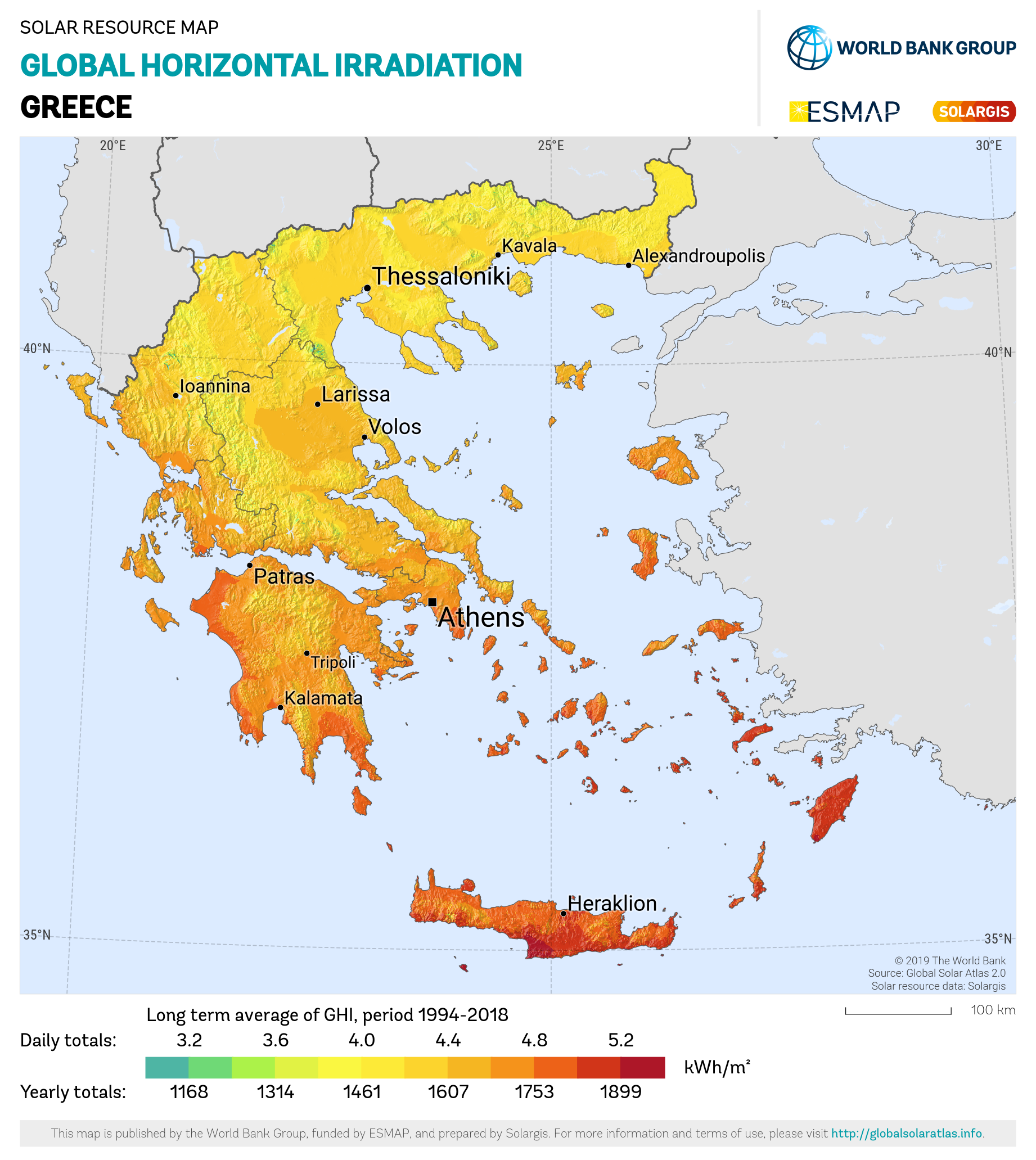
Greece's energy sector has been undergoing a significant transition, moving away from fossil fuels towards renewable energy sources, in line with EU targets and environmental considerations.
- Energy Production and Consumption**: Historically, Greece relied heavily on imported fossil fuels (oil and natural gas) and domestically mined lignite (a type of brown coal) for electricity generation. Lignite, while abundant, is a major source of greenhouse gas emissions, and Greece is phasing out its use.
- Electricity Generation**: The state-owned Public Power Corporation (PPC, or ΔΕΗ - DEI) has traditionally dominated electricity production, supplying about 75% of electricity in 2021. However, the market has been liberalized, with independent power producers playing an increasing role.
- Renewable Energy Sources (RES)**: Greece has made substantial progress in RES. In 2022, renewables accounted for 46% of Greece's electricity generation, a significant increase from 11% in 2011. Wind power contributed 22%, solar power (photovoltaics) 14%, and hydropower 9%. The country has high potential for solar and wind energy.
- Natural Gas**: Plays a crucial role, accounting for 38% of electricity generation in 2022. Greece imports natural gas, partly via pipelines and LNG terminals, and is developing into a regional gas hub.
- Energy Policy**: Focuses on enhancing energy security, diversifying sources, promoting energy efficiency, and meeting climate goals. This includes expanding interconnections with neighboring countries, upgrading the electricity grid to accommodate more renewables, and promoting energy storage solutions. Greece does not have any nuclear power plants.
- Environmental Considerations**: The shift to renewables is driven by the need to reduce carbon emissions and combat climate change. The phase-out of lignite plants is a key component of this strategy, though it presents socio-economic challenges for regions dependent on mining. Sustainable energy development aims to balance energy needs with environmental protection.
The energy sector is critical for economic development, and its transformation towards a greener and more sustainable model is a national priority, involving significant investment and policy efforts.
9.7. Government Debt Crisis and Economic Reforms
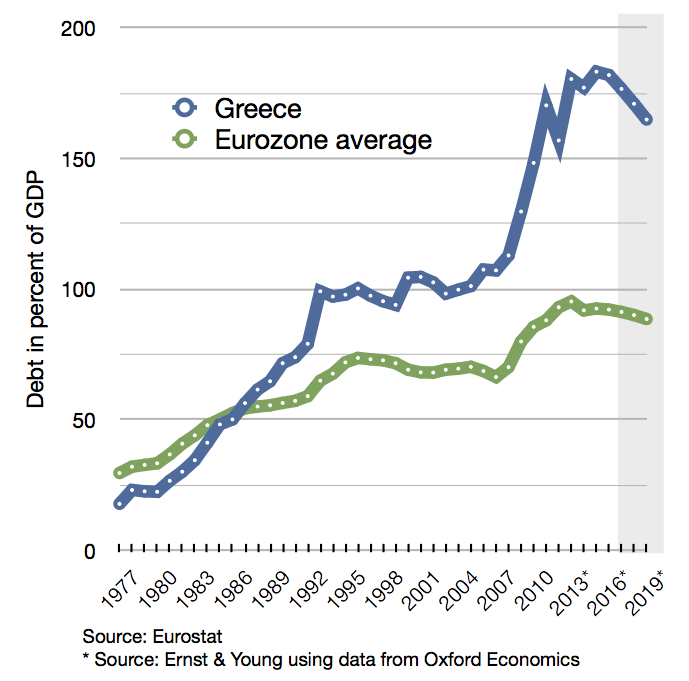
The Greek government-debt crisis, which began in late 2009, was a period of profound economic and social turmoil for Greece. Its causes were multifaceted, including years of high structural budget deficits, significant tax evasion, inaccurate reporting of official economic statistics (which were revealed to be considerably worse than previously stated), and the impact of the global Great Recession of 2007-2008. The crisis was exacerbated by Greece's membership in the Eurozone, which meant it could not devalue its currency to regain competitiveness.
As Greece's borrowing costs soared and a sovereign default loomed, the country received three international bailout packages from the "Troika" - the European Commission, the European Central Bank (ECB), and the International Monetary Fund (IMF) - starting in May 2010. These bailouts, totaling hundreds of billions of euros, came with stringent conditions requiring harsh austerity measures. These included deep cuts in public spending (salaries, pensions), tax increases, and structural reforms aimed at liberalizing the economy, privatizing state assets, and improving fiscal management.
The societal impacts of the crisis and austerity were severe:
- A prolonged and deep recession, with GDP contracting by approximately 25% between 2009 and 2015.
- A surge in unemployment, reaching over 27% at its peak, with youth unemployment exceeding 50%.
- Significant declines in wages and pensions, leading to a sharp drop in living standards and an increase in poverty and social exclusion, particularly affecting vulnerable groups.
- Widespread social unrest, including numerous protests and strikes against austerity policies.
- A political upheaval, with the traditional two-party system collapsing and new political forces emerging.
Economic reforms focused on fiscal consolidation, improving tax collection, reforming the public administration, liberalizing labor markets, and privatizing state-owned enterprises. While Greece achieved a primary budget surplus (budget balance before debt interest payments) in 2013 and returned to modest growth in 2014, the path to recovery was long and arduous. The IMF later admitted that it had underestimated the negative impact of austerity on economic growth.
The bailout programs officially ended in August 2018, though Greece remained under enhanced surveillance by European institutions. The economy has since shown signs of recovery, with growth returning and unemployment gradually declining. However, high public debt remains a challenge, and the social scars of the crisis continue to affect Greek society. The crisis highlighted systemic weaknesses in both the Greek economy and the architecture of the Eurozone, leading to broader debates about fiscal governance and solidarity within the EU.
10. Society
Greek society is a blend of ancient traditions and modern European influences. It has undergone significant transformations in recent decades, marked by demographic shifts, urbanization, and evolving social norms. The Greek Orthodox Church maintains a strong influence on cultural life, though society is becoming increasingly secular. Family ties remain central. Contemporary Greece faces challenges related to economic recovery, social cohesion, the integration of migrants, and addressing human rights issues, particularly for minorities and vulnerable groups. There is an ongoing public discourse on national identity, modernization, and Greece's role in Europe and the world.
10.1. Demographics
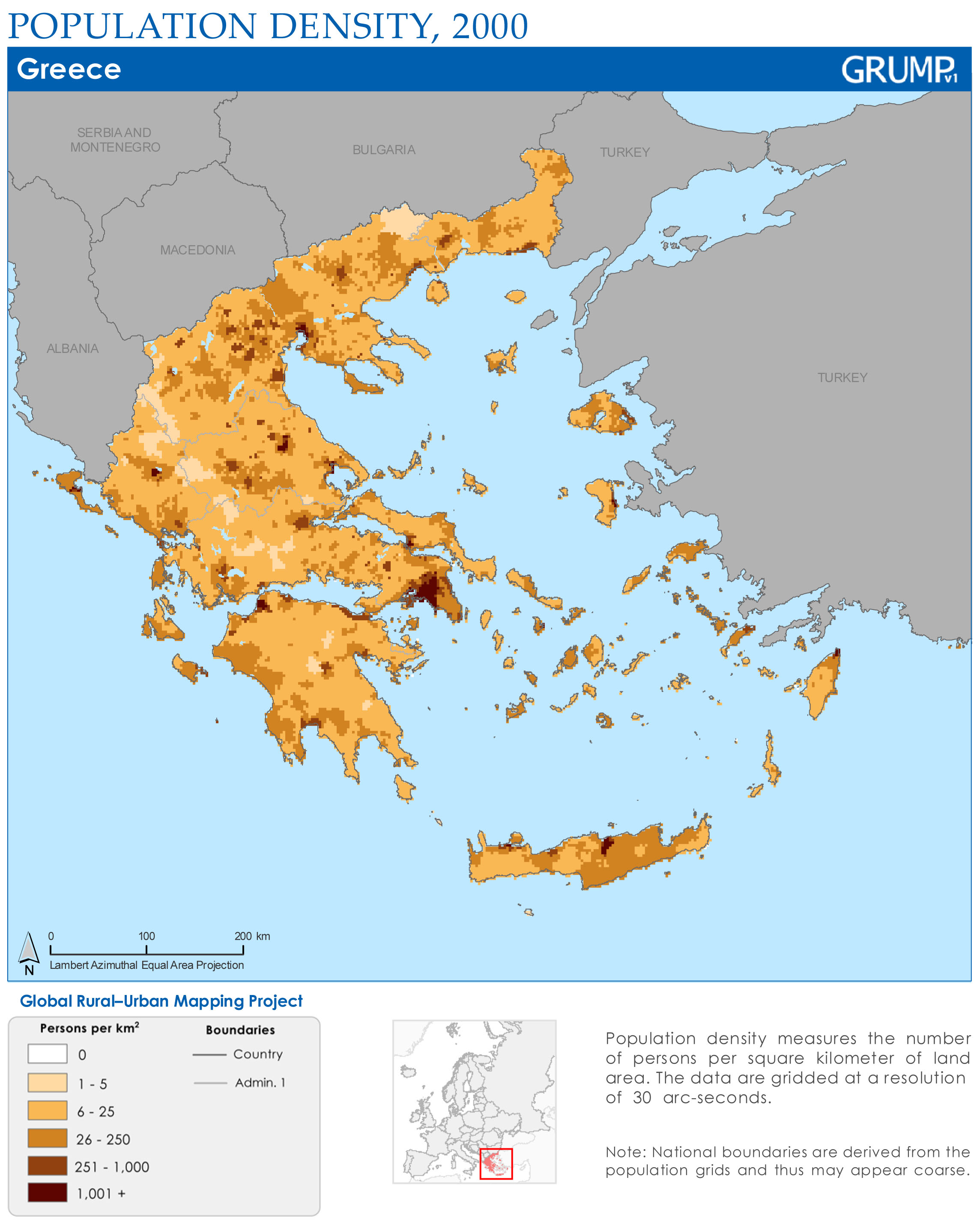
As of 2022, Eurostat estimated the population of Greece at approximately 10.6 million. Greek society has experienced significant demographic shifts in recent decades, aligning with broader European trends of declining fertility rates and an aging population. The birth rate in 2016 was 8.5 per 1,000 inhabitants, a substantial decrease from 14.5 per 1,000 in 1981. Conversely, the mortality rate increased from 8.9 per 1,000 in 1981 to 11.2 per 1,000 in 2016.
The total fertility rate of around 1.4 children per woman is well below the replacement rate of 2.1 and is among the lowest in the world. This has contributed to Greece having one of the oldest populations globally, with a median age of 44.2 years. In 2001, 17% of the population was 65 years or older; by 2016, this proportion had risen to 21%. During the same period, the proportion of those aged 14 and younger declined from 15% to slightly below 14%.
Marriage rates have also declined, from nearly 71 per 1,000 inhabitants in 1981 to 51 in 2004, while divorce rates have increased. These trends have resulted in smaller and older average households. The economic crisis that began in the late 2000s exacerbated these demographic challenges, leading to the emigration of an estimated 350,000 to 450,000 Greeks, predominantly young adults, seeking better economic opportunities abroad. This "brain drain" poses a further challenge to the country's long-term demographic and economic outlook. An aging population also places increasing strain on social security and healthcare systems.
10.1.1. Major Cities
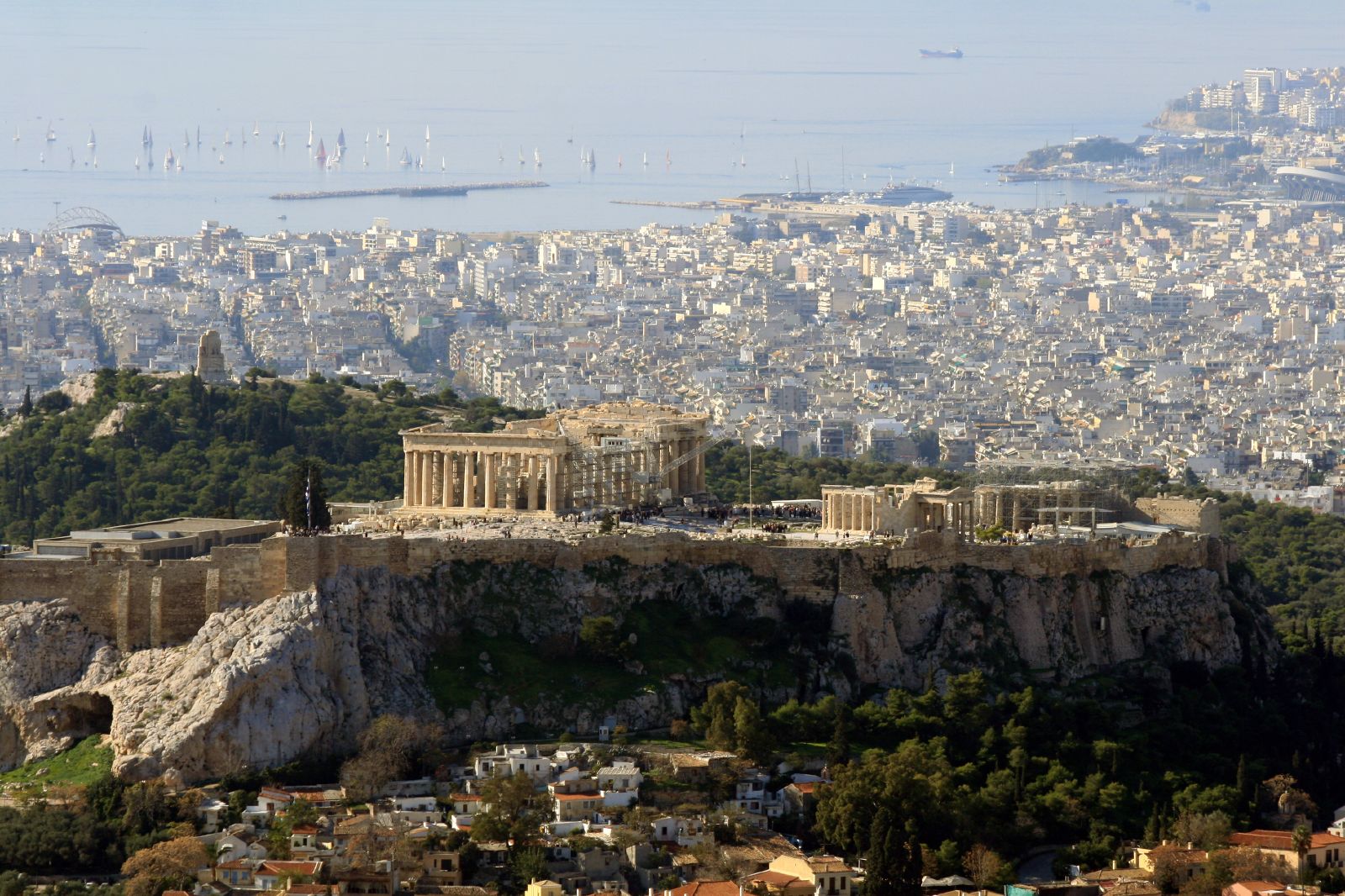
Almost two-thirds of the Greek population lives in urban areas. The largest and most influential metropolitan centers are:
- Athens**: The capital city, with a metropolitan population of approximately 3.74 million people according to the 2021 census. Athens is the historical, cultural, political, and economic heart of Greece, home to iconic landmarks like the Acropolis and a vibrant modern urban life.
- Thessaloniki**: The second-largest city and the capital of the Central Macedonia region, with a metropolitan population of around 1.09 million (2021). Thessaloniki is a major port, industrial center, and cultural hub, often referred to as symprotévousa (co-capital). It has a rich history spanning Roman, Byzantine, and Ottoman periods.
Other prominent cities with urban populations exceeding 100,000 inhabitants include:
- Patras**: Located in the Peloponnese, it is a major port and university city. (Pop. approx. 177,000 in the city proper, 2021)
- Heraklion**: The largest city and administrative capital of Crete, a significant port and tourist destination. (Pop. approx. 163,000 in the city proper, 2021)
- Larissa**: A major agricultural and commercial center in the Thessaly region. (Pop. approx. 148,000 in the city proper, 2021)
- Piraeus**: Part of the Athens urban agglomeration and one of Europe's largest passenger ports. (Pop. approx. 168,000 in the city proper, 2021)
- Volos**: A port city in Thessaly, located at the foot of Mount Pelion. (Pop. approx. 85,000 in the city proper, 2021)
- Ioannina**: The largest city in the Epirus region, situated by Lake Pamvotida. (Pop. approx. 65,000 in the city proper, 2021)
- Chania**: A historic port city on the island of Crete. (Pop. approx. 54,000 in the city proper, 2021)
- Chalcis**: The chief town of the island of Euboea, known for the Euripus Strait. (Pop. approx. 59,000 in the city proper, 2021)
Urbanization trends have led to challenges in major cities, including traffic congestion, housing availability, and environmental pressures. However, cities also serve as centers for innovation, education, and cultural dynamism, driving much of the country's economic activity and social development. Social infrastructure in these urban centers varies, with ongoing efforts to improve public services and quality of life.
10.2. Languages

Greek is the official language of Greece and is spoken by the vast majority of the population. Modern Greek evolved from Koine Greek, which itself developed from Ancient Greek dialects, primarily Attic Greek. The Greek language has a documented history spanning over 3,400 years, making it one of the oldest attested Indo-European languages. Standard Modern Greek, based largely on southern dialects, is used in education, administration, and media.
Several distinct Greek dialects and linguistic varieties exist:
- Pontic Greek**: Spoken by Greeks originating from the Pontus region of Asia Minor, many of whom resettled in Greece after the Greek genocide and the 1919-1922 population exchange.
- Cappadocian Greek**: Also brought by refugees from Asia Minor, it is now highly endangered and spoken by very few.
- Tsakonian**: A distinct Greek language derived from Doric Greek (unlike most Modern Greek dialects which come from Koine/Attic), still spoken in a few villages in the southeastern Peloponnese.
- Sarakatsanika**: An archaic dialect spoken by the Sarakatsani, traditionally transhumant shepherds in northern Greece.
Minority languages are also present in Greece:
- Turkish**: Spoken by the Muslim minority in Thrace, which constitutes approximately 0.95% of the national population.
- Bulgarian (Pomak dialect)**: Spoken by the Pomaks, part of the Muslim minority in Thrace.
- Romani**: Spoken by Roma communities (both Christian and Muslim) throughout the country. The Council of Europe estimates around 265,000 Roma live in Greece.
- Arvanitika**: An Albanian dialect spoken by the Arvanites, a group mostly located in rural areas around Attica and other parts of Greece. Most Arvanites identify ethnically as Greek and are bilingual. The language is endangered.
- Aromanian (Vlach)** and **Megleno-Romanian**: Eastern Romance languages spoken by small communities of Aromanians and Megleno-Romanians, primarily in mountainous regions of northern and central Greece. These languages are also endangered.
- Slavic dialects/Macedonian**: Spoken by some groups near the northern borders, particularly in Greek Macedonia. The speakers' ethnic identification varies, with many identifying as Greek.
- Ladino (Judeo-Spanish)**: Traditionally spoken by the Sephardic Jewish community, now maintained by a very small number of speakers.
The Greek state officially recognizes only Greek as the national language. The status and rights of minority language speakers have been a subject of discussion and, at times, contention, particularly concerning education and public use. Assimilation into the Greek-speaking majority has significantly reduced the number of speakers of many traditional minority languages over the 20th and 21st centuries.
10.3. Religion
The Constitution of Greece recognizes the Eastern Orthodox Christianity as the 'prevailing' religion of the country, while guaranteeing freedom of religion for all citizens. The Greek Orthodox Church plays a prominent role in public life and national identity. According to a 2017 survey, 90% of citizens identify as Eastern Orthodox. The administration of most of Greece falls under the autocephalous Church of Greece, while Crete, the Dodecanese, and Mount Athos are under the direct jurisdiction of the Ecumenical Patriarchate of Constantinople.
Religious minorities in Greece include:
- Muslims**: Constituting about 2% of the population. The recognized Muslim minority of Greece, numbering around 100,000, is located primarily in Western Thrace and consists of ethnic Turks, Pomaks, and Romani Muslims. There is also a significant population of Muslim immigrants from various countries, particularly Albania, though many Albanian immigrants are secular.
- Catholics**: The Roman Catholic community is estimated at around 250,000, of whom about 50,000 are Greek citizens. This includes both Latin Rite Catholics and the smaller Greek Byzantine Catholic Church, which recognizes papal primacy but maintains the Byzantine Rite liturgy. Catholics, along with other religions, form 1% of the population.
- Protestants**: Various denominations, including the Greek Evangelical Church and Free Evangelical Churches, number around 30,000 adherents. Pentecostal churches and Assemblies of God also have a presence. Other Christians (excluding Catholics) constitute 3% of the population.
- Judaism**: The Jewish community has a history in Greece spanning over 2,000 years, including the ancient Romaniote Jews and the historically significant Sephardic community of Thessaloniki. The community was decimated during the Holocaust and now numbers around 5,500.
- Old Calendarists**: These are traditionalist Orthodox Christians who follow the Julian calendar for liturgical purposes and are not in communion with the official Church of Greece. They are estimated to have around 500,000 followers.
- Jehovah's Witnesses**: Report around 28,000 active members.
- Hellenic Polytheism (Hellenism)**: Ancient Greek religious practices have seen a modern revival. Hellenism was legally recognized as an actively practiced religion in Greece in 2017. Estimates suggest around 2,000 active practitioners and a larger number of sympathizers.
- No religion**: Approximately 4% of the population identifies as having no religion.
While religious freedom is constitutionally guaranteed, the Greek Orthodox Church enjoys certain privileges, and issues related to the rights of religious minorities, such as the construction of places of worship (e.g., mosques in Athens) and religious education in schools, have sometimes been points of discussion. Interfaith relations are generally peaceful, though societal attitudes can vary.
10.4. Education
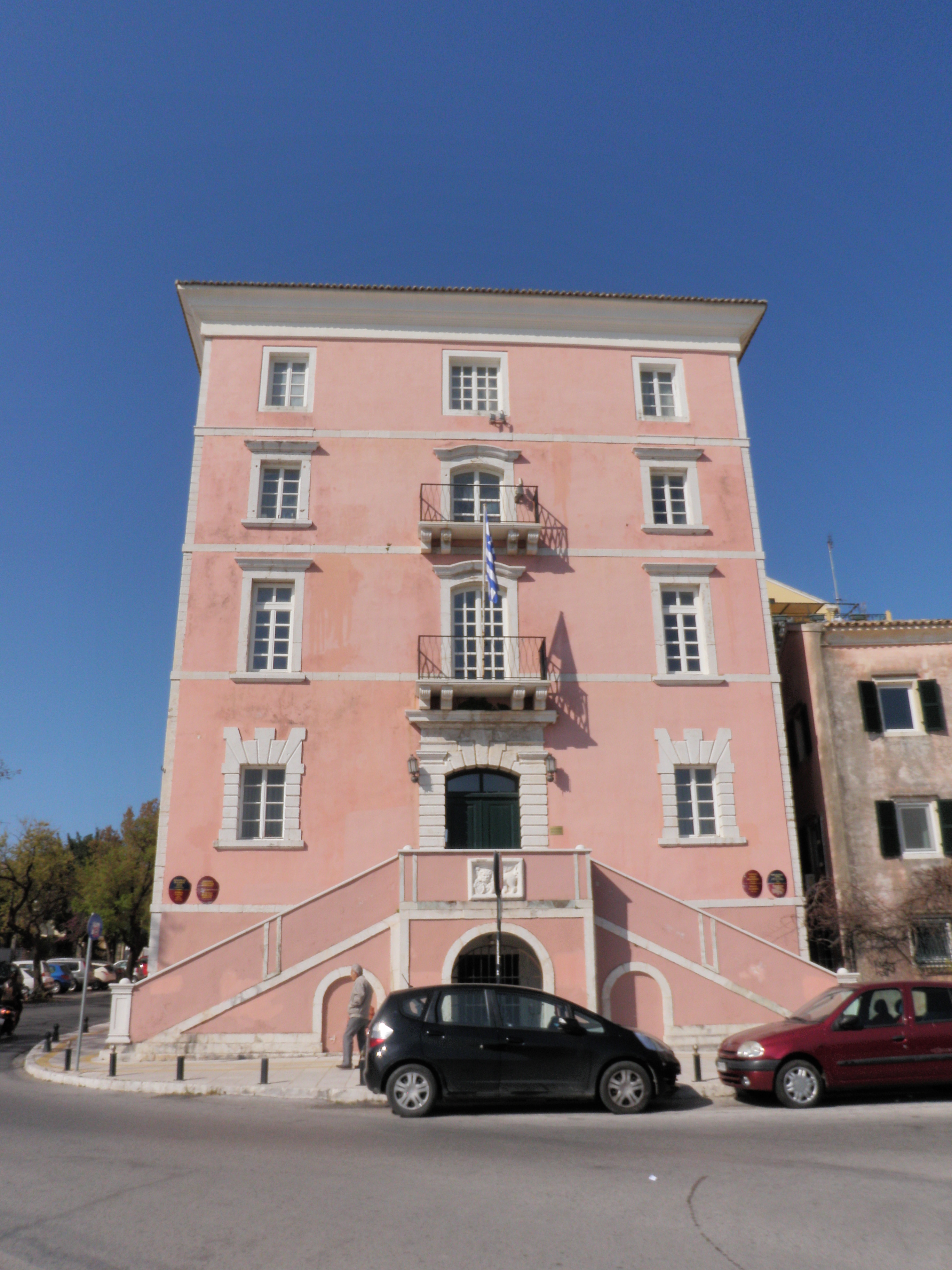
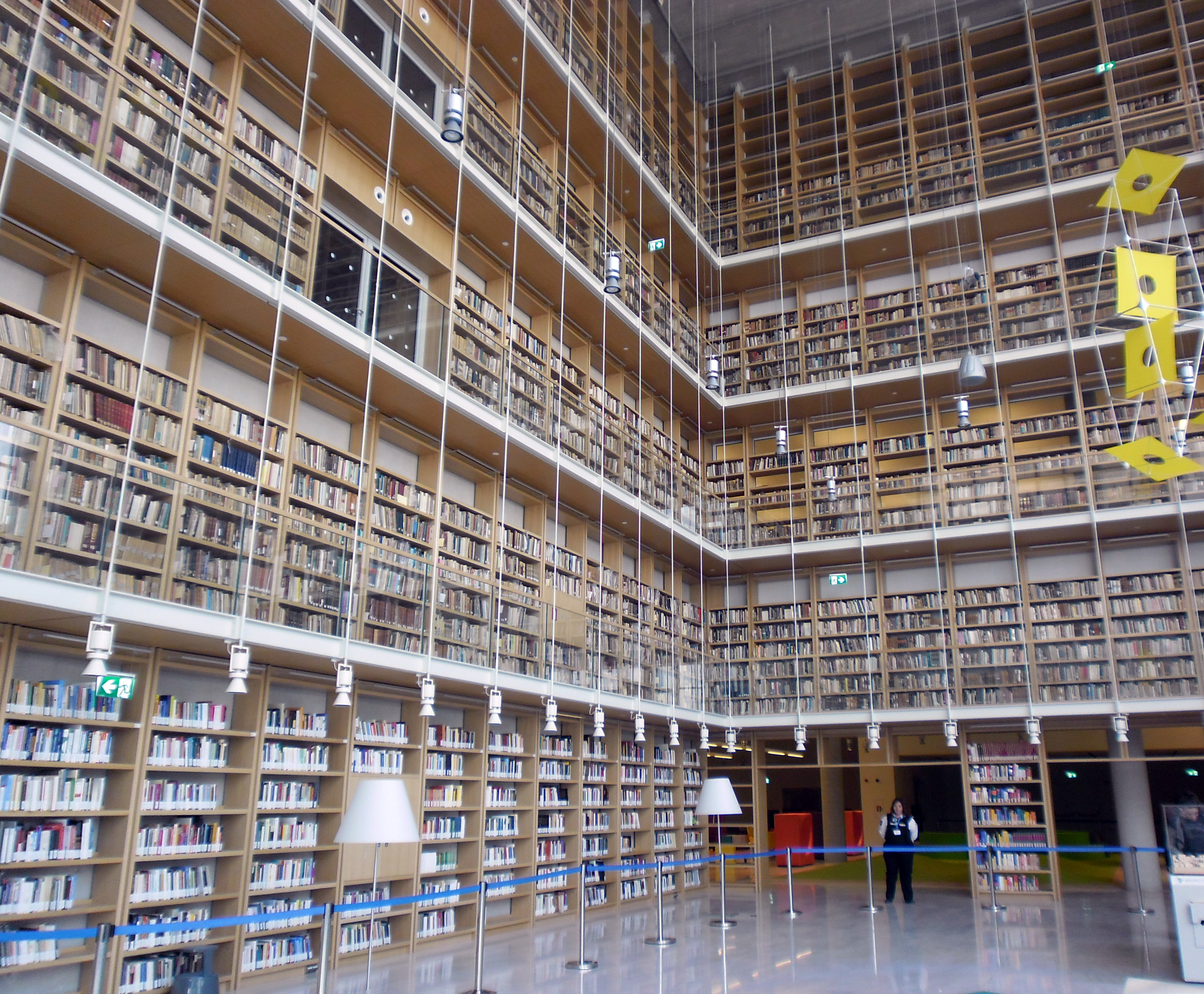
Greeks have a long tradition of valuing paideia (education), upheld as one of the highest societal values since antiquity. The University of Constantinople, founded in the 5th century, was a significant center of learning.
Compulsory education in Greece comprises primary schools (Δημοτικό ΣχολείοDhee-mo-tee-KO skho-LEE-oGreek, Modern) and gymnasium (ΓυμνάσιοYeem-NAH-see-oGreek, Modern). Nursery schools (Παιδικός σταθμόςPe-dhee-KOS stath-MOSGreek, Modern) are popular but not compulsory. Kindergartens (ΝηπιαγωγείοNee-pee-ah-go-YEE-oGreek, Modern) are compulsory for children above four years of age. Children start primary school at age six and attend for six years. Attendance at gymnasia begins at age 12 and lasts for three years.
Post-compulsory secondary education consists of two main types:
- Unified Upper Secondary Schools (Γενικό ΛύκειοYe-nee-KO LEE-kee-oGreek, Modern), offering a general academic curriculum preparing students for higher education.
- Technical-Vocational Educational Schools (Επαγγελματικό ΛύκειοEh-pang-gel-mah-tee-KO LEE-kee-oGreek, Modern, EPAL), providing vocational training alongside general education.
Vocational Training Institutes (Ινστιτούτα Επαγγελματικής ΚατάρτισηςEen-stee-TOO-tah eh-pang-gel-mah-tee-KEES kah-TAR-tee-seesGreek, Modern, IEK) offer formal but unclassified post-secondary vocational training.
Public higher education is divided into:
- University Sector**: Includes Universities, Polytechnics, Fine Arts Schools, and the Hellenic Open University. These institutions offer undergraduate and postgraduate degrees. Admission to most undergraduate programs is based on performance in national-level university entrance exams (Panhellenic Exams) taken after completing Lykeio.
- Technological Sector**: Formerly Technological Education Institutions (TEI), many of which have been merged into universities or upgraded.
The state provides education free of charge at all levels, including higher education. There are also private schools and universities (though private universities offering recognized Greek degrees is a more recent and evolving area). Special kindergartens, primary, and secondary schools cater to students with special needs. Specialist schools offer focused education in areas like music, theology, and physical education.
According to OECD data, 72% of adults aged 25-64 in Greece have completed upper secondary education. Access to education is generally widespread, but the system faces challenges, including the need for modernization, improving quality, and linking education more effectively with labor market needs. The economic crisis of the 2010s also impacted educational funding and resources.
10.5. Healthcare
Greece has a universal health care system, which is a mixed system combining a National Health Service (ESY - Εθνικό Σύστημα ΥγείαςEth-nee-KO SEES-tee-mah ee-YEE-asGreek, Modern) with elements of social health insurance. The ESY provides public healthcare services through a network of hospitals, health centers, and rural clinics. Social insurance funds, primarily EOPYY (National Organization for the Provision of Health Services), cover a large portion of the population for medical services, pharmaceuticals, and diagnostics from both public and private providers.
In a 2000 World Health Organization report, Greece's health system was ranked 14th in overall performance out of 191 countries surveyed. However, the system has faced significant challenges, particularly during the economic crisis of the 2010s, which led to budget cuts, staff shortages, and reduced access to services for some. Despite this, Greece maintains one of the highest doctor-to-population ratios among OECD countries.
Key health indicators:
- Life expectancy**: Was 81.1 years in 2015, slightly above the EU average. The island of Icaria is noted as a "Blue Zone" for its high percentage of nonagenarians.
- Infant mortality**: Was 3.6 deaths per 1,000 live births in 2008, below the OECD average.
- Healthcare expenditure**: Was 8.4% of GDP in 2015, compared to the EU average of 9.5%, having declined from 9.6% in 2007 due to austerity.
Challenges in the healthcare system include regional disparities in service provision, long waiting times for certain procedures, issues with efficiency and management in public hospitals, and high out-of-pocket payments for patients. Reforms have aimed to improve efficiency, primary care access, and financial sustainability. Public health concerns include high rates of smoking (Greece had the largest percentage of adult daily smokers in the OECD in a 2011 report) and an obesity rate of 18%, which is above the OECD average. Ensuring equitable access to quality healthcare for all residents, including vulnerable populations and those in remote island areas, remains a key social equity issue.
10.6. Migration
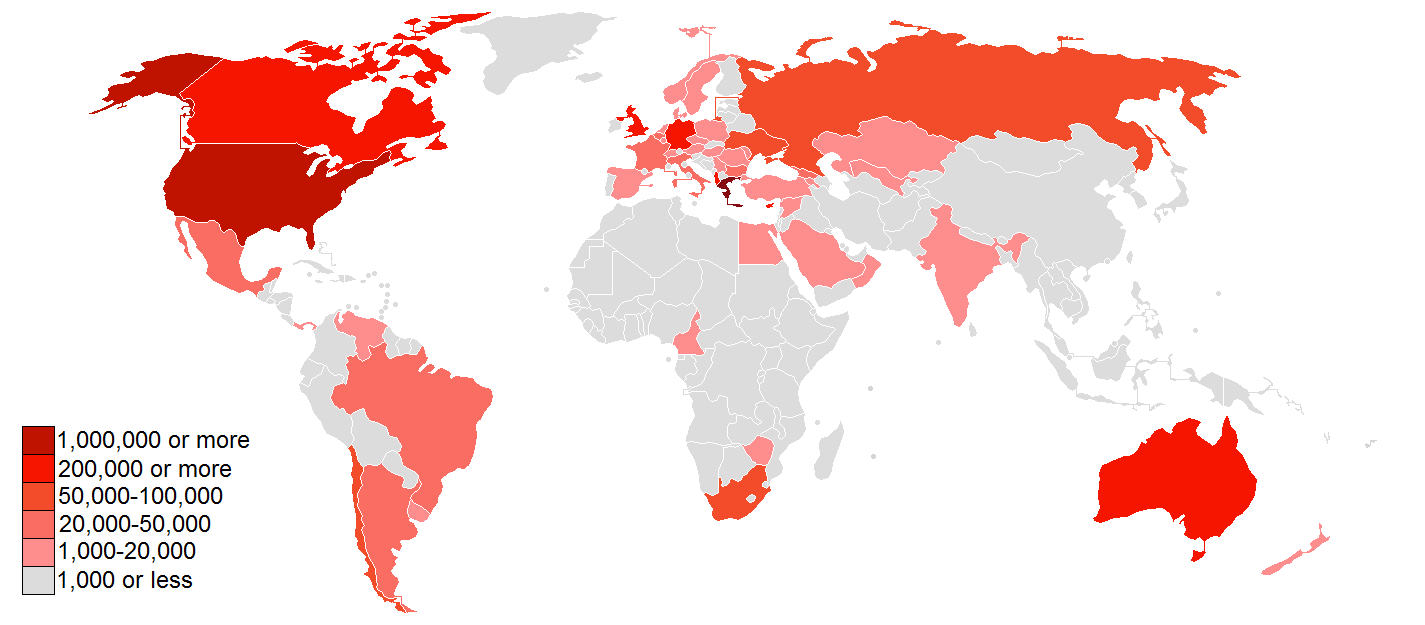
Migration has significantly shaped Greek society, both through emigration of Greeks and immigration into the country.
- Emigration**: Throughout the 19th and 20th centuries, millions of Greeks migrated, primarily to the United States, Australia, Canada, and Germany, creating a large and influential diaspora. This outflow was driven by economic hardship, political instability, and conflict. A new wave of emigration, particularly of young, educated individuals ("brain drain"), occurred during the economic crisis of the 2010s, with an estimated 350,000-450,000 Greeks leaving the country.
- Immigration**: Net migration to Greece turned positive from the 1970s. Initially, this involved returning Greek migrants and ethnic Greeks (e.g., Pontic Greeks) from countries of the former Soviet Bloc and Turkey. In the 1990s and 2000s, Greece became a destination for economic migrants, largely from neighboring Balkan countries (especially Albania), Eastern Europe, Asia, and Africa. The 2011 census recorded approximately 9.9 million Greek citizens and around 700,000 non-citizens, with Albanians forming the largest group.
- Refugees and Asylum Seekers**: Due to its geographical location, Greece has been a major entry point into the European Union for refugees and asylum seekers, particularly from the Middle East, Asia, and Africa. The Syrian civil war led to a significant increase in arrivals by sea in 2015, with over 850,000 people reaching Greece. This placed immense strain on Greece's reception and asylum systems. Many use Greece as a transit country to Northern Europe. The situation has led to humanitarian concerns regarding conditions in reception centers on the islands and the mainland, the rights of asylum seekers, and the social integration of those granted protection.
- Migration Policies and Impacts**: Greek migration policies have evolved, influenced by EU directives and national concerns. Efforts focus on border management, asylum processing, and integration. The influx of migrants and refugees has had complex social and economic impacts. While immigrants contribute to the labor force, particularly in sectors like agriculture and construction, challenges exist in terms of social integration, access to services, and combating xenophobia and discrimination. The situation of refugees and asylum seekers, particularly on the Aegean islands, has drawn international attention regarding human rights and living conditions.
10.7. Public Order and Human Rights
The general public safety situation in Greece is comparable to other Southern European countries. Crime rates for common offenses like theft and burglary exist, particularly in urban and tourist areas. Organized crime is also a concern. The Hellenic Police is the national police force responsible for maintaining public order and combating crime. The justice system, while independent, faces challenges in terms of efficiency and delays in processing cases.
- Human rights** are constitutionally guaranteed, and Greece is a signatory to major international human rights treaties. However, several issues have been highlighted by national and international organizations:
- Rights of Migrants, Refugees, and Asylum Seekers**: This is a significant area of concern. Issues include conditions in reception and detention centers, access to fair and efficient asylum procedures, reports of pushbacks at land and sea borders (which the government denies), and the integration of recognized refugees. Vulnerable groups like unaccompanied minors require special attention.
- Rights of Minorities**: The Muslim minority in Western Thrace is officially recognized, but other ethnic, linguistic, or religious minorities sometimes face challenges related to recognition and the full enjoyment of their cultural rights. The Roma community often experiences discrimination and social exclusion, facing difficulties in access to housing, education, and employment.
- Police Conduct and Accountability**: There have been reports of police misconduct, including excessive use of force during demonstrations or against vulnerable individuals. Efforts towards democratic policing and strengthening accountability mechanisms are ongoing.
- Freedom of Expression and Media Freedom**: While generally respected, concerns have been raised by some organizations regarding pressures on journalists and media pluralism.
- LGBTQ+ Rights**: Significant progress has been made, culminating in the legalization of same-sex marriage and adoption in 2024. However, societal discrimination and hate speech against LGBTQ+ individuals persist.
- Domestic Violence and Gender Equality**: Domestic violence remains a serious issue, and efforts are underway to strengthen legal protections and support services for victims. Gender equality has advanced, but disparities persist in employment, pay, and political representation.
The Greek government collaborates with international bodies like the Council of Europe and UN agencies to address human rights challenges. Civil society organizations play a crucial role in monitoring human rights, providing legal aid, and advocating for vulnerable populations.
10.8. Media
The media landscape in Greece includes a variety of newspapers, television and radio broadcasters, and online news portals.
- Print Media**: Major national newspapers include dailies like Kathimerini, Ta Nea, To Vima, and Eleftherotypia (though some have faced closures or transitioned to online-only formats, especially after the economic crisis). There are also numerous regional newspapers and specialized publications. Newspaper circulation has declined with the rise of digital media.
- Broadcasting**:
- Television**: The state-owned Hellenic Broadcasting Corporation (ERT) operates several national television channels and radio stations. Private television channels, such as ANT1, Mega Channel, Star Channel, Skai TV, and Alpha TV, hold significant market shares and offer a mix of news, entertainment, and current affairs programming.
- Radio**: ERT operates public radio stations, and numerous private radio stations cater to diverse musical tastes and provide news and talk shows, both nationally and locally.
- Internet Media**: Online news portals, blogs, and social media platforms have become increasingly important sources of information and public discourse. Many traditional media outlets have strong online presences.
- Press Freedom**: The Greek constitution guarantees freedom of the press. However, Greece's ranking in international press freedom indices (e.g., by Reporters Without Borders) has fluctuated and sometimes been a cause for concern. Issues cited include political influence on media, precarious working conditions for journalists, lawsuits against journalists (SLAPPs), and challenges to media pluralism, particularly regarding media ownership concentration.
- Media Influence**: The media plays a significant role in shaping public opinion and influencing democratic processes. The relationship between media outlets, political parties, and business interests is often a subject of public debate. The economic crisis of the 2010s also impacted the media sector, leading to closures, staff cuts, and changes in ownership.
Efforts to ensure media independence, transparency in media ownership, and support for investigative journalism are considered important for a healthy democratic society.
11. Science and Technology
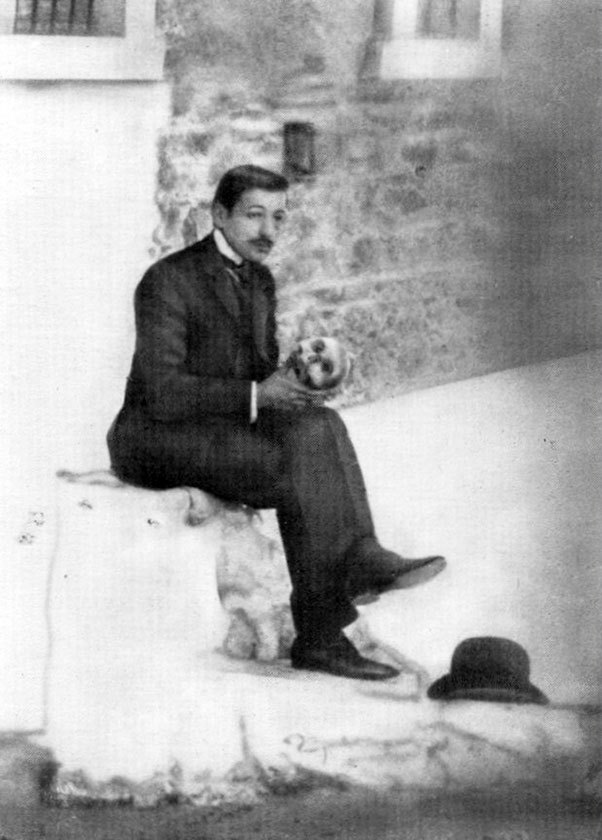
Greece has a long historical tradition in science and philosophy, dating back to antiquity. In modern times, the country has been working to develop its scientific research and technological capabilities. The General Secretariat for Research and Technology, under the Ministry of Development and Competitiveness (or relevant succeeding ministries), is responsible for designing, implementing, and supervising national research and technological policy.
In 2017, spending on research and development (R&D) in Greece reached a record high of 2.00 B EUR, equivalent to 1.1% of GDP. While this is below the EU average, it represents a significant increase. Greece was ranked 45th in the Global Innovation Index in 2024.
Key aspects of science and technology in Greece include:
- Research Institutions**: Greece has several major research institutions and universities active in various scientific fields. The National Centre of Scientific Research "Demokritos", founded in 1959, is the largest multidisciplinary research center in Greece, conducting research in areas like informatics, telecommunications, nuclear technology, biosciences, and materials science. Other important centers include the Foundation for Research & Technology - Hellas (FORTH) and various university research labs.
- Technology Parks and Incubators**: Several technology parks, such as the Science and Technology Park of Crete and the Patras Science Park, provide facilities and support for innovative companies and start-ups.
- Space Technology**: Greece has been a member of the European Space Agency (ESA) since 2005. The Hellenic National Space Committee coordinates space-related activities. Greece participates in ESA's telecommunication and technology activities and the Global Monitoring for Environment and Security (GMES/Copernicus) initiative.
- Human Capital**: Greece has one of the highest rates of tertiary education enrollment globally, and many Greeks are well-represented in academia worldwide. Greek scientific publications have shown a significant increase in research impact in recent years.
- Notable Scientists**: Modern Greek scientists have made significant contributions. Examples include Georgios Papanikolaou (inventor of the Pap test), mathematician Constantin Carathéodory, astronomer E. M. Antoniadi, and more contemporary figures like computer scientists Christos Papadimitriou and Joseph Sifakis (Turing Award winner), and physicist Dimitri Nanopoulos.
Challenges include securing adequate and sustained funding for R&D, reducing bureaucracy, fostering better links between academia and industry, and mitigating "brain drain" by creating more opportunities for skilled researchers and professionals within Greece. The social and ethical implications of technological advancements, particularly in areas like artificial intelligence and biotechnology, are also subjects of growing discussion.
12. Transport and Communications
Greece has developed extensive transport and communications networks, crucial for its mainland and numerous islands, facilitating economic activity, tourism, and social connectivity. These networks have seen significant modernization, particularly since the 1980s and in preparation for the 2004 Athens Olympics. Accessibility, sustainability, and regional development are key considerations in their ongoing improvement.
12.1. Road Transport
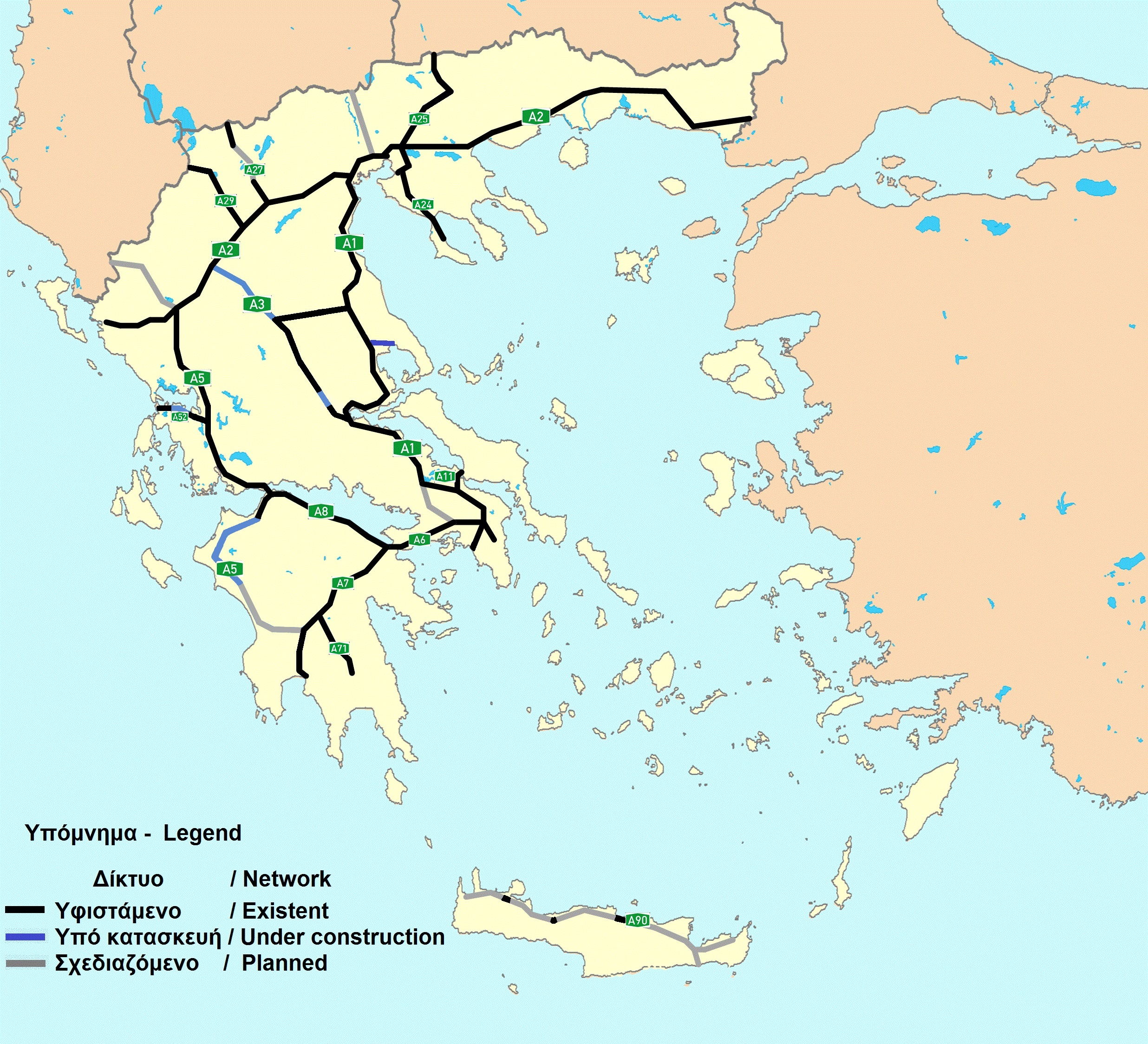
Greece's road system has been significantly upgraded in recent decades. As of 2020, the motorway network spanned approximately 1.4 K mile (2.32 K km), making it one of the most extensive in Southeastern Europe. Key motorways include:
- A2 (Egnatia Odos)**: A major east-west artery in northern Greece, connecting the port of Igoumenitsa on the Ionian Sea to the Turkish border at Kipoi.
- A1 (Athens-Thessaloniki-Evzonoi, AThE)**: The main north-south route along the eastern coastline of the mainland, connecting Athens, Thessaloniki, and the border with North Macedonia.
- A5 (Ionia Odos)**: Runs along the western coastline of mainland Greece.
- Attiki Odos (A6 and its branches)**: A modern toll motorway network serving the Athens metropolitan area.
The iconic Rio-Antirrio bridge, one of the world's longest multi-span cable-stayed bridges, connects the Peloponnese peninsula with mainland Greece, significantly improving accessibility. Major roads connect most towns and villages, though road quality can vary in more remote or mountainous areas.
Traffic volume is high in urban centers and on major tourist routes, especially during peak seasons. Road safety remains a concern, with efforts to improve infrastructure and enforcement. The environmental impact of road transport, including emissions and habitat fragmentation, is also an issue being addressed through measures like promoting public transport and cleaner vehicles.
12.2. Rail Transport
Rail transport in Greece plays a lesser role compared to many other European countries, but the network has undergone significant modernization and expansion. The state-owned Hellenic Railways Organisation (OSE) manages the infrastructure, while Hellenic Train (formerly TrainOSE, now owned by Italy's Ferrovie dello Stato Italiane) operates passenger and freight services.
The railway network has a total length of about 1.6 K mile (2.50 K km). Key developments include:
- Main Line Upgrades**: The main Athens-Thessaloniki line has been significantly upgraded, with electrification and double-tracking in many sections, allowing for faster and more reliable intercity services.
- Proastiakos (Suburban Rail)**: Commuter rail services operate around Athens, Thessaloniki, and Patras, connecting city centers with suburbs and nearby towns.
- New Lines**: Construction of a new double-track, standard-gauge railway line between Athens and Patras is ongoing, replacing the old metre-gauge Piraeus-Patras railway and opening in stages.
- International Connections**: Historically, international lines connected Greek cities with the rest of Europe, the Balkans, and Turkey. Some of these services have been intermittent due to economic or operational reasons but efforts are made to maintain or restore them.
Challenges for the rail sector include completing network modernization, improving service quality and frequency, and increasing freight transport. Sustainability is a focus, with electrification aiming to reduce the carbon footprint of rail travel. Rail transport is seen as crucial for connecting different regions, supporting economic activity, and offering an alternative to road transport.
12.3. Maritime Transport
Maritime transport is fundamental to Greece, given its extensive coastline, numerous islands, and prominent global shipping industry.
- Ports**: Greece has numerous ports serving various functions.
- Piraeus** (Athens): One of the largest passenger ports in Europe and a major container port in the Mediterranean. It's a critical hub for ferry services to the Aegean islands and international cruise ships.
- Thessaloniki**: A key port in northern Greece, handling significant freight and passenger traffic.
- Other important ports include Patras, Igoumenitsa (connecting to Italy), Heraklion (Crete), and Volos.
- Ferry Operations**: An extensive network of ferries connects the mainland to almost all inhabited islands and provides inter-island services. This is essential for tourism, commerce, and the daily life of island communities. Ferry fleets include conventional vessels and high-speed catamarans. In 2019, 37 million passengers travelled by boat in Greece, the second-highest in Europe.
- Maritime Freight Transport**: Greek ports handle significant volumes of international cargo, benefiting from Greece's strategic location. The Greek merchant marine (shipping industry) is the largest in the world, though most Greek-owned ships operate under foreign flags and primarily in international trade rather than domestic transport.
- Safety and Environmental Standards**: Maritime transport operates under strict national and international safety regulations (e.g., SOLAS). Environmental standards are also increasingly important, focusing on reducing emissions from ships (MARPOL Annex VI), managing waste, and protecting the marine environment, especially in sensitive areas like the Aegean Sea.
The efficiency and connectivity of maritime transport are vital for Greece's economy, particularly for tourism and trade, and for ensuring the cohesion of its island regions with the mainland.
12.4. Air Transport
Air transport plays a crucial role in Greece, connecting its mainland and numerous islands, and linking the country to international destinations, particularly for tourism and business. Greece has 39 active airports, of which 15 serve international flights.
- Major International Airports**:
- Athens International Airport "Eleftherios Venizelos" (ATH)**: The country's largest and busiest airport, serving as a major hub for Southeastern Europe. It handled over 28 million passengers in 2023.
- Thessaloniki Airport "Makedonia" (SKG)**: The main airport for northern Greece.
- Other significant international airports are located in popular tourist destinations like Heraklion and Chania (Crete), Rhodes, Corfu, Kos, and Santorini.
- Domestic and International Networks**: An extensive network of domestic flights connects Athens and Thessaloniki with most of the larger islands and regional cities. Numerous international airlines operate scheduled and charter flights to Greece, especially during the tourist season.
- Airlines**: The main Greek airlines are Aegean Airlines (a Star Alliance member) and its subsidiary Olympic Air. These airlines provide both domestic and international services. Several smaller airlines and air taxi services also operate.
- Accessibility and Environmental Impact**: Air transport is vital for the accessibility of remote islands and for supporting the tourism industry. However, the environmental impact of aviation, particularly carbon emissions, is a growing concern. Efforts to promote sustainable aviation practices and manage airport capacity efficiently are part_of ongoing policy discussions.
The air transport infrastructure has been significantly upgraded, with many airports modernized to handle increasing passenger traffic and improve service quality.
12.5. Communications
Greece possesses modern digital information and communication networks that reach all areas of the country.
- Fixed-line and Wireless Communications**: The telecommunications market is liberalized, with several providers offering fixed-line telephone, mobile, and internet services. OTE (Hellenic Telecommunications Organization), now part of Deutsche Telekom, is the incumbent operator but faces competition from companies like Vodafone Greece, Wind Hellas (now part of Nova), and others. Mobile phone penetration is very high.
- Internet**: Broadband internet availability is widespread. As of 2011, there were over 2.25 million broadband connections, translating to a 20% penetration rate. By 2017, around 82% of the population used the internet regularly. Fiber optics networks have been expanding, with over 22 K mile (35.00 K km) laid, alongside an extensive open-wire network. Internet cafés, providing internet access, office applications, and multiplayer gaming, are common.
- Mobile Internet and Wi-Fi**: Mobile internet on 3G, 4G-LTE, and increasingly 5G cellphone networks is widely available. 5G service was accessible in most major cities as of July 2022. Wi-Fi connections are found almost everywhere, including cafes, hotels, and public spaces.
- Digital Access and Literacy**: While internet penetration is high, disparities in digital access and literacy exist, particularly between urban and rural areas and among different age groups. Efforts are ongoing to promote digital skills and ensure inclusive access to digital technologies.
- Infrastructure Ranking**: The United Nations has ranked Greece among the top 30 countries with a highly developed information and communications infrastructure.
The telecommunications industry is a key enabler for economic activity, education, and social interaction. Ongoing investments aim to upgrade infrastructure, expand high-speed internet access, and foster digital innovation.
13. Culture
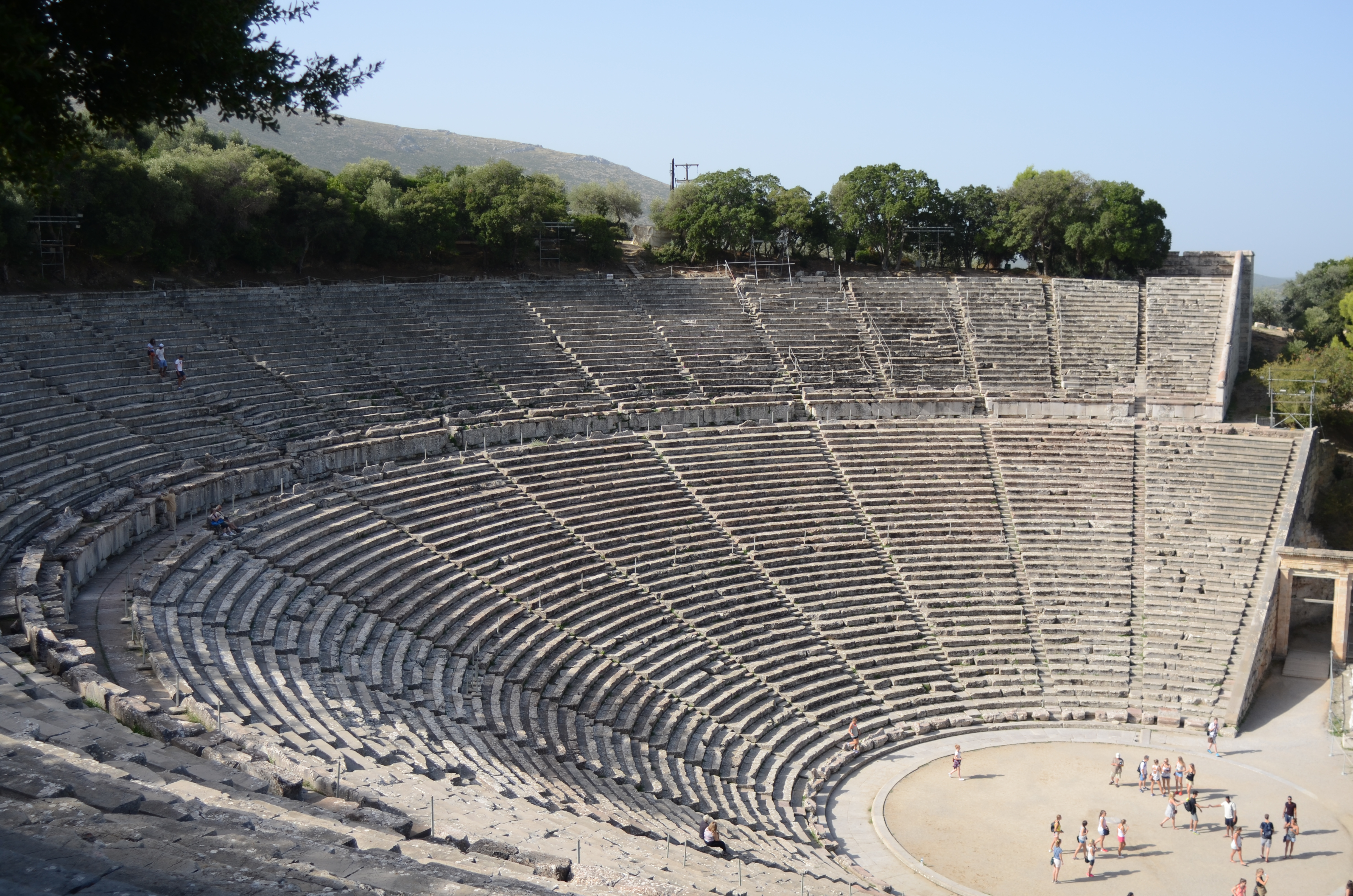
The culture of Greece has evolved over thousands of years, beginning in Mycenaean Greece and continuing into Classical Greece, through the influence of the Roman Empire and its Eastern continuation, the Byzantine Empire. Other cultures and nations, such as the Latin and Frankish states during the Frankokratia, the Ottoman Empire, the Venetian Republic, the Genoese Republic, and the British Empire, have also left their mark on modern Greek culture. Historians credit the Greek War of Independence with revitalizing Greece and fostering a single, cohesive entity from its multifaceted cultural heritage.
Ancient Greece is widely considered the birthplace of Western culture. Modern democratic ideals owe a debt to Greek beliefs in government by the people, trial by jury, and equality under the law. The ancient Greeks pioneered many fields reliant on systematic thought, including logic, biology, geometry, government, geography, medicine, history, philosophy, physics, and mathematics. They introduced crucial literary forms such as epic and lyrical poetry, history, tragedy, and comedy. In their pursuit of order and proportion, the Greeks created an ideal of beauty that profoundly influenced Western art. Contemporary Greek culture is characterized by its rich folklore, vibrant music and dance traditions, distinctive cuisine, and a strong sense of national identity, often intertwined with the Greek Orthodox Church. It continues to evolve, blending its historical legacy with modern European influences, and its impact on democratic and humanistic values remains significant.
13.1. Philosophy
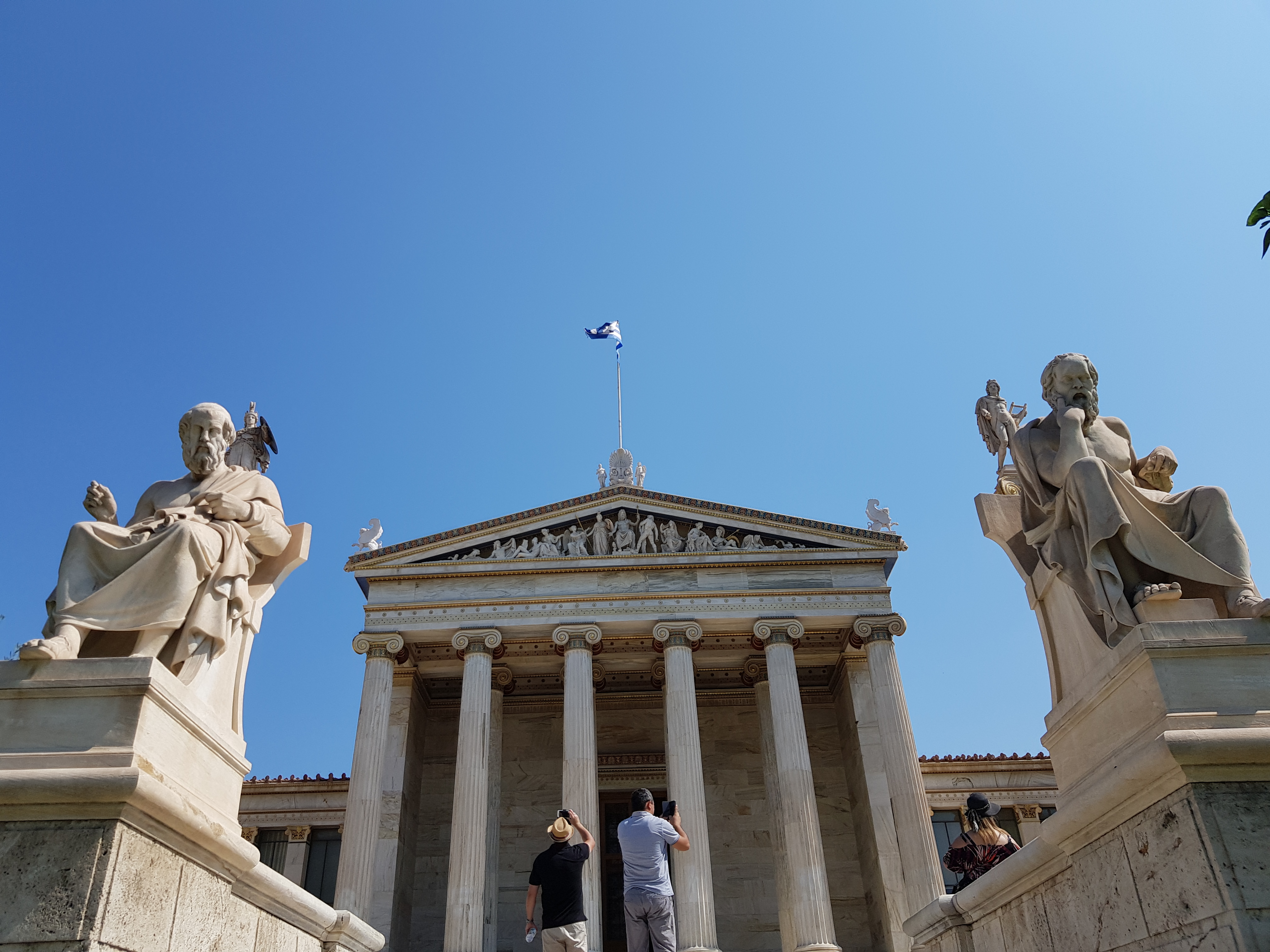
Ancient Greek philosophy is characterized by its disposition to value reasoning and critical thinking, laying the intellectual foundations of Western culture. While Pre-Socratic thinkers provided early proto-scientific explanations of the natural world, it was Socrates in 5th-century BC Athens who systematically inquired into ethics. In the following century, his disciple Plato authored dialogues on ethics, political philosophy, metaphysics, and epistemology that remain influential today. Plato's student, Aristotle, composed treatises on a vast range of subjects, and his thought, particularly in physics and logic, permeated Western intellectual life for centuries.
During the Hellenistic period, other philosophical schools emerged, including Cynicism, Stoicism, Epicureanism, and Skepticism. Neoplatonism later dominated philosophical thought in late antiquity.
Byzantine philosophy was shaped by a Christian worldview but drew extensively from the Greek texts of Plato, Aristotle, and the Neoplatonists. On the eve of the Fall of Constantinople, figures like Gemistus Pletho attempted to revive aspects of ancient Hellenic thought. Byzantine Greek scholars, largely responsible for preserving classical Greek knowledge, fled to the West after the fall of Byzantium, carrying with them manuscripts that significantly contributed to the Renaissance.
In the modern era, the Modern Greek Enlightenment (ΔιαφωτισμόςDhia-fo-teez-MOSGreek, Modern, "enlightenment") represented the Greek expression of the Age of Enlightenment and its philosophical and political ideas. Notable representatives included Adamantios Korais, Rigas Feraios, and Theophilos Kairis. Other modern Greek philosophers and political scientists of note include Helle Lambridis, Cornelius Castoriadis, Nicos Poulantzas, and Christos Yannaras. The legacy of Greek philosophy continues to be a source of national pride and academic study, underpinning many democratic and humanistic values.
13.2. Literature
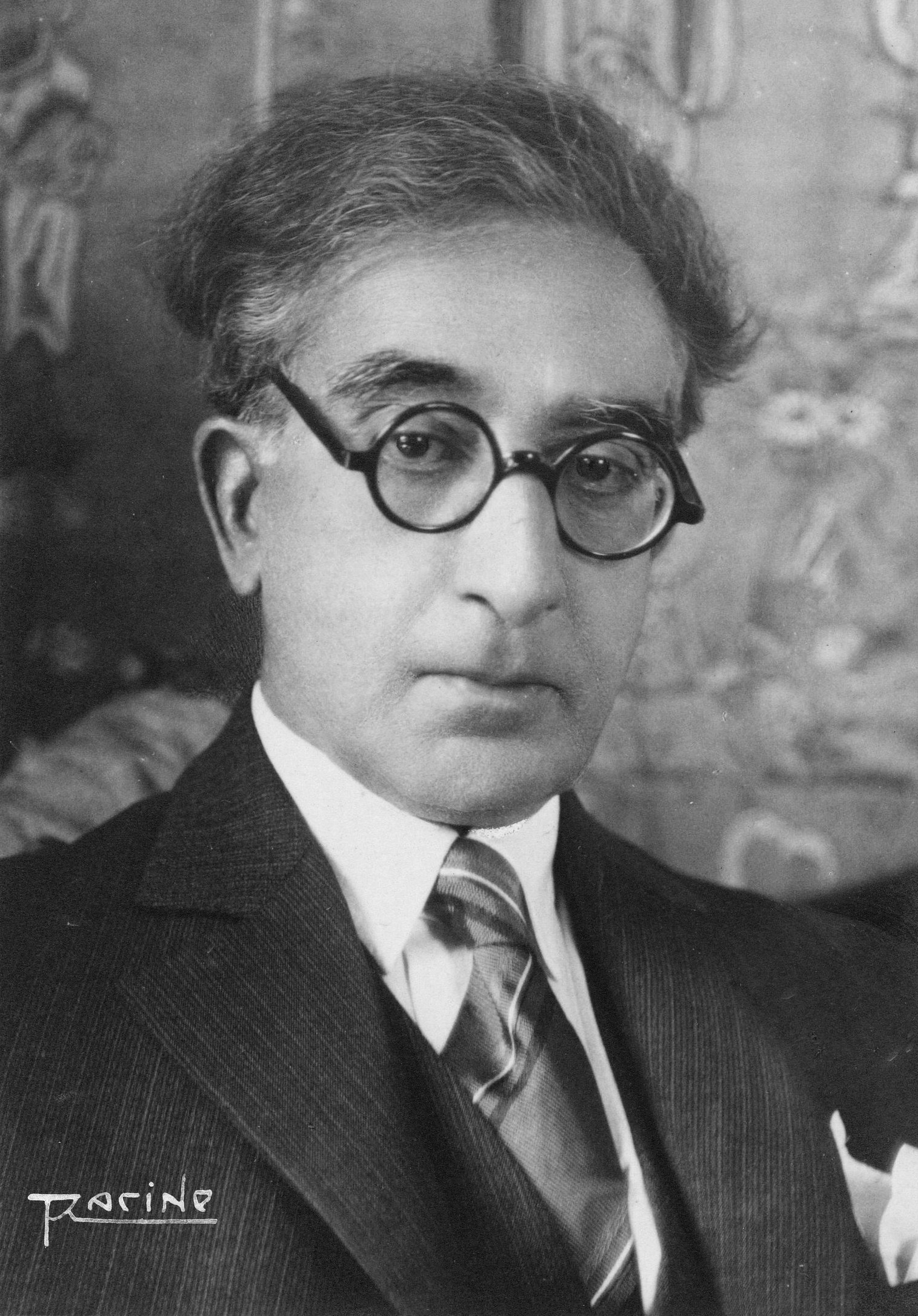

Greek literature can be broadly divided into three main periods: Ancient, Byzantine, and Modern. Athens is often considered the birthplace of Western literature.
- Ancient Greek Literature**: This period begins with the monumental epic poems of Homer, the Iliad and the Odyssey, composed around 800 BC or later. During the classical period, many genres of Western literature became prominent. Lyrical poetry (with major poets like Sappho and Pindar), odes, pastorals, elegies, and epigrams flourished. Dramatic presentations of tragedy (by Aeschylus, Sophocles, and Euripides) and comedy (by Aristophanes) were central to Athenian cultural life. Historiography (with Herodotus and Thucydides), rhetorical treatises, and philosophical dialectics also arose during this era.
- Byzantine Literature**: Written in Attic, Medieval, and early Modern Greek, this literature expresses the intellectual life of Byzantine Greeks during the Christian Middle Ages. While popular Byzantine literature and early Modern Greek literature both began in the 11th century, the two are often indistinguishable.
- Modern Greek Literature**: This refers to literature written in common Modern Greek, emerging from late Byzantine times in the 11th century. The Cretan Renaissance poem Erotokritos, a verse romance written around 1600 by Vitsentzos Kornaros, is considered a masterpiece of this early modern period. Later, during the Greek Enlightenment (Diafotismos), writers such as Adamantios Korais and Rigas Feraios prepared the ground for the Greek Revolution with their works, often reflecting on themes of national identity and liberation.
Leading figures of modern Greek literature include Dionysios Solomos, Andreas Kalvos, Angelos Sikelianos, Emmanuel Rhoides, Demetrius Vikelas, Kostis Palamas, Penelope Delta, Yannis Ritsos, Alexandros Papadiamantis, Nikos Kazantzakis, Andreas Embirikos, Kostas Karyotakis, Gregorios Xenopoulos, Constantine P. Cavafy, Nikos Kavvadias, Kostas Varnalis, and Kiki Dimoula.
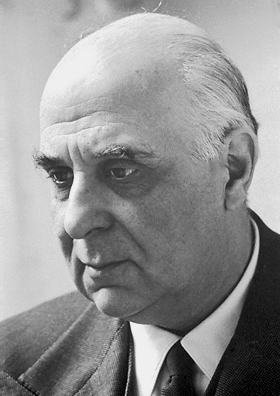
Two Greek authors have been awarded the Nobel Prize in Literature: George Seferis in 1963 and Odysseas Elytis in 1979. Their works often explore themes of Greek history, identity, landscape, and the human condition, providing profound social commentary.
13.3. Visual Arts
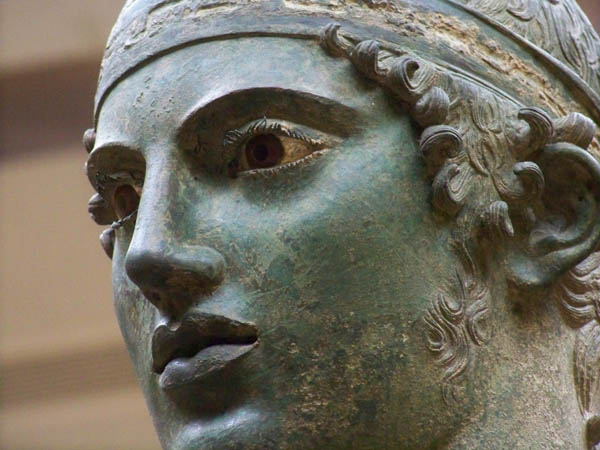
Artistic production in Greece began in the prehistoric pre-Greek Cycladic and Minoan civilisations, both of which were influenced by local traditions and the art of ancient Egypt.
- Ancient Greek Art**: There were interconnected traditions of painting in ancient Greece. The most respected form, according to authors like Pliny the Elder and Pausanias, were individual, mobile panel paintings on wooden boards. Wall painting dates back at least to the Minoan and Mycenaean civilisations, with lavish fresco decorations at sites like Knossos, Tiryns, and Mycenae. Ancient Greek sculpture was primarily composed of durable materials like marble or bronze, with bronze becoming favored for major works by the early 5th century. Rare chryselephantine sculptures, made of gold and ivory, were used for temple cult images and luxury items. It is well-established that ancient Greek sculptures were originally painted with various colors, a feature known as polychromy.
- Byzantine Art**: Art production continued during the Byzantine era. A salient feature of this new aesthetic was its "abstract" or anti-naturalistic character. While classical art aimed to mimic reality, Byzantine art favored a more symbolic approach. Byzantine painting concentrated mainly on icons and hagiographies. Macedonian art, the artistic expression of the Macedonian dynasty (867-1056), showed increased interest in classical scholarship and the assimilation of classical motifs into Christian artwork.
- Post-Byzantine and Modern Art**: Post-Byzantine art schools include the Cretan School and the Heptanese School. The first artistic movement in the modern Greek Kingdom is considered the Greek academic art of the 19th century (often called the Munich School due to the influence of artists trained in Munich). Modern Greek painters include Nikolaos Gyzis, Georgios Jakobides, Theodoros Vryzakis, Nikiforos Lytras, Konstantinos Volanakis, Nikos Engonopoulos, and Yannis Tsarouchis. Notable sculptors include Pavlos Prosalentis, Ioannis Kossos, Leonidas Drosis, Georgios Bonanos, and Yannoulis Chalepas. These artists explored various styles, from academic realism to impressionism, symbolism, and modernism, often reflecting on Greek identity, history, and landscape.
Greek visual arts represent a continuous tradition that has adapted and transformed through millennia, reflecting the diverse cultural and historical contexts of the region.
13.4. Architecture
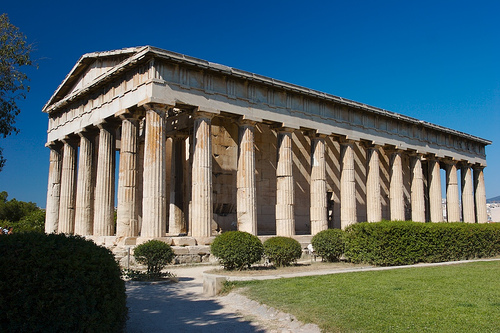
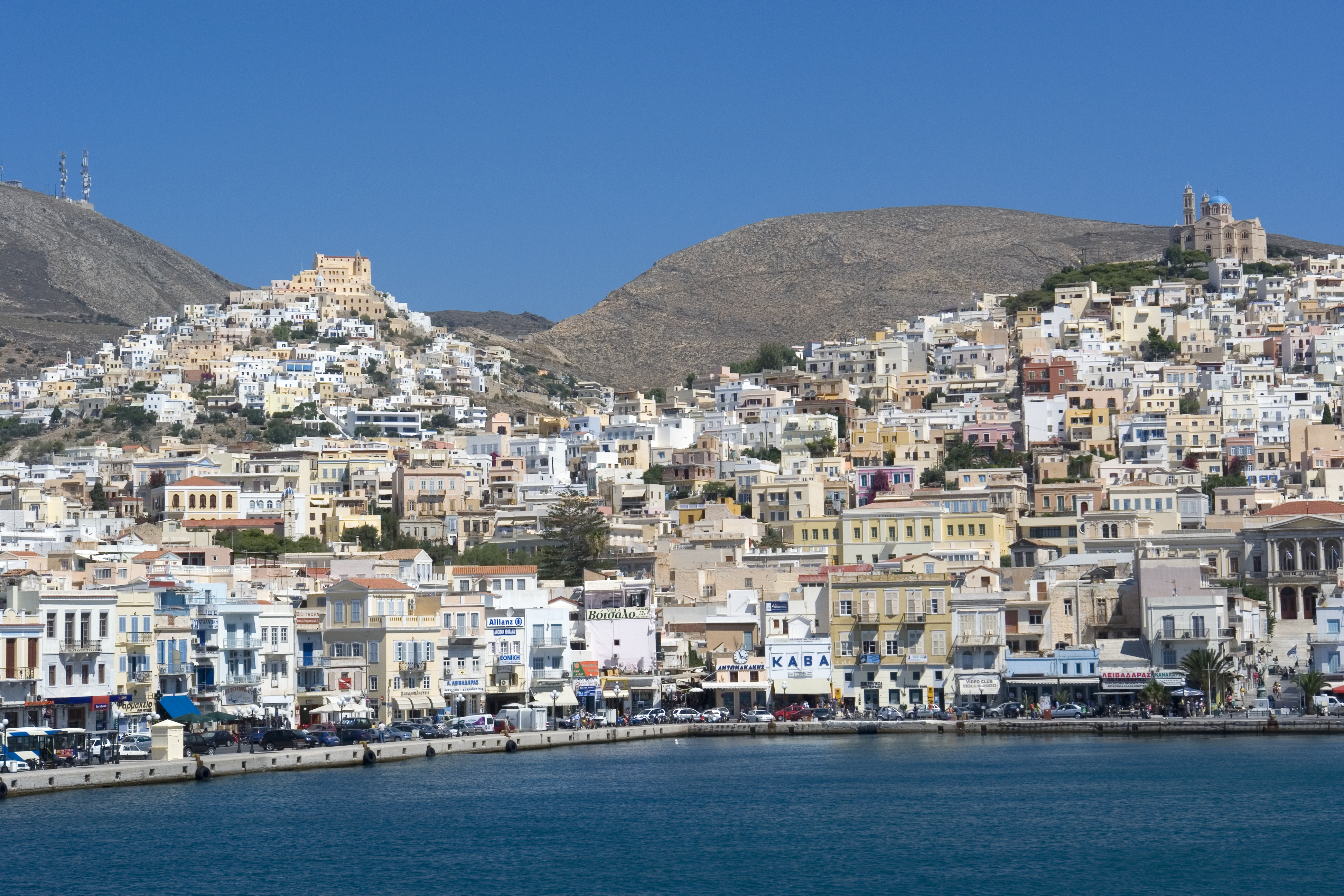
The architecture of Greece has a long and influential history, from ancient temples to Byzantine churches and modern structures.
- Ancient Greek Architecture**: Produced by the ancient Greeks (Hellenes) from about 900 BC until the 1st century AD, with the earliest remaining works dating from around 600 BC. Its formal vocabulary, particularly the division into three defined orders - the Doric, Ionic, and Corinthian - profoundly affected Western architecture. Famous examples include the Parthenon in Athens, the Temple of Hephaestus, and numerous theaters and public buildings.
- Byzantine Architecture**: Dominant in the Greek-speaking world for over a thousand years, it significantly influenced medieval architecture throughout Europe and the Near East. It became a primary progenitor of Renaissance and Ottoman architectural traditions. Key features include the extensive use of domes, centralized plans, mosaics, and rich interior decoration, exemplified by churches like Hagia Sophia (in Constantinople) and numerous monastic complexes in Greece (e.g., Hosios Loukas, Daphni Monastery).
- Modern and Contemporary Architecture**:
- After Greek Independence, architects combined traditional Greek and Byzantine elements with Western European movements and styles. Patras was the first city in the modern Greek state to develop a city plan applying the orthogonal rule, designed by Stamatis Voulgaris in 1829.
- Neoclassical Architecture**: Became prominent after the establishment of the Kingdom of Greece, especially in Athens, where King Otto commissioned architects Stamatios Kleanthis and Eduard Schaubert to design a modern city plan. Ernst Ziller was a prolific neoclassical architect of this era.
- Regional Styles**: Special genres include Cycladic architecture, characterized by white-washed cubic houses in the Cyclades, and Epirotic architecture in Epirus. The Venetian Gothic style influenced the Ionian Islands, and the "Mediterranean style" of Florestano Di Fausto (during Italian rule) is notable in the Dodecanese.
- Modernism and Post-War**: After the Great Thessaloniki Fire of 1917, Ernest Hébrard supervised a new city plan. Mid-20th-century architects like Dimitris Pikionis sought to blend modernism with vernacular traditions. Other modern Greek architects include Anastasios Metaxas, Lysandros Kaftanzoglou, Panagis Kalkos, and Georges Candilis.
- Contemporary architecture reflects global trends while sometimes incorporating local materials and forms. There is an emerging need to secure the long-term preservation of archaeological sites and historical monuments against threats like climate change.
Greek architecture reflects historical, social, and environmental changes, embodying a rich dialogue between local traditions and external influences.
- After Greek Independence, architects combined traditional Greek and Byzantine elements with Western European movements and styles. Patras was the first city in the modern Greek state to develop a city plan applying the orthogonal rule, designed by Stamatis Voulgaris in 1829.
13.5. Music and Dance
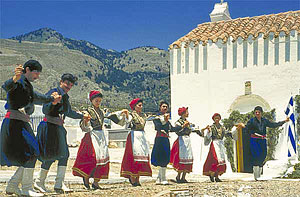

Greek vocal music extends back to ancient times, where mixed-gender choruses performed for entertainment, celebration, and spiritual reasons. Instruments included the double-reed aulos and plucked string instruments like the lyre and kithara. Music was integral to education for boys from age six.
- Byzantine Chant**: While polyphony developed in the West, the Eastern Orthodox Church resisted such changes, and Byzantine music remained largely monophonic and without instrumental accompaniment. The Byzantine chant is a melodic music characterized by rhythmic variety and expressive power, forming a core part of Orthodox liturgy.
- Folk Music (Demotiko)**: Alongside Byzantine chant, Greeks cultivated folk songs, divided into two main cycles:
- Akritic songs (9th-10th centuries) expressed the life and struggles of the akrites (frontier guards) of the Byzantine Empire, famously associated with Digenes Akritas.
- Klephtic songs (late Byzantine to Greek War of Independence) along with historical songs, paraloghes (ballads), love songs, mantinades, wedding songs, songs of exile, and dirges, all express the life of the Greeks.
- Urban Popular Music**:
- The Heptanesean kantádhes (serenades) from the Ionian Islands, influenced by Western styles, were forerunners of modern Greek urban popular song. From 1870-1930, Athenian serenades and songs from theatrical revues, operettas, and nocturnes dominated.
- Rebetiko**: Initially music of the lower classes and subculture, rebetiko later gained broader acceptance. It became the basis for the later laïkó (song of the people). Leading performers include Vassilis Tsitsanis, Grigoris Bithikotsis, Stelios Kazantzidis, George Dalaras, Haris Alexiou, and Glykeria.
- The Heptanesean kantádhes (serenades) from the Ionian Islands, influenced by Western styles, were forerunners of modern Greek urban popular song. From 1870-1930, Athenian serenades and songs from theatrical revues, operettas, and nocturnes dominated.
- Classical Music**: Western classical music was introduced to mainland Greece via the Ionian Islands. The Heptanesean or Ionian School (established 1815) was the first school of modern Greek classical music, with representatives like Nikolaos Mantzaros, Spyridon Xyndas, Spyridon Samaras, and Pavlos Carrer. Manolis Kalomiris is considered the founder of the Greek National School of Music.
- 20th Century and International Influence**: Greek composers like Iannis Xenakis, Nikos Skalkottas, and Dimitri Mitropoulos had significant impact on avant-garde and modern classical music. Composers like Mikis Theodorakis (whose music was banned during the 1967-74 junta), Manos Hatzidakis, Eleni Karaindrou, Vangelis, and Demis Roussos gained international fame, including for film scores such as Zorba the Greek, Serpico, Never on Sunday, Chariots of Fire, and Blade Runner. Greek-American composers like Yanni and Basil Poledouris are also known for film scores. Notable singers and musicians include Maria Callas, Nana Mouskouri, Mario Frangoulis, Leonidas Kavakos, and Dimitris Sgouros.
- Eurovision**: Greece debuted in 1974, won in 2005 with "My Number One" by Elena Paparizou, and hosted the contest in 2006.

Traditional dances are an integral part of Greek culture, varying by region and often performed at festivals and social gatherings. They reflect community life, historical events, and cultural identity. Examples include the Kalamatianos, Tsamiko, Syrtos, and Cretan dances like the Pentozali. Music and dance remain vibrant expressions of Greek cultural identity and social life.
13.6. Theatre and Cinema
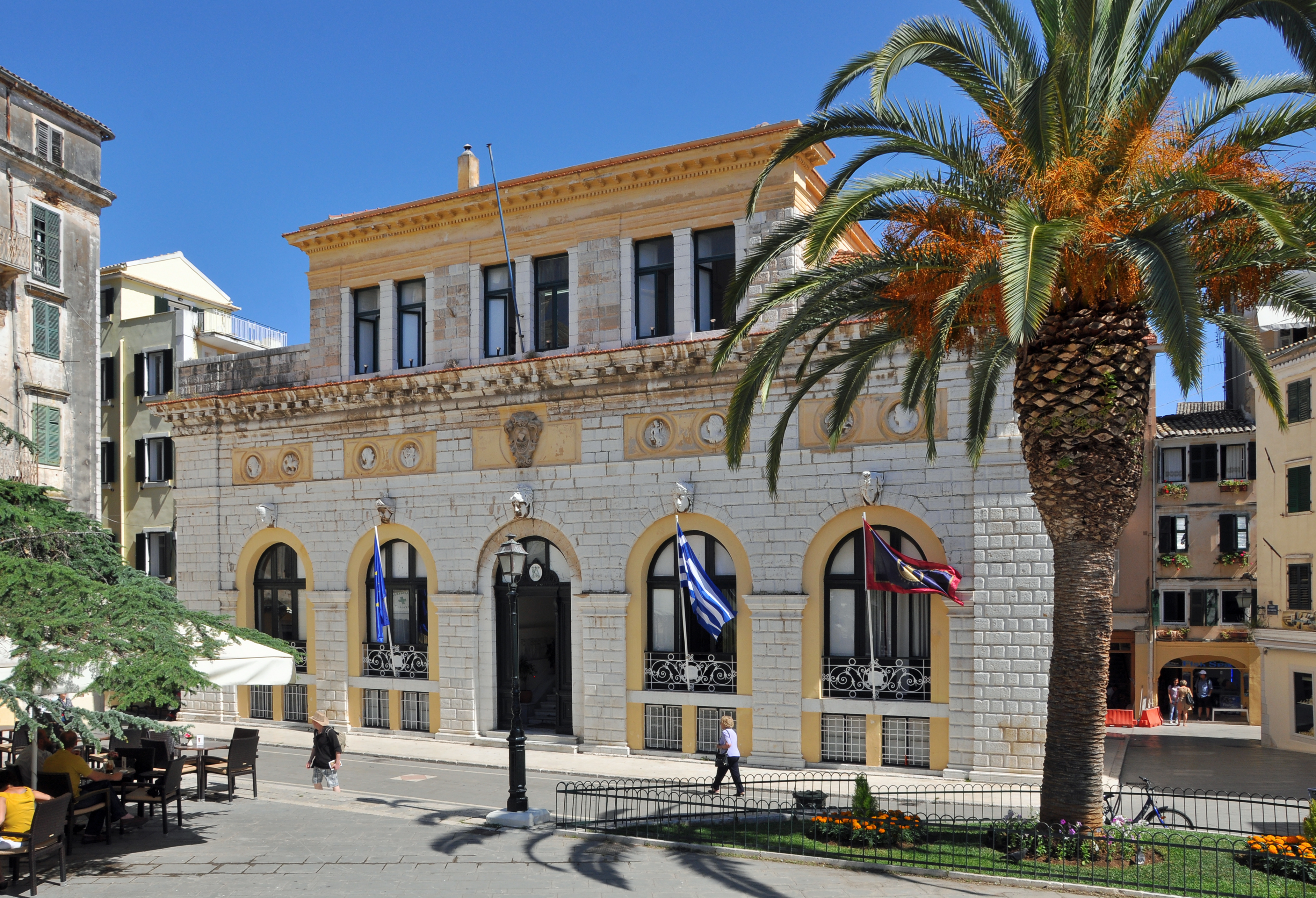

- Theatre**: Western theatre was born in Greece. Tragedy (late 6th century BC), comedy (486 BC), and the satyr play emerged in classical Athens, institutionalized as part of the Dionysia festival honoring the god Dionysus. Only a limited number of plays by three tragedians-Aeschylus, Sophocles, and Euripides-and the comedies of Aristophanes have survived, yet they form a cornerstone of dramatic literature, often reflecting societal values and critiquing contemporary issues.
During the Byzantine period, theatrical art declined, with only folk theatre (Mimos and Pantomimos) surviving despite state hostility. In the Ottoman period, the main folk theatrical art was Karagiozis (shadow puppet theatre). The renaissance leading to modern Greek theatre took place in Venetian Crete, with significant dramatists like Vitsentzos Kornaros and Georgios Chortatzis.
Modern Greek theatre emerged after independence in the early 19th century, initially influenced by Heptanesean theatre and Italian opera. The Nobile Teatro di San Giacomo di Corfù was the first theatre and opera house of modern Greece, where the first Greek opera, Spyridon Xyndas' The Parliamentary Candidate, was performed. The late 19th and early 20th-century Athenian theatre scene was dominated by revues, musical comedies, and operettas by playwrights like Spyridon Samaras and Theophrastos Sakellaridis. The National Theatre of Greece opened in 1900 as the Royal Theatre. Notable modern Greek playwrights include Gregorios Xenopoulos, Nikos Kazantzakis, Pantelis Horn, Alekos Sakellarios, and Iakovos Kambanellis. Esteemed actors include Cybele Andrianou, Marika Kotopouli, Katina Paxinou, and Dimitris Horn, with significant directors like Dimitris Rontiris, Alexis Minotis, and Karolos Koun. These figures often explored themes relevant to Greek society and its transformations.
- Cinema**: Cinema first appeared in Greece in 1896, with the first cine-theatre opening in Athens in 1907. In 1914, Asty Films Company began producing long films. Golfo, a traditional love story, is considered the first Greek feature film. In 1931, Orestis Laskos directed Daphnis and Chloe, notable for an early nude scene in European cinema and being the first Greek film played abroad. In 1944, Katina Paxinou won the Academy Award for Best Supporting Actress for For Whom the Bell Tolls.
The 1950s and early 1960s are considered a "golden age" of Greek cinema, with over sixty films made per year, often featuring film noir elements. Prominent figures included directors George Tzavellas and Michael Cacoyannis, and actors Irene Papas and Melina Mercouri. Notable films from this era include The Drunkard, The Counterfeit Coin, Stella, and The Red Lanterns. Cacoyannis's Zorba the Greek (starring Anthony Quinn) received international acclaim and Oscar nominations. Finos Film was a major production company during this period.
In the 1970s and 1980s, Theo Angelopoulos directed critically acclaimed films, with his Eternity and a Day winning the Palme d'Or at the 1998 Cannes Film Festival. The Greek diaspora has also produced internationally renowned filmmakers like Costa-Gavras, Elia Kazan, John Cassavetes, and Alexander Payne. Yorgos Lanthimos has gained recent international success with multiple Academy Award nominations for films such as Dogtooth, The Lobster, and The Favourite, often reflecting on complex societal and human themes.
13.7. Cuisine

Greek cuisine is characteristic of the Mediterranean diet, particularly epitomized by the traditional dishes of Crete. It emphasizes fresh ingredients, seasonality, and simple preparations that highlight natural flavors. Olive oil is a fundamental component, used extensively in cooking and as a dressing.
Key ingredients and dishes include:
- Vegetables**: Abundantly used, including tomatoes, eggplants, courgettes, bell peppers, onions, and leafy greens (e.g., horta). Dishes like moussaka (layered eggplant, minced meat, and béchamel sauce), pastitsio (baked pasta with minced meat and béchamel), spanakopita (spinach pie), and gemista (stuffed vegetables) are popular.
- Legumes**: Fasolada (bean soup) is a national dish. Lentils, chickpeas, and broad beans are also common.
- Meats**: Lamb and goat are traditionally favored, especially for festive occasions. Chicken and pork (e.g., souvlaki, gyros) are also widely consumed.
- Seafood**: Given the extensive coastline, fresh fish and seafood like octopus, squid, shrimp, and various fish (e.g., sea bass, sea bream) are staples, particularly in coastal areas and islands.
- Dairy**: Feta cheese is iconic, but Greece produces many other cheeses. Yogurt, often served with honey and walnuts, is also a dietary staple.
- Herbs and Spices**: Common flavorings include oregano, mint, garlic, onion, dill, bay laurel leaves, basil, thyme, and fennel seed. "Sweet" spices like cinnamon and cloves are sometimes used in meat stews, especially in northern Greece.
- Meze**: Small shared dishes, similar to Spanish tapas, often accompany drinks like ouzo or tsipouro. Examples include tzatziki (yogurt, cucumber, and garlic dip), dolmades (stuffed vine leaves), taramosalata (fish roe dip), grilled octopus, and various olives.
- Breads**: Bread accompanies most meals. Pita bread is common.
- Desserts**: Often feature honey, nuts, and phyllo pastry. Examples include baklava, galaktoboureko (custard pie), melomakarona (honey cookies), and diples (fried dough with honey).
- Beverages**: Wine has been produced in Greece for millennia, with retsina (resinated wine) being a traditional variety. Ouzo (anise-flavored aperitif) and Metaxa (a type of brandy) are well-known spirits. Greek coffee is also popular.
Regional variations in cuisine are significant, reflecting local products and traditions. Koutoukia are traditional underground taverns common in Greece. Greek food culture emphasizes fresh, seasonal ingredients, communal dining, and a healthy balance characteristic of the Mediterranean lifestyle.
13.8. Traditional Dress and Fashion
Traditional Greek attire varies significantly by region and historical period, reflecting local customs, social status, and occasion.
- Ancient Greek Clothing**:
- The chiton was a simple tunic worn by both men and women, typically made of linen or wool. It was a rectangular piece of cloth draped and fastened at the shoulders.
- The peplos was a heavier woolen garment worn by women, also draped and pinned.
- The himation was an outer garment, like a cloak, worn over the chiton or peplos.
- Byzantine Clothing**: Reflected Roman influences initially, evolving into more elaborate and ornamented styles, particularly for the imperial court and aristocracy, often using silk and rich embroidery.
- Traditional Folk Costumes (Post-Byzantine to Modern Era)**:
- The fustanella is perhaps the most iconic piece of male traditional dress, a kilt-like pleated garment. It is famously worn by the Evzones, the Presidential Guard.
- Other male attire included baggy trousers (vraka), embroidered vests (fermeli or yileko), sashes, and head coverings like the fez or a headscarf (mandili).
- Female traditional costumes were often more elaborate and varied widely by region. They typically consisted of long dresses or skirts, embroidered blouses, aprons, vests or jackets, intricate headpieces (scarves, caps, often adorned with coins or jewelry), and elaborate jewelry. Examples include the Amalia costume (a formal court dress from the 19th century) and various island and mainland regional styles.
- Materials used included wool, linen, cotton, and silk, often homespun and dyed with natural pigments. Embroidery was a highly developed art form.
- Modern Fashion**: In contemporary Greece, Western-style clothing is the norm for daily wear. Athens has a developing fashion scene with Greek designers gaining recognition. However, traditional costumes are still worn for festivals, national holidays, folk dance performances, and in some rural communities, preserving cultural heritage. The symbolism and craftsmanship of traditional Greek dress continue to inspire contemporary designers and artists.
Traditional dress served not only practical purposes but also as a powerful expression of regional identity, social standing, and cultural continuity.
13.9. Festivals and Public Holidays
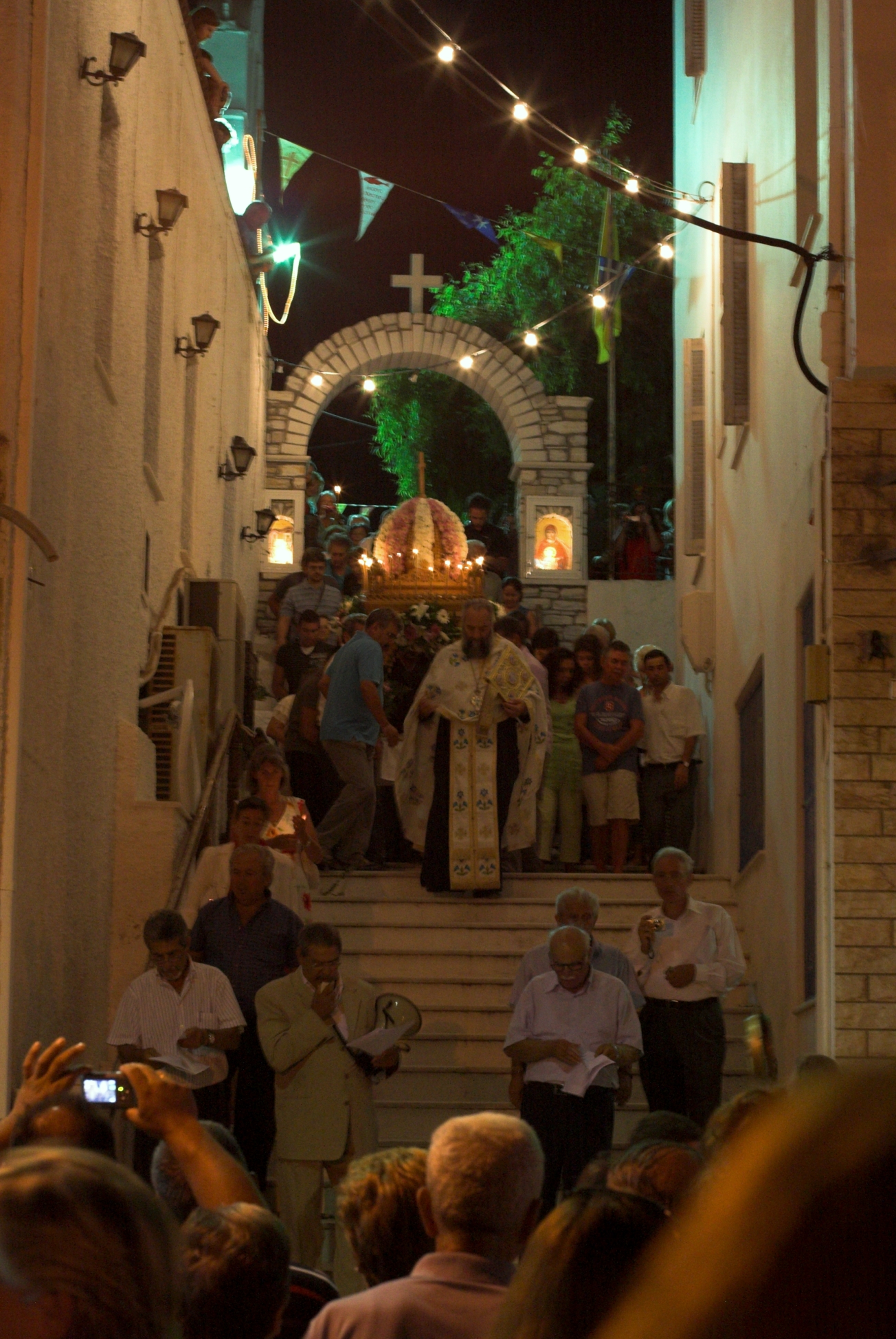
Greece observes a number of public holidays and hosts various festivals throughout the year, reflecting its rich religious, cultural, and historical heritage.
- Public Holidays**:
According to Greek law, every Sunday is a public holiday. Since the late 1970s, Saturday is also generally a non-school and non-working day for many. Mandatory official public holidays include:
- January 1**: New Year's Day (ΠρωτοχρονιάPro-to-khro-NYAHGreek, Modern)
- January 6**: Epiphany (ΘεοφάνειαTheh-o-FAH-nee-ahGreek, Modern)
- March 25**: Independence Day (Ευαγγελισμός / Εθνική εορτήEh-van-yeh-leez-MOS / Eth-nee-KEE eh-or-TEEGreek, Modern), commemorating the start of the War of Independence in 1821, and also the religious feast of the Annunciation.
- Easter Cycle (Movable)**:
- Clean Monday (Καθαρά ΔευτέραKa-tha-RAH dhef-TEH-raGreek, Modern), marks the beginning of Great Lent, 48 days before Orthodox Easter.
- Good Friday (Μεγάλη ΠαρασκευήMeh-GAH-lee pa-ra-ske-VEEGreek, Modern)
- Easter Sunday (ΠάσχαPAS-khaGreek, Modern), the most important religious holiday.
- Easter Monday (Δευτέρα του ΠάσχαDhef-TEH-ra too PAS-khaGreek, Modern)
- May 1**: Labour Day (Εργατική ΠρωτομαγιάEr-gha-tee-KEE pro-to-ma-YAHGreek, Modern)
- Holy Spirit Monday** (Δευτέρα του Αγίου ΠνεύματοςDhef-TEH-ra too ah-YEE-oo PNEV-ma-tosGreek, Modern), movable feast, 50 days after Easter.
- August 15**: Assumption of the Virgin Mary (Κοίμησις ΘεοτόκουKEE-mee-sees theh-o-TO-kooGreek, Modern), a major religious feast.
- October 28**: Ohi Day / "No" Day (Το «Όχι»To O-heeGreek, Modern), commemorating Greece's rejection of the Italian ultimatum in 1940.
- December 25**: Christmas (ΧριστούγενναKhree-STOO-yen-nahGreek, Modern)
- December 26**: Synaxis of the Theotokos / Second Day of Christmas (Σύναξις ΘεοτόκουSEE-nak-sees theh-o-TO-kooGreek, Modern)
In addition to these national holidays, many municipalities have a "Patron Saint's Day" or a "Liberation Day" as local holidays, during which schools and local businesses may close. Name days (celebrating the feast day of the saint after whom a person is named) are often celebrated more elaborately than birthdays.
- Festivals**:
- Carnival (Apókries)**: Celebrated in the weeks leading up to Lent, with parades, costumes, and revelry. The Patras Carnival is the largest and most famous.
- Athens Epidaurus Festival**: A major cultural festival held annually during the summer, featuring performances of ancient Greek drama, music, dance, and opera at historic venues like the Odeon of Herodes Atticus in Athens and the Ancient Theatre of Epidaurus.
- Thessaloniki International Film Festival**: One of the most important film festivals in Southern Europe, held annually in Thessaloniki. The city also hosts other events like the Thessaloniki Documentary Festival.
- Regional and Local Festivals**: Numerous local festivals (panigýria) are held throughout Greece, especially during the summer, often celebrating local saints or agricultural products (e.g., wine festivals, olive festivals). These typically involve traditional music, dancing, food, and community gatherings, reflecting the vibrant local traditions and community life.
These holidays and festivals are integral to Greek social life, providing opportunities for community bonding, cultural expression, and the observance of religious and historical traditions.
13.10. World Heritage Sites
Greece is home to numerous sites of exceptional historical and cultural value, recognized by UNESCO as World Heritage Sites. These sites reflect the country's rich legacy, from antiquity through the Byzantine era to more recent times. As of recent counts, Greece has 19 properties inscribed on the World Heritage List, including 17 cultural sites and 2 mixed (cultural and natural) sites like Meteora and Mount Athos. These sites are crucial for understanding not only Greek history but also the development of Western civilization.
Some of the most prominent World Heritage Sites in Greece include:
- Acropolis, Athens**: An ancient citadel containing the remains of several historically significant buildings, most famously the Parthenon. It is a symbol of classical Greek civilization and democracy.
- Archaeological Site of Delphi**: An ancient sanctuary that was home to the Oracle of Delphi, considered the center of the world in ancient Greek religion.
- Archaeological Site of Olympia**: The birthplace of the ancient Olympic Games, featuring temples, athletic facilities, and treasures.
- Meteora**: A stunning rock formation in central Greece hosting a complex of Eastern Orthodox monasteries built precipitously on natural sandstone pillars. (Mixed Heritage)
- Mount Athos**: An autonomous monastic state, a spiritual center of Orthodox Christianity for over a thousand years. (Mixed Heritage)
- Medieval City of Rhodes**: A well-preserved medieval fortified city built by the Knights of Saint John.
- Archaeological Sites of Mycenae and Tiryns**: Major centers of the Mycenaean civilization in the late Bronze Age.
- Mystras**: A fortified town in the Peloponnese, a significant Byzantine political and cultural center.
- Delos**: A sacred island, mythological birthplace of Apollo and Artemis, and an important religious and commercial center in antiquity.
- Paleochristian and Byzantine Monuments of Thessaloniki**: A collection of churches and monuments from the early Christian and Byzantine periods.
- Sanctuary of Asklepios at Epidaurus**: An ancient healing center, renowned for its well-preserved ancient theatre.
- Archaeological Site of Vergina (Aigai)**: The first capital of the Kingdom of Macedon, including the tomb of Philip II, father of Alexander the Great.
- Old Town of Corfu**: A historic port town with Venetian, French, and British influences in its architecture.
These sites attract millions of visitors annually and are vital for tourism and cultural education. Efforts for their preservation are ongoing, facing challenges such as weathering, environmental pressures, and the impact of tourism. Their universal significance lies in their testimony to human creativity, historical events, and cultural traditions that have shaped the world.
14. Sports
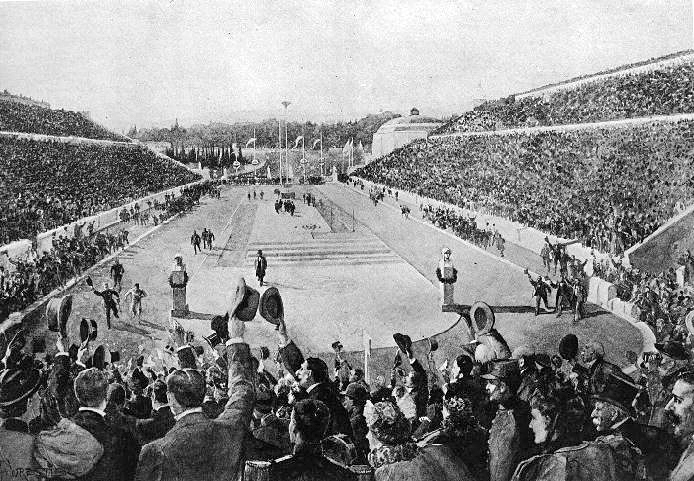

Sports are an integral part of Greek culture, with a rich history dating back to antiquity. Greece is the birthplace of the ancient Olympic Games, first recorded in 776 BC in Olympia. This legacy continues with Greece's significant role in the modern Olympic movement.
The social role of sports in Greece is significant, fostering national pride, community engagement, and promoting physical activity. Major sporting events often draw large crowds and intense media coverage.
14.1. Olympics
Greece holds a unique place in Olympic history as the birthplace of the ancient Games and the host of the inaugural modern Olympic Games in Athens in 1896. Athens also hosted the 2004 Summer Olympics, further cementing this connection. In the Parade of Nations at the opening ceremony of every Olympic Games, Greece is always called first as the founding nation of the ancient precursor to the modern Olympics. The Olympic flame is lit in Olympia months before the Games, initiating the torch relay.
Greece is one of only four countries to have competed at every Summer Olympic Games. As of recent counts, Greek athletes have won a total of 121 medals in the Summer Olympics (35 gold, 45 silver, and 41 bronze), ranking 33rd by gold medals in the all-time Olympic Games medal table. Their best ever performance was in the 1896 Games, where Greece finished second in the medal table with 10 gold medals. Popular Olympic sports in Greece where athletes have achieved success include athletics, weightlifting, sailing, gymnastics, shooting, and water polo. The hosting of the 2004 Games led to significant infrastructure development and left a lasting legacy, though also contributed to economic challenges. The cultural impact of the Olympic Games, both ancient and modern, is deeply ingrained in Greek national identity.
14.2. Football
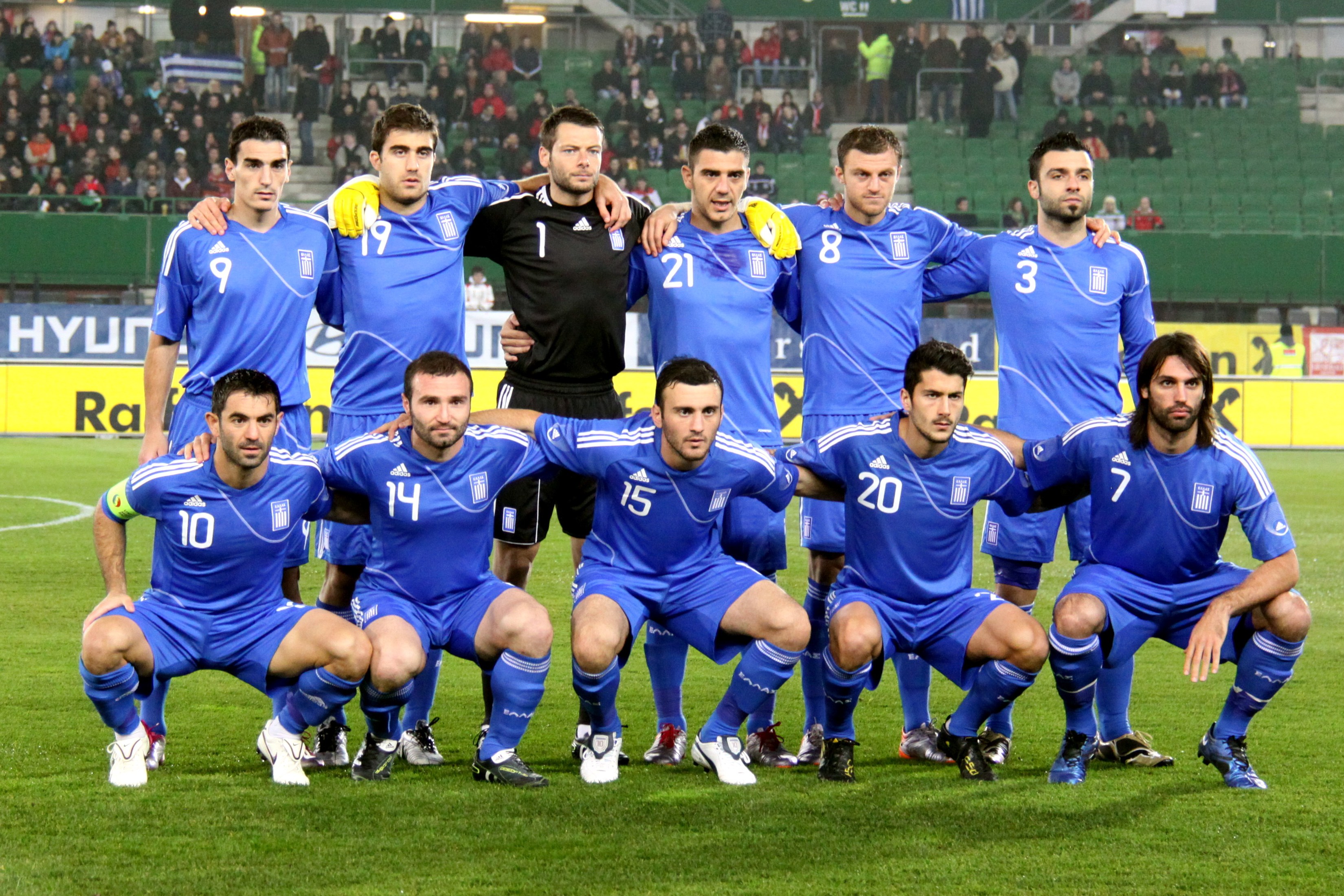
Football (soccer) is the most popular sport in Greece. The Greece national football team achieved its greatest success by winning the UEFA Euro 2004 championship, an unexpected victory that is considered one of the biggest upsets in international football history. The national team has also qualified for the FIFA World Cup three times (1994, 2010, 2014), reaching the Round of 16 in 2014. As of 2024, the team was ranked 54th in the FIFA World Rankings, having reached a high of 8th in 2008 and 2011.
The Super League Greece is the highest professional football league in the country, comprising fourteen teams. The most successful and widely supported clubs are Olympiacos (Piraeus), Panathinaikos (Athens), and AEK Athens, all of which have strong fan bases and have competed in European club competitions like the UEFA Champions League and UEFA Europa League. Other notable clubs include PAOK (Thessaloniki) and Aris Thessaloniki. Football plays a significant social role in Greece, with passionate rivalries and widespread media coverage.
14.3. Basketball
Basketball is another extremely popular sport in Greece. The Greek men's national basketball team has a long tradition of excellence and is considered among the world's top basketball powers. As of 2012, it was ranked 4th in the world and 2nd in Europe by FIBA. The team won the EuroBasket (European Championship) twice, in 1987 (hosted in Greece) and 2005. They also reached the final of the 2006 FIBA World Championship, finishing second.
The domestic top basketball league, the Greek A1 Basket League, is highly competitive and features fourteen teams. The most successful Greek clubs are Panathinaikos and Olympiacos, both of which have won multiple EuroLeague titles, making them powerhouses in European basketball. Other historically significant clubs include Aris Thessaloniki, AEK Athens, and P.A.O.K. Greek basketball teams have been among the most successful in European club competitions over the last few decades. The sport enjoys a large cultural following, with intense fan support for both domestic league games and national team performances.
14.4. Other Sports
Beyond football and basketball, several other sports are popular and have achieved notable success in Greece:
- Water polo**: Greece has strong national teams in water polo. The women's national team became World Champions in 2011, won gold at the 2005 FINA World League, and secured silver medals at the 2010 and 2012 European Championships. The men's national team finished third in the world at the 2005 World Aquatics Championships. The domestic water polo leagues (A1 Ethniki for men and women) are considered among the top in Europe, with Greek clubs achieving significant success in European competitions.
- Volleyball**: The men's national volleyball team has won two bronze medals, one in the European Championship and another in the European League, and achieved a 5th place finish in the Olympic Games. The Greek domestic league, A1 Ethniki, is competitive, and clubs like Olympiacos have had success in European competitions.
- Athletics**: As the birthplace of the Olympics, athletics holds historical significance. Greek athletes have achieved success in various disciplines at international competitions, including the Olympic Games and World Championships.
- Weightlifting**: Greece has a strong tradition in weightlifting, with several Olympic gold medalists, particularly in the late 20th and early 21st centuries, such as Pyrros Dimas and Kakhi Kakhiashvili.
- Sailing**: Given its maritime tradition and extensive coastline, sailing is a popular recreational and competitive sport. Greek sailors have won Olympic medals.
- Gymnastics**: Particularly rhythmic gymnastics, where Greek athletes have performed well internationally.
- Handball**: AC Diomidis Argous is a notable club, having won a European Cup (EHF Challenge Cup).
- Tennis**: Growing in popularity, with Greek players like Stefanos Tsitsipas and Maria Sakkari achieving high international rankings and success in recent years.
Participation in sports is widespread, from amateur clubs to professional leagues, contributing to health, community building, and national pride.